- Skip to primary navigation
- Skip to main content
- Skip to footer

Insideout Mastery
Thrive with Purpose & Confidence

Self-Discovery Journey: 17 Best Ways to Get Started
October 3, 2023
Do you feel disconnected between how you show up in the world and your inner experiences? And do you struggle to find out who you are and what you’re meant to do in this world?
You’re not alone.
For the longest time, I felt the same way.
And I was looking externally for answers. I thought that getting rich, having a girlfriend, and accumulating more friends would make me happier.
But I was wrong.
Instead, I had to search within first.
Embarking on a self-discovery journey provides answers.
Self-insight leads to clarity and inner harmony.
Your life’s quality increases when you align your actions with your personality, core values, needs, and strengths. Every aspect of your life becomes more meaningful when you pursue what matters most to you.
The self-discovery process is key to success and fulfillment.
So, let’s take a step back from the hustle and bustle of life. It’s time to explore your essence to unravel your most authentic self .
Let’s dive in!
What is self-discovery?
Why is it important to discover yourself.
- The 2-step self-discovery process
How to start your self-discovery journey?
This post contains affiliate links, so if you buy something through my link, I earn a small commission at no extra cost to you. Note that I only endorse products that I’ve personally bought and enjoyed
Self-discovery is a lifelong process of learning who you are, what you want, and why it all matters to you.
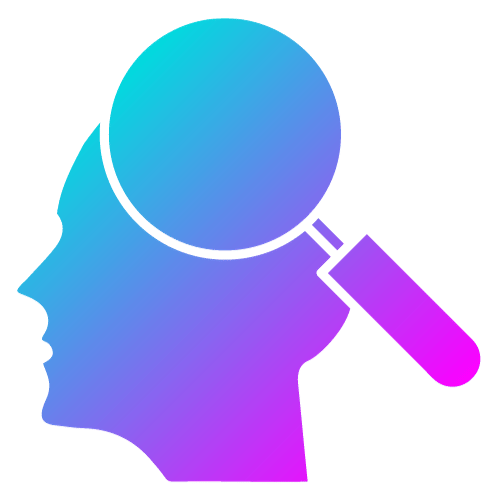
This includes many aspects like your values, beliefs, desires, emotions, strengths, weaknesses, passions, purpose, and more.
But why care about self-discovery?
The self-discovery journey leads to self-knowledge, self-acceptance, and a clearer understanding of your life’s path. And aligning your actions and behavior with your true self leads to more meaning, fulfillment, and joy.
Here’s why you should embark on self-exploration:
- Authenticity : Discovering yourself reduces the need for external validation and leads to congruent decisions, actions, and behavior.
- Self-awareness : Recognizing triggers and behavioral patterns allows you to respond to life’s challenges more effectively.
- Personal growth : Self-discovery allows you to better navigate your strengths and weaknesses, enabling you to reach your full potential.
- Fulfillment : Pursuing activities, relationships, and career paths that align with your passions and values increases life satisfaction.
- Self-confidence : Unraveling your strengths, values, and passions fosters self-belief in your ability to navigate life’s challenges.
- Purpose and meaning : Doing what matters most allows you to find deeper meaning in your actions and contributions.
- Healthy relationships: Understanding your communication style, needs, and boundaries sets the basis for effective communication and better relationships.
Self-discovery enables you to reinvent yourself and live a more intentional life. Let’s find out how you can make it happen.
What are your superpowers?
Take this free personality test to uncover your personal blueprint for success and happiness. Within minutes, you gain insights into your personality and strengths, allowing you to experience more fulfillment and joy.

2-Step self-discovery process
There are 2 general steps to the self-discovery process:
- Take action : Try something new and explore interests and ideas.
- Self-reflection : Reflect on your actions, behavior, feelings, and emotions to learn about your needs, preferences, and styles. Here’s an extensive list of questions to ask yourself .
Repeating those two steps leads to deeper self-understanding.
And if you do something related to each step every week, just imagine how much you’ll learn about yourself over the course of a year.
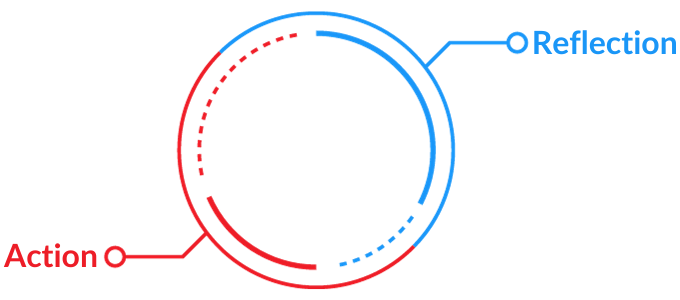
Now, let’s uncover…
Most people do one of three things:
- They take consistent action but rarely reflect.
- They reflect often but rarely try something new.
- Or they neither reflect nor take consistent action.
What most fail to realize is that self-discovery requires consistent action and continuous reflection. These two steps are essential if you want to discover yourself fast.
The next section provides ideas. Develop good habits or a daily routine around a few of those items to promote consistency.
Now let’s get started:
#1: Map your archetype
Trying to be like someone else is a recipe for disaster. And exploring your inner world is the only way to live a truly fulfilling life.
It took some time for me to understand that.
My extroverted friends got all the girls at school, whereas I struggled with introversion.
But being an introvert wasn’t my problem.
Instead, I was trying to be like my extroverted friends. I felt fake and inauthentic. And the girls smelled it from miles away.
I kept struggling with myself until I discovered my strengths as an introvert. Rather than trying to be the life of the party, I had to learn to be myself. And to have fun in my own way.
That’s sexy.
And not just in relationships – but in all areas of life.
You must understand who you are and what makes you tick to design your best life.
So what helped me to get unstuck after years of frustration?
I learned about myself through the best personality tests . These insights changed everything. And that’s why they’re my most recommended tool for people who’re just starting their self-discovery journey.
Here are my favorite options from Truity :
- 16 Personalities Test
- Enneagram Test
- Big 5 Personality Test
Once you’ve mapped your personality traits, it’s time to…
#2: Discover your superpowers
You excel in life when you work from personal strengths .
Of course, you should upgrade any weaknesses that interfere with your work and personal life. But for the most part, you’ll experience more joy and achieve better results when you lead with your superpowers.
Here are some questions to find out what you’re good at :
- What do you happily spend money on?
- What did you achieve, and how?
- What provides you joy?
- What gives you energy?
- And what compliments do you get often?
Use these questions to brainstorm. In addition, you can conduct a personal SWOT analysis . And then supplement your findings with a strengths test to gain a different perspective, such as the HIGH5 Test .
#3: Unravel your personal core values
Your personal values serve as the governing rules of your life.
You feel congruent when you make decisions and take actions that align with your core values.
And you’ll feel disconnected when there’s a mismatch.
Mapping your values can explain your emotions, feelings, and behaviors in certain situations. It helps you navigate challenges. And it guides your decision-making processes.
Below are some questions to unravel your values:
- What do you value most in life?
- When do you feel happy and most fulfilled?
- What areas of your life do you value the most and why?
- Who inspires you, and which of their traits inspire you the most?
- Finally, select what resonates from this list of core values .
Brainstorm a list of all the values that come to mind.
Then, delete the least important values until a top 10 remains. Finally, prioritize these 10 from high to low.
Consult your top three to five values often to live congruently.
#4: Make a list of interests
Unraveling your personality traits, strengths, and values is a great first step on your journey of self-discovery.
And I hope you did the exercises.
The next step is to list your interests.
What would you like to explore?
Write down everything that comes to mind.
This is your mini-bucket list, something to try at least once.
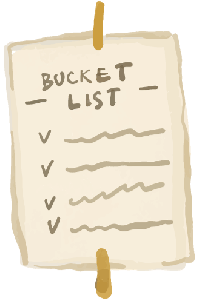
Here are some questions to inspire your list:
- What piques your interest already?
- What are potential passions you want to explore?
- What topics would you want to read a book about?
- What new skills do you want to learn ?
- What outdoor activities do you want to try out?
- What sports have you never done before?
- What new hobbies would you like to explore?
- What instruments would you like to play?
- What places would you love to visit?
Trying new stuff makes life more fun. It also teaches you a ton about yourself. And you might just stumble upon a new passion or career path like me.
Once you’ve got an extensive list, it’s time to…
#5: Create personal quests
Personal quests are your life goals .
And perhaps you already set personal goals . But if not, pick the most appealing items from your list of interests.
What would you like to explore first?
For example, say you want to travel through South America for a few months. And you want to learn Spanish in the next 2 months.
And perhaps you want to find meaningful work after your travels. So you decide that you’ll spend 6 months learning a high-income skill when you get back.
Now, you’ve already got a year’s worth of personal quests.
Even if you’re unsure about your long-term plans, you should set short-term goals and get moving.
That’s much better than dabbling or waiting around.
For starters, setting and achieving goals is a cure for boredom. But remember that taking action is what provides self-knowledge and insights, enabling you to set better and more meaningful goals.
Some questions to clarify your options:
- What skills would you like to master?
- What do you want to become an expert in?
- If money was no issue, what would you do?
- What would you like to achieve in life?
- How would you like to make a difference in the world ?
- What experiences would you like to accumulate?
- What places would you like to travel to?
- And what does your ideal self look like?
Write down everything that comes to mind.
And don’t forget to…
#6: Embark on a solo adventure
Backpacking by myself through Australia was one of the greatest catalysts for self-exploration.
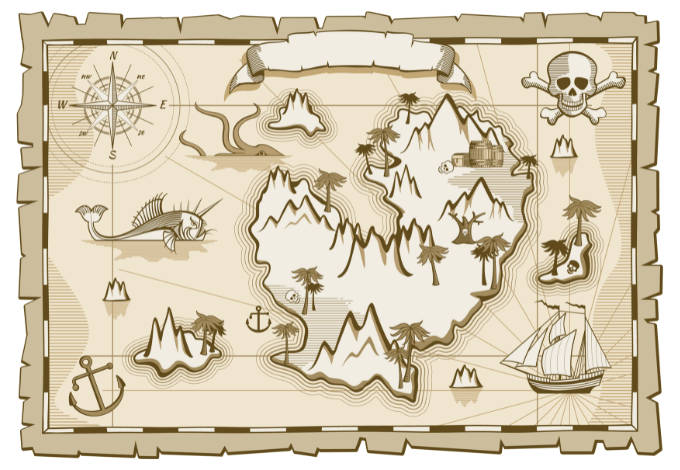
Solo adventures accelerate personal growth, independence, and self-awareness. Besides learning about yourself, you’ll learn a lot about others and the world around you too.
Backpacking was the best decision I ever made.
But you don’t have to travel for months.
Consider these solo adventures:
- Go on a hike by yourself
- Do a floatation tank session
- Go to a wellness center for the day
- Enjoy a holiday abroad by yourself
- Visit a silence retreat for a few days
- Make a little road trip by yourself
- Or travel alone for extended periods
Traveling alone can feel awkward and scary. But discomfort is okay. In fact, pursuing discomfort is the catalyst for personal growth.
And there’s nothing wrong with a solo adventure.
Quite the contrary.
You’ll unlock your greatness when you…
#7: Embrace solitude
There’s great power in silence.
But in a world that glorifies extroverted traits and constant connectivity, solitude may seem intimidating.
Yet, moments of aloneness are essential to turn inward. Tune out of external distractions to deepen the connection with yourself.
Solitude is the secret sauce to connect with your inner self.
Many successful people embrace periods of solitude for deep thinking and self-reflection. Think about Albert Einstein, Steve Jobs, Warren Buffett, J.K. Rowling, Mahatma Gandhi, and many more.
And there are many ways to embrace solitude.
Going on a solo adventure is an excellent option. But also consider the following practices and habits:
- Deep breathing
- Walking in nature
- Riding your bike
- Creative thinking
- Observing sunrise or sunset
- Engaging in creative acts
- Reflecting on your goals
- Disconnecting from technology
Schedule time for solitude. Although it may feel uncomfortable initially, exploring your inner world can lead to long-term success and happiness.
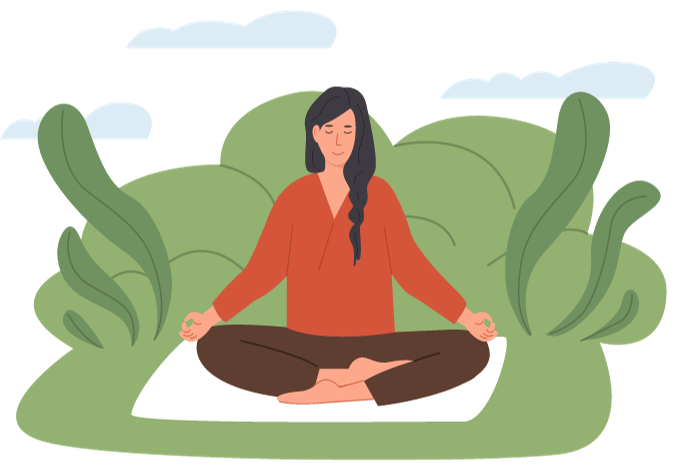
But you can also take a different approach and…
#8: Volunteer somewhere
Volunteering can lead to self-awareness while positively impacting others and the community. It exposes you to different perspectives and viewpoints you might never consider on your own.
It also provides a sense of purpose. And you’ll undoubtedly meet some amazing people in the process.
Here are some volunteering ideas:
- Environmental conservation such as community clean-up projects.
- Mentor or tutor (unprivileged) others and share your knowledge.
- Care for animals in need of love and attention in animal shelters.
- Help organize charity events, fundraisers, or community gatherings.
- Provide support and resources at homeless shelters.
- Organize or assist in creative workshops.
- Spend time with seniors at nursing homes.
- Volunteer at hospitals or healthcare centers.
- Get involved with organizations supporting social causes.
- Join disaster relief teams or organizations to assist communities affected by natural disasters.
There are many more volunteering opportunities. Perhaps your work has connections to volunteering organizations too.
Try it out and reflect on your experience.
#9: Start a writing practice
Something happens in the brain when we write.
The art of writing stuff down provides greater clarity – especially when you write with pen and paper. Having a writing practice is a transformative way to promote self-discovery for many people.
And yet again, there are many different options:
- Keep a journal to explore your thoughts, fears, and reflections.
- Daily goal-setting to create clarity and maintain focus.
- Keep a gratitude journal to appreciate the little things in life.
- Try creative writing , such as poetry, short stories, or fiction.
- Write letters to yourself, others, or your future self.
- Use mind-mapping techniques to organize thoughts and ideas.
- Compose a personal manifesto that outlines your core principles.
- Reflect on significant events or milestones in your life.
- Rewrite your story by crafting the perfect next chapter of your life.
- Write Morning Pages , a concept from The Artist’s Way . Write three pages of free-flowing thoughts every morning.
Putting thoughts into words clarifies your emotions, feelings, beliefs, needs, goals, and aspirations.
If you need some help, you can…
#10: Use self-reflection cards
Do you lack the inspiration to sit down and journal? If so, you might enjoy daily journaling prompts to get you started. Use these reflection cards to get started, for example.

Grab a new card each day and answer the question.
You can answer it out loud.
But again, there’s magic in writing stuff down. Writing slows your thought process, forcing you to sit with each thought a little longer.
These unique questions help you to think about different aspects of your life. And they also encourage you to ask the hard questions.
So definitely try this tool on your journey of self-discovery.
And for the dreamers…
#11: Visualize your perfect life
Visualization is a great technique to manifest success and abundance .
But it’s also very effective to explore opportunities.
Lay down and close your eyes for the next 5-15 minutes. Imagine yourself achieving and having everything your heart desires.
- What do you see?
- How do you feel?
- And who are you with?
Then imagine that you did everything there was to do, bought everything you wanted to buy, and visited all the places you wanted to see.
What would you do next?
Exploring your ideal life is fun, fosters a positive mental attitude, and ignites a greater sense of purpose beyond the superficial stuff.
Another idea is to go back in time and…
#12: Dig into your childhood
Your past is a goldmine for self-discovery.
It holds valuable clues to the building blocks of your identity.
Childhood memories, experiences, and influences shape who we become as adults. And delving into your past can reveal patterns, beliefs, and values that still influence you today.
Here’s how to revisit your earlier life:
- Gather memory triggers such as items, photographs, old diaries, or any objects that remind you of your childhood.
- Begin with your earliest memories and gradually work your way through various stages of childhood. Remember moments of joy, challenges, fears, and significant events.
- Reflect on your emotions as you recall past experiences. They’re powerful indicators of what mattered to you during those times.
- Identify influential people throughout your life and consider how they shaped your thoughts, beliefs, and behaviors.
- Identify patterns in your thoughts and beliefs. And evaluate whether they still influence your actions and decisions today.
- Journal your discoveries to record insights and realizations.
Remember that personal growth and self-discovery is the goal of exploring your childhood memories. So, make sure you celebrate positive memories and learn from any challenges.
This practice may uncover the roots of many beliefs and behaviors.
Alternatively, try…
#13: Walking meditation
Walking through nature is one of my favorite ways to become self-aware.
And I occasionally plan a long hike to connect with myself.
I’ll grab a bag, pen, and my favorite self-help journal . And I’ll pack some of my favorite snacks and drinks. Then, I’ll go far out to explore a new place on foot.
I usually split my long walk into sessions:
- Listening to podcasts
- Listening to music
- Immersing myself in nature
- Brainstorming new ideas
- And exploring my thoughts
Regardless of what I’m doing, thoughts and ideas always arise. And when they do, I’ll explore them or write them down to explore later.
Feel free to give your spin to it.
But be mindful of what you do during your walk. If you listen to podcasts 100% of the time, you still distract yourself from your inner voice.

#14: Learn new skills
Skill development is a fantastic way to make yourself more valuable and attractive to the marketplace. And the process also unlocks self-insights and new possibilities.
For example, I started my blog to crystalize my thoughts and deepen my personal growth journey. But blogging also taught me more about writing, marketing, web development, and search engine optimization (SEO).
Although I didn’t know about SEO before, I found it fascinating.
So I quit my finance career to pursue an internship with my new long-term goal to become an SEO consultant.
And today, I’m a freelance SEO specialist. I love what I do and I’ve the freedom I always desired to work from anywhere.
All because I decided to start blogging.
Where can you start?
Here is some inspiration:
- Brainstorm skills you already want to learn more about.
- Browse the catalog of Udemy to explore interesting skills.
- Explore high-income skills you can learn from home .
- Read my list of new skills to learn at home .
- Learn a new language with Rocket Languages .
- Start a personal project, like a blog, podcast, or YouTube channel.
- View the book categories on Amazon and dive into subcategories to discover new topics.
Schedule time in your week to learn a new skill or upgrade existing ones if you want to unlock your wildest dreams and aspirations.
#15: Try something new – and do so often
When was the last time you did something new?
We often are too busy or scared to try new things. And we fail to see the immense value of engaging in novel experiences.
But there are many benefits of stepping out of your comfort zone and seeking new experiences.
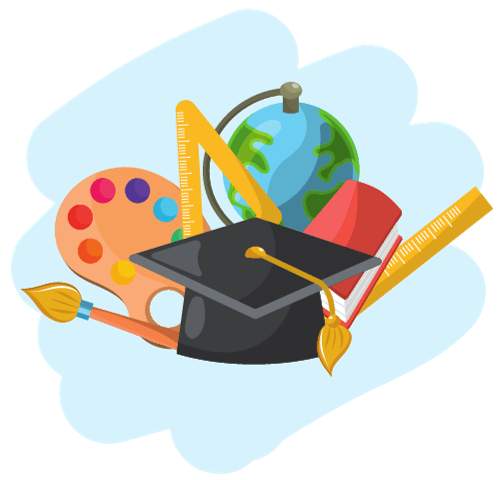
It’ll improve your confidence, creativity, and resilience.
And it’ll make your life much more exciting and interesting.
Finally, it boosts self-awareness.
So challenge yourself to engage in novel activities regularly.
In your downtime, you can use the following…
#16: Self-discovery questions to raise self-awareness
Our greatest gift is to wonder.
And self-questioning is an effective tool to become curious about your thoughts, feelings, needs, values, goals, and aspirations.
Here’s a list of questions to ask yourself:
- How am I living in alignment with my core values?
- What currently brings me the most joy and fulfillment?
- What are the activities or environments that drain my energy?
- How do I define success and happiness?
- What are my biggest fears, and how do they hold me back?
- What are the greatest obstacles that keep me from my goals?
- Is there anything I should change about my current situation?
- What do I like best about myself and my situation?
- How did I cope with recent stress and challenges?
- What activities or hobbies make me lose track of time?
- What are some self-limiting beliefs I hold about myself?
- How did I handle criticism and feedback from others?
- What are patterns or recurring themes in my daily life?
- What are my most recent accomplishments?
- How do I want others to see me?
- Which relationships do I want to invest more time in?
- What are the things I need to let go of to move forward?
- What are some past experiences that shaped who I am?
- How do I define my identity and sense of self?
- What do I want to learn or explore more in life?
- What kind of legacy do I want to leave behind?
- How do I ensure consistent personal growth?
- What are my favorite ways to express creativity?
- What lessons did I learn last week?
- How did I recently take care of my physical, emotional, and mental well-being?
Frequently asking yourself these self-discovery questions fosters self-awareness , continuous self-improvement , and self-esteem .
#17: Accept yourself fully
Accepting yourself is crucial for well-being, success, and happiness.
And here’s how you can cultivate self-acceptance:
- Treat yourself like a good friend in distress.
- Identify and challenge negative self-limiting beliefs . Replace them with positive affirmations and constructive statements.
- Acknowledge and celebrate your successes, no matter how small.
- Strive for progress, not perfection.
- Set realistic goals to gain momentum.
- Express yourself authentically through activities you enjoy.
- Forgive yourself for past mistakes and learn from them instead.
- Spend more time around people who support and uplift you, rather than those who bring you down.
- Seek support if you struggle to accept yourself. A therapist can guide you through the process and provide a fresh perspective.
Recognize that accepting yourself is an ongoing process.
And it’s normal to have ups and downs along the way.
So stay patient and self-compassionate.
What’s next?
The process of self-discovery is transformative and unlocks authenticity, inner harmony, and personal fulfillment.
Gaining deeper insights into your values, desires, and beliefs empowers you to make better decisions. And it’ll open doors to better opportunities, meaningful relationships, and a more purposeful life.
Key takeaways:
- Self-discovery involves exploring your personality traits, strengths, values, desires, interests, purpose, feelings, emotions, and more.
- Take consistent action and try novel things often to expand your comfort zone and uncover what you like and dislike.
- Self-reflect often and embrace periods of solitude.
Challenge: I encourage people who are just starting to take a personality test . And if you already did then challenge yourself to do something new this week.
Also, check out the following resources to dive deeper into self-discovery and personal development:
- The best guided journals
- The best personality tests
- The best books on self-awareness
- The best books on finding your life’s purpose
Finally, are you ready to embark on a journey of self-discovery and unlock your true potential? Sign up for weekly insights for personal growth and living an authentic and meaningful life!
Enjoyed reading this post?
Sign up below to get content like this straight into your inbox.
*I dislike spam too. So be assured that I won't spam or share your information with 3rd parties.

I want to...
Featured resources:.
How to Begin Your Self-Discovery Journey: 16 Best Questions

As part of this process, we must not only search to determine what constitutes our true selves, but let go of objects of identification we’ve long mistaken for ourselves, requiring a balance of introspection and new experiences.
So let’s set sail.
In this article, we’ll give you a range of powerful questions to help you along your journey of self-discovery and point you toward further reading and resources.
Before you continue, you might like to download our three Meaning and Valued Living Exercises for free . These creative, science-based exercises will help you learn more about your values, motivations, and goals and will give you the tools to inspire a sense of meaning in the lives of your clients, students, or employees.
This Article Contains:
What is self-discovery according to psychology, fostering self-discovery skills: 10 examples & tips, why is the process important, a look at self-discovery coaching, 3 exercises, games, and activities for adults, best worksheets and journal prompts, 16 questions to ask yourself or your clients, helpful books & apps for your journey, tools from positivepsychology.com, a take-home message.
Drawing often from the field of philosophy , psychologists point to the illumination of our daimon (or ‘true self’) as the ultimate goal of self-discovery.
Formally defined, this true self is
“the central inner force common to all human beings and yet unique to each, which is the deep source of growth… [that is] free, healthy development in accordance with the potentials of one’s generic and individual nature.”
Horney, 1950, p. 17
As part of the process of searching for our true selves, we are ultimately working to identify three things (Waterman, 2011):
- Personal potentials
- Our purposes for living
- Opportunities to act upon those potentials and purposes in living
The search for our true selves, therefore:
“refers to those processes, both intuitive and reasoned, by which those [personal, purpose-related] potentials are discovered and come to attain the status of personally concordant goals that are to be actualized.”
Waterman, 2011, p. 360
According to this view, a person’s true self essentially lies beneath the surface, and our task is to find, recognize, or understand that which already exists. Once you have, you can then make choices about your life and identity that are more consistent with this self-knowledge (Waterman, 2011).

Seek a supportive atmosphere
The more time we spend in the presence of supportive family, friends, lovers, and communities , the sooner we will be likely to discover our true nature. This is because warm and encouraging atmospheres facilitate feelings of inner security while providing the freedom to have our own feelings and thoughts (Horney, 1950).
To this end, here are some ideas to consider:
- Seek quiet spaces and time out to facilitate reflection or journaling .
- Join a social group whose interests and passions align with your own, such as a painting, writing, or poetry group.
- Find a coach or therapist for a safe space to pursue self-discovery.
- Set boundaries with people who discourage your individuality, negatively affect your emotions, or put you down.
- Seek the company of people who inspire you, make you feel positive, and challenge your perception of yourself.
Identify your drifts
Pay close attention to the things you naturally love doing, or drifts, particularly those that are personally expressive . By paying attention to the subconscious pull of these activities, you can allow them to guide you toward your true self, stemming from your genetic makeup, upbringing, and experiences (Pagedar, 2021).
- Our drifts tend to emerge when the mind is still, so try selecting a quiet day to do some meditation or practice some relaxation techniques.
- Try to notice activities that cause you to slip into the state of flow , as these often point us toward our drifts.
- Consider which activities you possess a natural aptitude or talent for, perhaps using a strengths-finding exercise .
- Think about which activities you find intrinsically motivating . These are the activities you would undertake in the absence of external rewards, such as money or the approval of others.
- Notice times when you feel a strong sense of personal responsibility to do something or have a unique vision about how something should be carried out.

Download 3 Meaning & Valued Living Exercises (PDF)
These detailed, science-based exercises will equip you or your clients with tools to find meaning in life help and pursue directions that are in alignment with values.
Download 3 Free Meaning Tools Pack (PDF)
By filling out your name and email address below.
To understand why self-discovery is so important, we must consider the consequences of failing to identify our true selves.
According to Horney (1950), when a person experiences a large discrepancy between their lived and real selves, they are likely to experience a sense of alienation from themselves. This remains true even if the person is successful in their activities and receives external rewards.
Such a person may often notice themselves wondering, “ Why am I doing this when it’s not who I really am? ” The consequence is a feeling of guilt or dissatisfaction if we fail to live up to an idealized version of ourselves that we cannot be.
Besides this negative emotional toll, the problem with pursuing such an ideal is that it will be rooted in externally derived standards of worth.
To illustrate, here are some examples:
- A student feels pressure from their parents to pursue a prestigious career in law, even though this line of work does not inspire them.
- A famous musician has mistaken their true self with their like of the status, prestige, and social validation they receive while performing.
- A woman’s family talks her into finding a husband and settling down when she’d rather travel the world with her friends.
- A son feels obligated to take over the family business when he’d prefer to start his own venture.
When we cannot live in alignment with our true selves, we must spend energy attempting to deny and distort our experiences to make sense of a pervasive lack of happiness and personal fulfillment. This ongoing effort can go so far as to produce psychological states and conditions such as depression (Waterman et al., 2010).
This is why self-discovery is so important.
Our goal in life should not be to pursue imagined or externally derived ideals, but rather to develop a more realistic understanding of our strengths and limitations. By doing so, we can avoid negative psychological states and self-actualize , feel contentment, and make better contributions to the world.

A growing trend in coaching, self-discovery coaching is about looking beyond specific goal pursuits (e.g., “I want to improve my self-esteem ”) to discover how we can live authentically and be truly happy .
Self-discovery coaching has many components, including (Elevate Life Project, n.d.):
- Exploring your values to live in congruence with what’s most important to you
- Discovering grounded confidence, centeredness, and strength
- Identifying your abilities for making easier decisions
The role of a self-discovery coach in this process is to act as co-pilot on a client’s journey toward authentic fulfillment by challenging them, imbuing them with courage, and showing compassion.

World’s Largest Positive Psychology Resource
The Positive Psychology Toolkit© is a groundbreaking practitioner resource containing over 500 science-based exercises , activities, interventions, questionnaires, and assessments created by experts using the latest positive psychology research.
Updated monthly. 100% Science-based.
“The best positive psychology resource out there!” — Emiliya Zhivotovskaya , Flourishing Center CEO
If you or your clients are looking to set off on a self-discovery journey, consider the following fun and insightful activities to get you started.
This exercise is a useful starting point for viewing yourself clearly in terms of values, beliefs, and more. The exercise guides users through a two-step process of considering themselves from the perspective of others, followed by a consideration of their self-perceptions at different times in their life.
Spontaneous collage
Collage is a fun and cathartic method of self-discovery that helps people bypass the socially protective aspects of the mind and reveal aspects of their authentic self. Best of all, no previous art experience is required.
For a great resource, check out Shelley Klammer’s 12-week online course and check out the #collageforselfdiscovery hashtag on Instagram to get inspired by others’ collages.
Kokology: The Game of Self-Discovery
Created by famous Japanese psychologists Tadahiko Nagao and Isamu Saito, kokology , the study of kokoro (“mind” or “spirit” in Japanese), is a fun and sometimes hilarious game for learning about yourself.
The game invites players to answer questions about seemingly innocent topics, such as the color of an imaginary bird that has flown in their window, to reveal profound insights in their answers.

Journaling and worksheets can both be hugely helpful for this purpose.
To help, look at some of the following free resources from our site:
- Self-Awareness Worksheet for Adults This worksheet poses a series of 15 questions to help you discover more about your true self. Specifically, the questions tap into topics such as your talents/strengths, values, and barriers to living more authentically.
- What Are My Qualities and Traits? This worksheet invites you to identify your top five and weakest two qualities from a list of 100 strengths. It then invites you to consider how you might shape, develop, and use your toolkit of identified strengths to better your life.
- Reflecting on Three Things This worksheet invites you to explore what defines who you are. These reflections can include statements, objects, roles in life, people you admire, and ambitions.
If you’re more into journaling, see if any of the following prompts might inspire some of your upcoming entries (Hollis, 2019):
- What things have you been doing lately that may be positively or negatively affecting your mental health ?
- What ways can you touch or move your body that makes you feel good?
- If you could spend the day doing anything, what would you do?
- How do you show love to other people?
- What are some things about you that you wish other people knew?
How to discover your authentic self – at any age – Bevy Smith
For more ways to get started on your journey of self-inquiry, consider the following questions, drawn from leading books designed to guide you toward self-discovery (see Helpful Books & Apps for Your Journey ):
Mindful self-discovery questions
- What’s going on inside your body at the moment (e.g., sensations, flows of energy)?
- Is there joy, ease, and lightness in what you are doing at the present moment?
- Do you really have any problems right now in this present moment ?
- Is there anything you can do to change, improve, or remove yourself from a present dissatisfactory situation? If not, how can you move toward accepting your present circumstances?
Exploring values
- What are your top five personal and professional values?
- How are you living outside your values?
- In what areas do you feel a personal sense of responsibility to better the world?
- How are you living outside of your integrity?
Questions about fear and courage
- What do you fear the most?
- What fears have actually come true in your life?
- What would happen if you treated the actions you fear as an experiment?
- For which pending decision could you use 10% more courage?
Considering worthwhile experiences
- What has made your childhood worthwhile?
- What lessons did you learn last week?
- What makes life worthwhile for you?
- What trip have you always wanted to take, and how could you make this trip happen?
More questions for self-discovery
For even more powerful coaching questions, be sure to check out some of the dedicated articles throughout our blog:
- 73 Powerful Coaching Questions to Ask Your Clients
- 100 Most Powerful Life Coaching Questions [+PDF]
- Self-Coaching Model Explained: 56 Questions & Techniques for Self-Mastery
Here are some of our favorite books and apps to support greater self-insight and discovery.
1. The Power of Now: A Guide to Spiritual Enlightenment – Eckhart Tolle
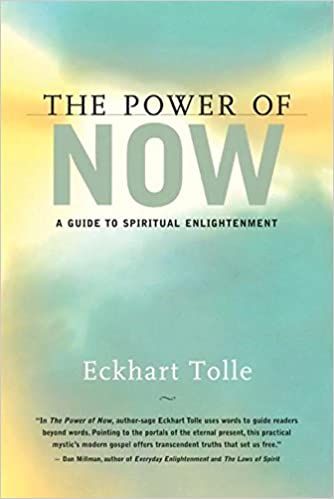
A critical first step toward greater self-insight involves ceasing to confuse your true self with the endless stream of thoughts flowing through your mind.
The bestselling book The Power of Now takes readers on a journey to find their deepest self through the lens of mindfulness and spirituality.
The book guides the reader through steps to help recognize and free themselves from ego in the form of defense mechanisms, automatic negative habits, and over-identification with thought. From here, readers can then discover their true nature and lasting contentment, rooted in the present moment.
Find the book on Amazon .
2. Self-Discovery Questions: 155 Breakthrough Questions to Accelerate Massive Action – Barrie Davenport
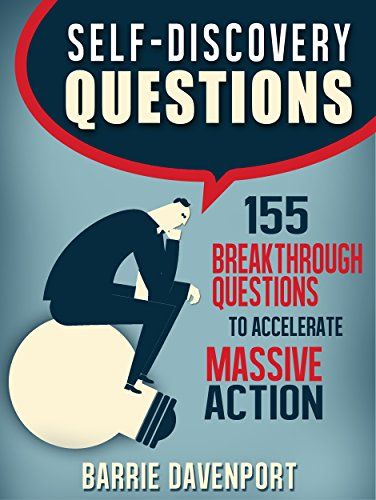
Not all of us have the resources to employ a self-discovery coach, making it all the more important to know what questions to ask on your self-discovery journey.
Barrie Davenport’s book of 155 powerful questions is a perfect companion for self-reflection and journaling, helping readers become less reactive and take charge of their lives and destiny.
Once you become acquainted with your answers, you can strengthen self-awareness, break out of automatic patterns, and feel empowered to make positive new life changes.
3. The 365 Self-Discovery Journal: One Year of Reflection & Development – Created by 21 Exercises
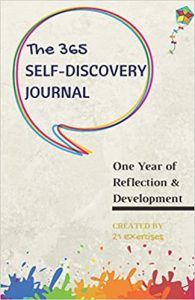
Journaling remains one of the best ways to pursue self-discovery and greater self-insight (Charles, 2010).
This book provides journal lovers with a year’s worth of challenging and original questions to guide self-discovery.
By combining each prompt with thought-provoking poems and quotes, this book is an excellent tool to help steadily expand the reader’s comfort zone and curiosity across domains ranging from career and finances to love and relationships.
4. The Quenza app
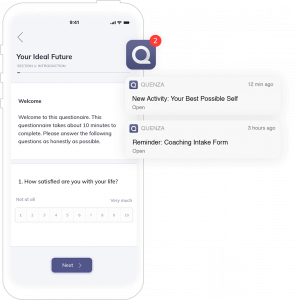
Quenza was designed by our very own team as a one-stop resource for coaches and psychologists wishing to remotely support their clients’ self-inquiry between scheduled sessions.
The app links with an online dashboard and growing library of science-backed activities you can customize and send directly to your clients’ smart devices, including audio meditations, guided visualizations, and many thought-provoking reflections.
Try the app, platform, and entire library of pre-built activities for 30 days for just $1.
5. The Waking Up app
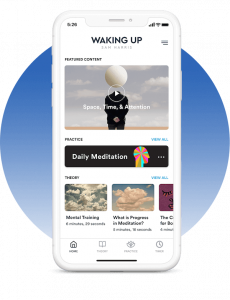
While Western takes on meditation tend to emphasize health and stress reduction, there is much more we can discover about ourselves through this powerful practice.
Waking Up , developed by philosopher and neuroscientist Sam Harris, features a rich array of audio-based meditations, exercises, and conversations with leading experts and teachers to help you make profound discoveries about the nature of your own mind.
This app is a top-rated resource for those seeking to dismantle illusions of the self and rediscover their true nature and purpose.
6. The Reflectly app

With the growing recognition of journaling as a tool for self-insight, new technologies are emerging to support this powerful practice.
Reflectly is a modern journaling app for self-care and greater happiness. Drawing on evidence-based approaches from positive psychology, mindfulness, and Cognitive-Behavioral Therapy, this app serves as an AI companion to help you manage negative thoughts and find greater happiness.
Among its personalized functions, the app includes daily quotes, a mood tracker , and personalized insights via its reporting features.
Throughout this post, we’ve discussed the importance of clarifying values to better understand what brings meaning throughout one’s journey of self-discovery. To this end, we invite you to check out our free Meaning & Valued Living Exercises Pack .
This pack features three of our top tools from the Positive Psychology Toolkit©, all of which center on the theme of values-based living:
- The Top 5 Values This exercise draws on key principles of Acceptance and Commitment Therapy to help clients begin brainstorming their values. Following this, clients will then prioritize these values in a list to identify those most central to who they are.
- Self-Eulogy This exercise invites clients to consider how they’d like to be remembered at their funeral as a means to identify and clarify values. Based on this, they can then consider how well they are living in alignment with these values.
- The Scoreboard Metaphor This exercise helps clients recognize how to enact their values through goal-setting. In particular, it draws on the metaphor of a basketball game to illustrate how living into one’s values is an ongoing process and that the paths by which we pursue our goals are opportunities to enact our values in daily life.
You can access all three exercises for free by downloading our Meaning & Valued Living Exercises Pack .
If you’re looking for more science-based ways to help others discover meaning, this collection contains 17 validated meaning tools for practitioners. Use them to help others choose directions for their lives in alignment with what is truly important to them.
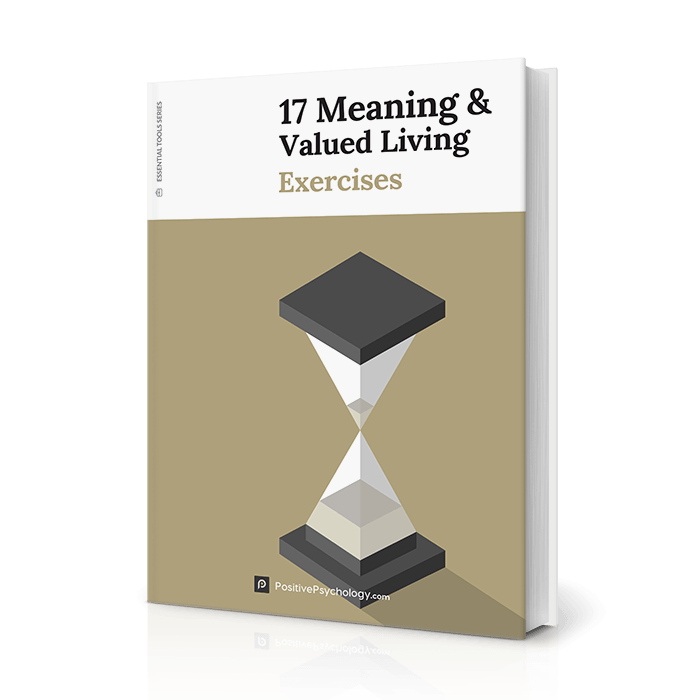
17 Tools To Encourage Meaningful, Value-Aligned Living
This 17 Meaning & Valued Living Exercises [PDF] pack contains our best exercises for helping others discover their purpose and live more fulfilling, value-aligned lives.
Created by Experts. 100% Science-based.
Self-discovery is an ongoing process of stripping away that which is unimportant, reviewing our core values, and seeking to live in greater alignment with these inner truths.
Importantly, anyone can take steps toward greater self-knowledge. All that’s required is an attitude of curiosity and regular time out for meditation, reflection, or self-questioning.
We hope this article has left you feeling equipped for your journey of self-discovery, and if you decide to try out any of the tools or exercises we’ve explored, be sure to let us know in the comments.
We’d love to hear from you.
We hope you enjoyed reading this article. Don’t forget to download our three Meaning and Valued Living Exercises for free .
- 21 Exercises. (2018). The 365 self-discovery journal: One year of reflection & development. Author.
- Charles, J. P. (2010). Journaling: Creating space for “I”. Creative Nursing , 16 (4), 180–184.
- Davenport, B. (2015). Self-discovery questions: 155 Breakthrough questions to accelerate massive action. Bold Living Press.
- Elevate Life Project. (n.d.). Self discovery coaching . Retrieved October 11, 2021 from https://elevatelifeproject.com/self-discovery-coaching/
- Hollis, B. (2019, July 16). Who am I? Journaling prompts for self-discovery and self-reflection. Learning to Be Free . Retrieved October 11, 2021 from https://www.learningtobefree.com/2019/07/16/journaling-prompts-for-self-discovery/
- Horney, K. (1950). Neurosis and human growth: The struggle toward self-realization . Norton.
- Pagedar, A. (2021). Finding awareness: The journey of self-discovery . Author.
- Tolle, E. (2004). The power of now: A guide to spiritual enlightenment. New World Library.
- Waterman, A. S. (2011). Eudaimonic identity theory: Identity as self-discovery. In S. Schwartz, K. Luyckx, & V. Vignoles (Eds.), Handbook of identity theory and research (pp. 357–379). Springer.
- Waterman, A. S., Schwartz, S. J., Zamboanga, B. L., Ravert, R. D., Williams, M. K., Bede Agocha, V., … Brent Donnellan, M. (2010). The Questionnaire for Eudaimonic Well-Being: Psychometric properties, demographic comparisons, and evidence of validity. The Journal of Positive Psychology , 5 (1), 41–61.
Share this article:
Article feedback
What our readers think.
This is a great article for self-discovery, I recommend it to all, it’s a must read for the young minds.
Thanks to a great counselor. I appreciate your encouragement and efforts that have served as an eyes opener to self discovery and other resources that is helpful.
You have some great resources listed here in this article. Thanks for the great read! -Ryan
Appreciated, Nicole, for insight well done to start kicking where need be. Keep up te good work!
Thanks Nicole. I will explore some of the resources which sounds great. I work with medical students, some of whom are at the very beginning of learning reflective approaches to enhance their self knowledge. The challenge is always to find a variety of ways to promote engagement. You have given me some helpful ideas.
Thank You Dr, Nicole.
I have left you a message on LinkedIn.
Thank you so much for this wonderful article. Very useful and helps in the journey of self awareness and so helpful to the therapist and counselors who are using these resources to support clients. Heartfelt thanks and gratitude for all the resources that benefit the clients and counselors who otherwise would not be able to access such great quality articles and resources. Thank you. As a counselor who is doing a lot of free counseling these resources and articles are so helpful, cause I cannot afford them otherwise. Thanks for supporting the counselors and therapist and clients who ultimately benefit.
Thanks, Nicole … you shared a very interesting set of perspective.
Let us know your thoughts Cancel reply
Your email address will not be published.
Save my name, email, and website in this browser for the next time I comment.
Related articles

Urge Surfing: How Riding the Wave Breaks Bad Habits
We all experience cravings, sometimes daily. For some, it might be chocolate, caffeine, or social connection, while for others, it can be more serious, including [...]

Reparenting: Seeking Healing for Your Inner Child
In our work as therapists, we often encounter the undeniable truth: we never truly outgrow our inner child. A youthful part within us persists, sometimes [...]

30 Best Self-Exploration Questions, Journal Prompts, & Tools
Life is constantly in flux – our environment and ‘self’ change continually. Self-exploration helps us make sense of who we are, where we are, and [...]
Read other articles by their category
- Body & Brain (52)
- Coaching & Application (39)
- Compassion (23)
- Counseling (40)
- Emotional Intelligence (22)
- Gratitude (18)
- Grief & Bereavement (18)
- Happiness & SWB (40)
- Meaning & Values (26)
- Meditation (16)
- Mindfulness (40)
- Motivation & Goals (41)
- Optimism & Mindset (29)
- Positive CBT (28)
- Positive Communication (23)
- Positive Education (37)
- Positive Emotions (32)
- Positive Leadership (16)
- Positive Parenting (14)
- Positive Psychology (21)
- Positive Workplace (35)
- Productivity (16)
- Relationships (46)
- Resilience & Coping (39)
- Self Awareness (20)
- Self Esteem (37)
- Strengths & Virtues (29)
- Stress & Burnout Prevention (33)
- Theory & Books (42)
- Therapy Exercises (37)
- Types of Therapy (54)
LaToya Rachelle
Where Women Thrive
Finding Yourself: The Definitive Guide for Your Journey of Self Discovery
📌Share this post
Do you sometimes feel like something is missing in your life and that you are searching for the answer? That despite your best efforts, you just can’t seem to find yourself or the path that’s right for you?
Have you ever felt that there’s more to you than meets the eye? That there’s more lying within the depths of your being, waiting to be discovered?
Well, gorgeous, if you’re nodding your head in agreement to any of these questions that means it’s time to embark on a journey of self discovery.
And while a journey to self discovery can be a little intimidating to start (we’re going to dive deep ), I don’t wan’t you to worry; I’m here to guide you through it.
Consider this post as your trusty compass, your handy guidebook packed with clear, actionable steps, and your personal cheering squad all wrapped into one.
This journey is sooo worth it.
Let’s get started!

See What's Inside
Why Go on a Journey of Self Discovery?
Unraveling your true self & embracing your uniqueness, navigating the journey, ready to uncover your authentic self grab our self-discovery journal & workbook for free, #2 – practice mindfulness and meditation, #3 – try new experiences, #4 – practice self-compassion, #5 – make self-care a priority, staying open to change & growth, building your self-discovery support network, 7 ways to cultivate authenticity while on your journey, celebrate your progress, final thoughts, understanding self discovery.
So, what’s this journey all about?
It’s about embarking on a treasure hunt within your own heart and mind.
It’s recognizing that you’re not just a passenger in your life; you’re the driver .
You get to choose the route, set the pace, and decide which turns to take.
It’s a path of uncovering your hidden strengths, passions, and dreams.
It’s understanding your quirks, facing your fears, and growing into the best version of yourself possible .
You may have heard the old saying “Know thyself” – this is exactly what embarking on a journey of self-discovery is all about.

The truth is, if you don’t invest in getting to know yourself, no one else will — and you’ll forever be living a life that isn’t in alignment with your truest self.
You deserve to know exactly what makes your heart sing.
And you deserve to live a life that’s uniquely yours.
A journey of self-discovery will bring clarity and empower you to make better decisions in both your personal and professional life.
It will help you to form deeper connections, build stronger relationships , and find a sense of belonging in this world.
Ultimately, it will unearth parts of yourself that have been hidden away for far too long — allowing you to become the version of yourself that you were always meant to be.
Plus, I can guarantee that self discovery will grant you a level of inner peace and understanding that’s unlike anything else.
You know what’s amazing?
You’re not just another puzzle piece in this world; you’re a one-of-a-kind masterpiece.
And there’s no better time than right now to start uncovering your magnificence.
When you embrace introspection and explore your authentic self , you start to uncover what makes you a masterpiece and understand yourself better.
You learn more about what makes you tick, what strategies work best for you in different situations, and who you want to be.
This process of unraveling — it’s empowering and humbling all at the same time.
I want you to think of yourself as an onion (minus the tears, of course).
Each layer you peel back reveals a new facet of your being.
Start with a little self-reflection ➡️ What are your passions? What are the moments that have defined you? What are the dreams you’ve been nurturing deep within?
As you unravel these layers, you’ll likely discover a bunch of strengths you probably didn’t even know existed.
For example, maybe you’re a great listener, a creative thinker, or a problem solver.
Embrace these strengths – they’re your superpowers on this journey. 💪
And don’t forget, acknowledging your weaknesses is just as crucial; they are opportunities for growth.
Don’t be afraid to unravel what those weaknesses are. Facing your fears is an essential part of this journey.
To uncover those, you might ask yourself ➡️ Are there aspects of myself I’ve been avoiding? Are there challenges I’ve been hesitant to take on?
Acknowledge them.
When you confront your fears, you’re not just conquering them, you’re empowering yourself.
Setting your intentions is an important first step in this process.
Ask yourself…
- What do I want to discover about myself? (Is it a hidden talent, a sense of inner peace, or a deeper connection with your passions?)
- What changes do I want to make?
- Where do I want this journey to take me?
Write your responses down.
The answers to these questions and others you come up with will give you direction and purpose.
During this process, make sure you remain curious and have an open mind.
Curiosity will lead you to ask more questions, to dig deeper, and to explore the unexplored corners of your thoughts and feelings.
And an open mind will allow you to consider new perspectives, even if they challenge your current beliefs
Now, it’s important right about now to acknowledge that this journey won’t always be a smooth one.
There might be moments of doubt, fear, and uncertainty.
Sometimes negative self talk might try creep in and attempt to throw you off track. Just know that that type of self-sabotaging behavior is a temporary distortion of your thinking. Don’t let it stop you!
When you encounter a limiting belief, pause, question it, and challenge it. Replace it with a positive affirmation or a truth that reflects your capabilities.
These tough moments are a part of the process.
Look at these feelings as an opportunity to pause, to reflect on what you’ve been through so far, and to move forward with greater clarity.
5 Tools & Tips for Self-Discovery
Now that you’re navigating your journey with clear intentions and an open mind, I’m going to equip you with some powerful tools and techniques to make this expedition even more transformative.
#1 – Self Discovery Journaling
Journaling is an incredibly effective way to explore and understand your inner world, unlock your creativity, reflect, discover, and achieve clarity. It’s a great way to show up for yourself every day .
And guess what? I have a special treat for you! A free Self Discovery Journal , designed to help you to get the most out of your journey.
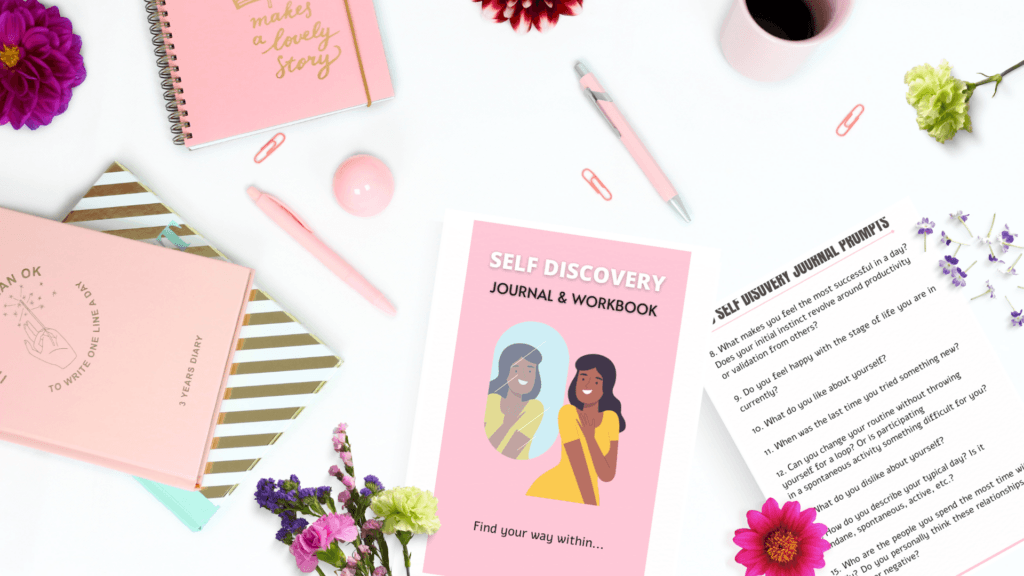
It’s packed with prompts, activities, and thought-provoking self-discovery questions that will spark insights and bring clarity into what matters most in your life.

Receive your free printable and other resources sent directly to your inbox!
Check your inbox. 💌
You won’t be able to get in touch with your inner self if you’re constantly pushing through life without pausing for a moment of reflection.
Mindful living is about using all of our senses to become aware of our thoughts, feelings, and experiences without judgment or attachment to them. It’s living in the present moment and tuning into our inner wisdom.
Similarly, meditation is another incredibly powerful tool for self-discovery – helping to reduce stress and anxiety while promoting empathy and emotional intelligence.
The key takeaway here is that it’s important to prioritize some moments of sitting quietly with your thoughts each day and having regular moments of stillness and reflection during your self-discovery journey.

Ever wanted to learn an instrument, paint, dance, or cook a new recipe ?
Trying new experiences isn’t just about expanding your skill set; it’s about discovering facets of yourself you never knew existed.
Each new endeavor is an opportunity to explore your interests and passions.
Embrace new experiences to open your eyes to the world around you. This could be anything from trying a new activity or cuisine, learning a foreign language, or joining a club.
These are all great ways to challenge yourself and explore different parts of your identity.
Self-discovery is a lifelong journey and that can be tough, especially when you encounter setbacks. That’s why having self-compassion is so important.
Be patient with yourself and have the courage to accept your flaws, mistakes, and weaknesses. Remember that no one has it all figured out – everyone makes mistakes!
Treat yourself with the kindness you deserve.
By learning to practice self-compassion, you’ll be able to keep going on your journey of self-discovery even when the road gets tough.
Remember, the journey of self discovery is about growth , not perfection. So don’t be too hard on yourself and don’t compare your journey to anyone else’s.
The last tip is to make self-care a priority in your life. It’s easy to get overwhelmed and stressed out while on your journey of self-discovery, so it’s important to take care of yourself before anything else.
Take time for yourself – go for walks, give yourself some “me” time to relax or do something that brings you joy.
An added bonus to this is you’re likely to find new insights about yourself while doing something that you enjoy.
Related: 32 of the Best Self-Care Gifts for Women

As you start exploring and getting to know yourself better, it’s important to recognize that change and growth are not only inevitable, they are also going to be key parts of your self-discovery journey.
Instead of being fearful, I want you to embrace the idea of change and growth.
Accept that you are going to learn and become a different person as you go through this process.
Embracing these moments can be some of the most liberating experiences on your journey to discovering yourself.
Change invites you to step out of your comfort zone, where the magic of self-discovery often happens.
And growth provides the opportunity to learn and build upon new ideas, concepts, and skills.
Welcome the twists and turns of your journey, and know that even setbacks contribute to your growth.
Every experience, positive or negative, is a valuable lesson just waiting to be learned.
Now just a heads up, as you learn more about yourself it’s likely that you’ll find that some things no longer align with who you are and what you want. And you know what? That’s absolutely okay!
Don’t hesitate to let go of the things that no longer serve your growth. Instead, be open to the new ideas that will help you move forward in life.
The self-discovery journey can often be a lonely one. But it doesn’t have to be!
Find people who will support and encourage you on your journey.
Building a strong support network can help you stay motivated and encouraged during your journey.
Ask close family members or friends to check in with you as you make progress. Or consider joining a support group where you can connect with others who are embarking on their own journey of self discovery.
Surround yourself with positive, supportive people who understand what you’re going through. Having an encouraging circle of individuals can make all the difference on your self-discovery path.
Some Self-Discovery Support Network Examples:
*You are your most reliable support system
Building a support system isn’t just about receiving; it’s also about giving too.
Your unique experiences and insights can inspire others on their own journeys.
So engage in reciprocal support – share your discoveries, ask for the ok to offer advice, and be a source of positivity for those around you.
As you progress on your journey of self-discovery, it becomes crucial to wholeheartedly embrace your true and authentic self.
You might be wondering, “Well, what does that mean?”
Authenticity means being honest and true to yourself. It’s about being real, even when it feels uncomfortable.
It’s about honoring your thoughts and feelings without apologizing for them or feeling ashamed of them. And being aware of what drives you, how you react and respond to different situations and feelings.
Being authentic also includes integrating the new changes you experience into a sense of self that still remains true to you.
Here are 7 ways you can foster authenticity as you continue on your self discovery journey:
Authenticity thrives when you release the need to meet others’ expectations. Embrace the freedom to be yourself, even if it doesn’t conform to societal norms or others’ opinions.
Perfection is an illusion, and authenticity is born from embracing your imperfections. Instead of striving for flawlessness, embrace your quirks and vulnerabilities – they’re what make you beautifully unique.
Authenticity demands that you speak your truth, even when it feels uncomfortable. It’s important to remember that expressing your truth doesn’t mean being unkind or hurtful though. Share your thoughts, feelings, and experiences without fear of judgment. Your vulnerability can inspire others to do the same and foster an atmosphere of open communication and growth.
Setting and maintaining boundaries that protect your physical, mental, and emotional well-being is an act of self-respect. By clearly defining what’s acceptable to you and communicating it to others, you’re safeguarding your authentic self and fostering healthy relationships. This practice empowers you to create relationships that align with your true self.
Authenticity blooms when your actions align with your values. Reflect on your choices – are they in harmony with who you are? Seek activities, relationships, and pursuits that resonate with your authentic self.
Your journey, with all its triumphs and challenges, is part of your unique story. Embrace it with open arms. Owning your story, without shame or apology, is an act of authenticity.
Self-awareness is the cornerstone of authenticity. To be authentic, you must understand who you are. That’s why I’ve put so much emphasis on the importance of taking time for self-reflection throughout this post. Refine your understanding of yourself through questions such as: How do I want to show up in the world? What values drive my decisions? What parts of me need healing? Pay attention to how other’s words and actions make you feel too – it can help provide insight into what matters most to you.
Cultivating authenticity is an ongoing process, and it looks different for everyone. It’s about being true to who you are in each moment, without the need to hide or conform. As you continue on this journey, remember that your authentic self is your most valuable treasure.
It takes courage to embark on a journey of self-discovery. And while you’re on it, be sure to take time for moments of celebration and appreciation – you deserve it!
Give yourself credit for all that you have achieved along the way, no matter how small.
Remember those times when you faced your fears head-on? That’s something to celebrate.
Or that moment when you embraced your unique quirks instead of trying to hide them? That’s definitely a victory worth acknowledging.
Each step you take, every insight you gain, and all the hurdles you overcome are stepping stones to your growth.
So, how can you celebrate yourself?
Treat yourself to a day of indulgence – whether it’s a favorite meal, a relaxing bubble bath, or that book you’ve been wanting to read.
You could write yourself a heartfelt letter, acknowledging your progress and the qualities you admire in yourself. Or gather with friends who uplift you, and share your wins with them.
And don’t forget to take a moment in quiet solitude to honor your journey, appreciating the remarkable person you are becoming.
These celebrations aren’t just about rewards; they’re affirmations of your commitment and an expression of self-love.

It’s never too late to start anew – you are the author of your own story.
Your journey of self discovery is about learning to understand, accept, and love yourself. So trust in the process.
You have all the tools and capabilities you need to create a fulfilling life story.
The journey is ongoing, with new experiences and revelations each day. And it’s not just any journey; it’s YOUR journey.
So stay curious, be brave, embrace change – and remember that wherever life takes you, authenticity will always be your superpower.
I sincerely hope that this guide proves to be invaluable to you as you embark on your journey of self-discovery.
May it provide you with the guidance and insight you need to take those initial steps towards uncovering your true potential.
But this isn’t the end; no, it’s just the beginning!
I invite you to download my FREE Self Discovery Journal .
This printable workbook will help you gain clarity about your life goals and values, uncover your passions, and find meaningful ways to express yourself.
You can download it here .
You are capable of anything you put your mind to – so believe in yourself as much as I believe in you. 😘
Until next time,

You may also like
About LaToya Rachelle
LaToya Rachelle, author and creator of LaToyaRachelle.com, is dedicated to empowering women on their journey to self-discovery and personal growth. Through her writings, she shares insights on self-care, happiness, manifestation, success habits, and more, and provides invaluable tools to help you unleash your fullest potential. Join LaToya as she inspires and guides you to become the best version of yourself.
Subscribe @lovelatoyarachelle
Love, latoya rachelle.
Love, LaToya Rachelle is a lifestyle channel that provides quick, easily digestible videos full of tips and tricks to empower you to become the best version of yourself possible.

- Aug 21, 2023
9 Ways To Start Your Self-Discovery Journey
Written by: vivien roggero , executive contributor, executive contributors at brainz magazine are handpicked and invited to contribute because of their knowledge and valuable insight within their area of expertise..

Self-discovery is an intrinsic pa rt of personal growth . It allows us to delve beyond the surface of our identities and explore the depths of our being. Our personalities, behaviors, and beliefs are not set in stone; they are continuously shaped and reshaped by our experiences and perceptions. Let's embark on this journey of self-discovery and uncover the richness that lies within us.

Exploring the concept of self-discovery
Self-discovery is an enriching voyage that sheds light on our authentic selves. This journey uncovers our hidden depths, revealing who we truly are beyond our conditioned identities. The path to self-discovery invites us to question, explore, and ultimately transcend the labels and expectations imposed on us by society.
Benefits of self-discovery
Embarking on a journey of self-discovery opens the door to personal growth, emotional healing, and self-transformation. As we gain a deeper understanding of ourselves, we develop a clearer perception of our passions, aspirations, and purpose in life. Moreover, self-discovery nurtures self-acceptance, fostering a sense of peace and fulfillment within us.
I present to you 10 insightful steps to initiate your self-discovery journey. Each technique is rooted in introspection, self-examination, and heartfelt exploration. By integrating these steps into your routine, you can progressively peel back the layers of your identity and connect with your true essence.
1. Reflecting on your past
Understanding the role of past experiences in shaping your identity.
Our past experiences play a crucial role in shaping our identities. They influence our beliefs, behaviors, and emotional responses. Reflecting on these experiences can unearth deep-seated scripts that operate unconsciously, shaping our perceptions of ourselves and the world around us.
Journaling prompts to explore childhood memories
Journaling provides a safe space for introspection and self-expression. It enables us to delve into our childhood memories, explore pivotal moments, and dissect significant challenges. Journaling prompts can guide our exploration, helping us unearth our unconscious patterns and behaviors. Here are a few prompts to start with: what is your earliest memory? What events from your past do you often revisit in your mind?
Acknowledging patterns and behaviors that stem from past experiences
As we reflect on our past, we often discover patterns and behaviors that stem from our experiences. Recognizing these patterns is a significant step in our self-discovery journey. It allows us to understand why we behave in certain ways and provides insights into areas of our life that need healing and transformation.
2. Practicing mindfulness and self-awareness
Exploring mindfulness techniques for staying present.
Various mindfulness techniques can assist us in staying present and enhancing self-awareness. Practices such as deep breathing, body scans, and mindful observation focus our attention on the here and now, anchoring us in the present moment. These techniques not only ground us but also train our minds to become more focused, aware, and accepting.
Cultivating self-awareness through meditation and self-reflection
Meditation is a potent tool for cultivating self-awareness. It encourages us to introspect and observe our thoughts and emotions without judgment. Complementing meditation with regular self-reflection can greatly enhance our self-understanding, bringing us closer to our authentic selves. As we become more self-aware, we gain deeper insights into our actions, behaviors, and motivations, furthering our self-discovery journey.
Noticing your thoughts, emotions, and reactions without judgment
Self-discovery involves observing our thoughts, emotions, and reactions with openness and curiosity, free of judgment or criticism. As we become more mindful of our inner dialogue, we begin to identify recurring patterns and themes in our thought processes. This non-judgmental observation is a cornerstone of self-discovery, arousing self-compassion and leading to transformative personal insights.
3. Setting intentions and goals
Defining what you want to achieve through self-discovery.
The journey of self-discovery is fueled by our desire to understand ourselves better. It's essential to define what we hope to achieve through this process. Whether we aim to heal past wounds, understand our values, or discover our passions, having a clear objective guides our exploration and keeps us motivated on our journey.
Setting both short-term and long-term intentions
Setting intentions for personal growth is a dynamic process that involves short-term and long-term goals. Short-term intentions focus on immediate growth areas, providing momentum and instant gratification. Long-term intentions shape our overall journey, guiding our long-term growth and development.
Aligning your goals with your values and aspirations
Aligning your intentions and goals with your values and aspirations ensures that your self-discovery journey is authentic and fulfilling. These goals provide a roadmap for your exploration, highlighting areas of focus and growth. In alignment with your authentic self, these goals become potent motivators, fueling your journey with purpose and passion.
4. Exploring your passions and interests
Identifying hobbies, activities, and subjects that ignite your curiosity.
Your hobbies and interests reveal what genuinely excites and motivates you. Whether it's painting, hiking, reading, or dancing, these activities offer a window into your values, desires, and passions. Identifying and nurturing these interests can provide profound insights into your authentic self, guiding your self-discovery journey.
Trying new experiences and stepping out of your comfort zone
Stepping out of your comfort zone and trying new experiences can play a pivotal role in self-discovery. Each new experience, though potentially daunting, offers an opportunity to learn more about yourself, your strengths, and your limitations. Embrace novelty, for it is in the unknown that we often discover the most about ourselves.
Recognizing how your passions can provide insights into your authentic self
Your passions are not merely activities you enjoy; they are reflections of your inner self. They can provide valuable insights into who you are and what makes you truly happy. Recognizing this connection can transform your perspective on self-discovery, turning it from a daunting journey into an exciting exploration of your passions and interests.
5. Seeking different perspectives
Engaging in meaningful conversations with diverse individuals.
Engaging in conversations with people from diverse backgrounds, cultures, and experiences can offer rich insights. These interactions can illuminate different ways of thinking, challenge our existing beliefs, and inspire us to see the world from varied perspectives. Each conversation is an opportunity to learn and grow, making our self-discovery journey more comprehensive and insightful.
Reading books, articles, and listening to podcasts on personal development
Dive into books, articles, and podcasts that delve into personal development topics. These resources can provide you with wisdom and insights from experts, thought leaders, and individuals who have embarked on their self-discovery journeys. The lessons encapsulated in these resources can enhance your understanding and guide you on your self-discovery path.
Challenging your beliefs and expanding your worldview
Self-discovery is an invitation to challenge your beliefs and expand your worldview. It involves questioning and reevaluating your long-held assumptions, making way for new insights and perspectives. As you open your mind and challenge your beliefs, you pave the way for a deeper understanding of yourself and the world around you.
6. Embracing self-care and well-being
Prioritizing self-care routines that nourish your body and mind.
Develop self-care routines that nourish your body and mind. This could involve anything from regular exercise and healthy eating habits to mindfulness practices and engaging in activities you love. As you take care of your physical health, you also nurture your mental and emotional well-being, creating a strong foundation for your self-discovery journey.
Engaging in activities that promote relaxation and well-being
Find activities that help you relax and rejuvenate. This could be spending time in nature, practicing yoga, or indulging in a creative hobby. These activities foster relaxation and well-being, creating a balance in your life and promoting mental clarity crucial for self-discovery.
Recognizing the connection between self-care and self-discovery
Self-care and self-discovery are intrinsically connected. By taking care of yourself, you show respect and love for yourself, reinforcing your self-worth and boosting your self-esteem. This mutualistic relationship ensures that as you discover more about yourself, you continue to nurture and care for your ever-evolving identity.
7. Keeping a self-discovery journal
Starting a dedicated journal to document your self-discovery journey.
Kickstart your self-discovery journey by starting a dedicated journal. This journal serves as your personal space for exploration and reflection, allowing you to document your thoughts, feelings, and insights. As you journey through self-discovery, your journal becomes a testament to your growth, marking milestones and chronicling your transformation.
Writing about your thoughts, feelings, insights, and progress
Use your self-discovery journal to express your thoughts, feelings, insights, and progress. The act of writing down these experiences encourages introspection and enhances understanding. It allows you to delve deeper into your psyche and uncover patterns and perspectives that you may otherwise overlook.
Using journal prompts to delve deeper into various aspects of your identity
Journal prompts can be instrumental in unearthing different aspects of your identity. They provide a starting point for your introspection, guiding your thoughts and encouraging deeper exploration. Use prompts such as "What values are most important to me?", "What is my happiest memory?", or "What fears hold me back?" to stimulate reflection and discovery.
8. Seeking guidance and support
Exploring self-help books, workshops, and online resources.
Numerous self-help books, workshops, and online resources focus on self-discovery. These invaluable tools offer guidance, evidence-based techniques, and motivational anecdotes to enrich your self-discovery journey. Leverage these resources to deepen your understanding and navigate your journey more effectively.
Connecting with mentors, therapists, or coaches who specialize in self-discovery
Connecting with a mentor, therapist, o r life coach wh o specializes in self-discovery can be immensely beneficial. These professionals bring their expertise and experience to guide you, provide feedback, and offer techniques to handle personal challenges. Their outside perspective can shed new light on your experiences, accelerating your self-discovery journey.
Building a supportive network of friends and like-minded individuals
Surround yourself with supportive friends and like-minded individuals who understand and respect your journey. This supportive network can provide encouragement, share their experiences, and offer fresh perspectives. As you navigate the waters of self-discovery, this support system becomes your anchor, providing stability and reassurance.
9. Embracing change and growth
Emphasizing the importance of embracing change and being open to growth.
Change is an undeniable part of self-discovery. As you learn more about yourself, your perceptions, beliefs, and behaviors may evolve. Embrace these changes as necessary stages in your journey. They denote growth and the shedding of outdated or unhelpful patterns, signifying progress in your journey.
Celebrating your progress, no matter how small, along the self-discovery journey
Celebrating your progress, regardless of its size, is a crucial component of self-discovery. Every insight gained, every negative pattern acknowledged, every positive habit developed is a victory. These victories, big or small, indicate your growth and deserve recognition and celebration.
Understanding that self-discovery is an ongoing process with no final destination
Remember, self-discovery is an ongoing process with no definitive endpoint. As you evolve, so does your understanding of yourself. Continue to explore, question, and learn with an open heart and mind. Welcome this continuous journey of self-discovery as a growth-centered approach to living, a path that leads to self-awareness, acceptance, and personal transformation.
Recap of the 10 Transformative Steps to Start Your Self-Discovery Journey.
We've journeyed together through ten transformative steps towards self-discovery: reflecting on your past, practicing mindfulness, setting clear goals, exploring your passions, seeking different perspectives, embracing self-care, maintaining a self-discovery journal, seeking guidance, and embracing change. Each step offers a unique path towards understanding and expressing your authentic self.
Encouragement to Embark on This Path of Personal Growth and Exploration.
Embarking on the journey of self-discovery is like opening the door to a new world – a world that existed within you all along, waiting to be explored. It can present challenges, but the rewards of this journey are incalculable: genuine freedom, a deeper connection with yourself, and a richer, more fulfilling life. As you traverse the path of self-discovery, remember that every step, every revelation, and even every challenge adds to the richness of your journey.
Follow me on Facebook, Instagram , LinkedIn , and visit my website for more info!
Read more from Vivien!

Vivien Roggero, Executive Contributor Brainz Magazine
Vivien Roggero is a certified Executive & Empowerment Coach and Entrepreneur. After 15 years of professional journey, expanding from Sales to IT Executive in some world-class startups’, losing his father to COVID, and going through a high-conflict divorce, he decided to dedicate his life to empowering people so they can live a fulfilling life. Those experiences also inspired him to create the One Freedom™ Framework, freedom and purpose-centric approach to life that helps his clients to accelerate their life design process and sculpt growth. His focus is to help clients who feel stuck in their professional or personal journeys or find struggles to re-navigate life after major life-changing events.
Related Posts
The Self-Discovery Process
The Roller Coaster Of Self Discovery
The Path To Purpose – Part 1 – Self-Discovery
CURRENT ISSUE
.jpg)
MORE ARTICLES
Business / mindset / leadership / lifestyle, podcast / academy.

BUSINESS NEWS
RELATIONSHIPS
SUSTAINABILITY
HEALTH & WELLNESS
EXPERT PANEL
DIVERSITY EQUITY & INCLUSION
BRAINZ 500 AWARD
CREA GLOBAL AWARDS
COVER ARCHIVE

14 Powerful Self-Discovery Activities for Your Personal Journey
OVERVIEW : This comprehensive guide outlines the three stages of self-discovery as a developmental model, highlighting the common pitfalls along one’s journey and offering tools and methods for each stage.
______________
Know thyself— the famous aphorism from Ancient Greece.
No better phrase can capture the essence of self-discovery.
Let’s dive deeper into what this aphorism means …
What is Self-Discovery?
Self-discovery is the process of learning about and finding oneself.
There are many different facets of this discovery process. In the earlier stages, you learn about your personality type, what you value, your strengths, weaknesses, talents, dreams, shortcomings, aspirations, and interests.
In a later stage, self-discovery is about getting to know the parts of yourself that were “disowned” in childhood, commonly called the shadow.
The process of self-discovery is a continual movement from less conscious to more conscious, from less aware to greater awareness of oneself.
Similar to the hero’s journey motif, the self-discovery journey is the path toward mature adulthood.
Self-Discovery versus Self-Development
These two concepts are intrinsically linked together.
On its own, self-discovery is simply about revealing what’s always there: who you are on a conscious level.
Self-development is about molding and growing in various areas, including physically, emotionally, cognitively, and spiritually.
Can you engage in self-discovery without self-development? Only on a very cursory level. Why?
In the act of getting to know yourself, you’re placing your attention on various aspects of your being. In doing so, development will likely take place.
Although there’s a large self-improvement industry that promotes ways of “bettering oneself,” the reality is that development is a natural process .
Early childhood trauma and conditioning hinder that process, but once it’s initiated in adulthood, it tends to take on a life of its own.
As such, self-development is an integral part of one’s self-discovery process.
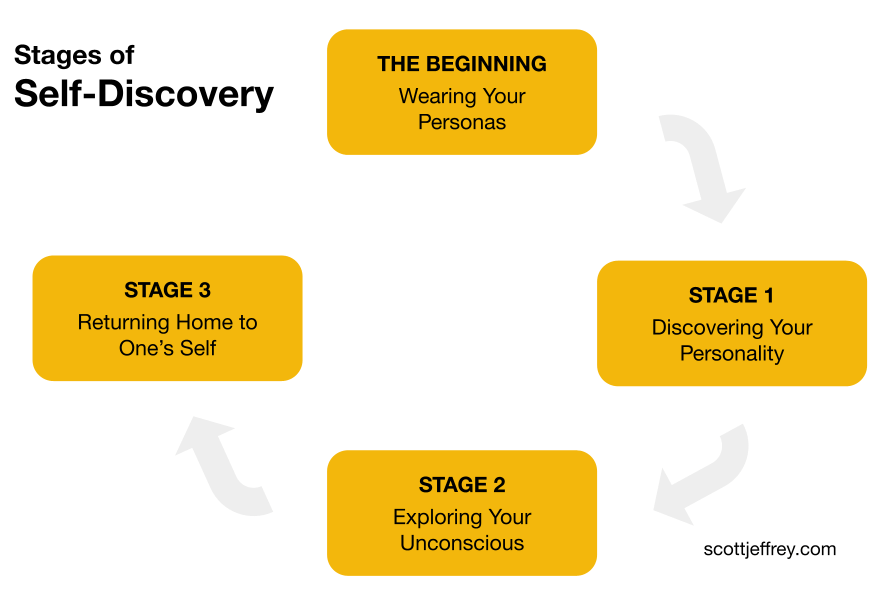
What are the 3 Stages of Self-Discovery?
The common stages of self-discovery outlined here largely mirror the stages of human development from transpersonal psychology but in a very simplified format.
Stage 1: Discovering Your Conscious Self (Personality)
Stage 2: Exploring Your Personal Unconscious (Shadow)
Stage 3: Returning Home (The Self)
First, we’ll examine each of these stages in more detail. Then, we’ll explore the self-discovery activities commonly used at each stage.
Before we dive into these three stages, let’s examine where we start: the persona.
Stage 0: Wearing Our Social Masks
In early development, we are mostly focused on adjusting to our environments and “fitting in” at home, school, and anywhere else we find ourselves.
Our identities at this stage are largely defined by “others” in a social context. That is, our identity is mostly a series of personas (social masks) designed to help us “fit in.”
When we’re in the persona stage we’re not technically in the self-discovery process yet.
We create our personae unconsciously and subconsciously. It’s the starting point from which self-discovery can be initiated.
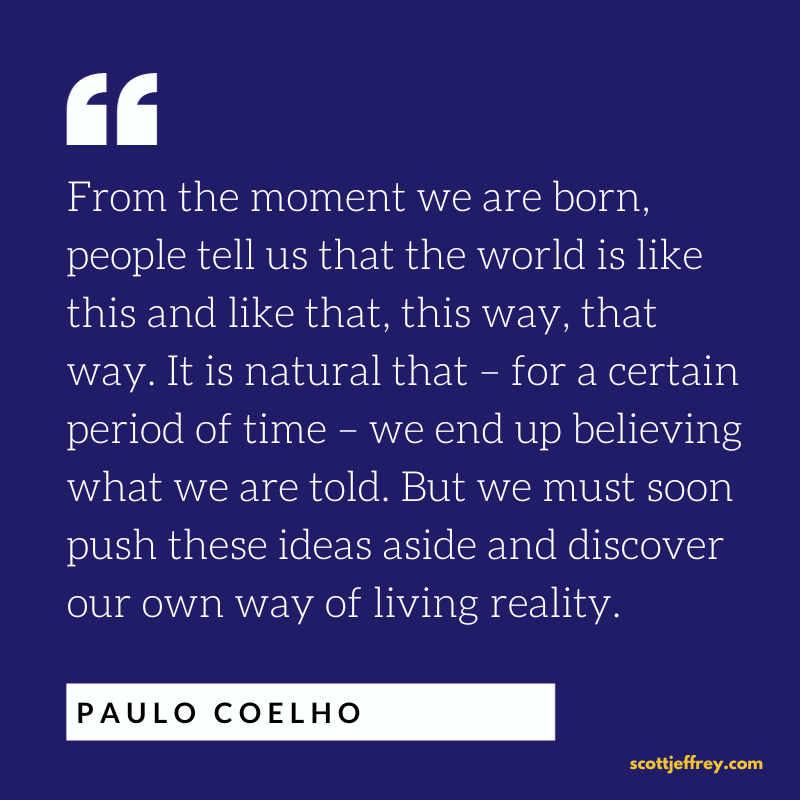
Self-Discovery Stage 1: Discovering Our Conscious Personality
Stage 1 can be a fun stage for many individuals. It’s the part of self-discovery that many people associate with the term “self-discovery journey.”
Stage 1 is marked by discovering one’s conscious personality including strengths, weaknesses, habitual patterns, drives, desires, and aspirations.
Self-discovery comes through our engagement with life. Like any good hero’s journey , life is filled with trials and tribulations. Setbacks and victories. Each experience provides a window into ourselves.
If we pay attention, we learn through our reactions and interactions with others and the world.
In this initial stage, we develop a strong curiosity about ourselves. It’s common at this stage to take a wide range of assessments.
Learning about your “personality type” is highly instructive: it highlights many of your greatest strengths and mortal weaknesses. It illuminates common behavior patterns that you may not have noticed.
You’ll discover a myriad of patterns that you spontaneously engage in without knowing why. At this stage, you’re also likely to inquire about your core values to clarify what you stand for and what’s most important to you.
You might take up journalling, and begin capturing your big life goals, dreams, and even a vision for yourself.
This stage usually goes on for many years. In fact, many individuals never move beyond this initial stage of self-discovery.
Self-Discovery Stage 2: Exploring Our Personal Unconscious
The second stage of self-discovery brings you toward your inner world where the meaning of “self-discovery” vastly changes.
Stage 2 often begins either at midlife or after a major life event that rattles you to the core. This event could be a divorce, the death of someone close to you, physical illness, or some other crisis.
Psychiatrist Carl Jung often said this inward turn should happen at midlife: after you’ve built a healthy ego in the world (career, home, family, etc.). That is, the first half of life is meant to be more externally oriented while the second half is internal.
In tribal cultures, at midlife, members of the tribe would go on extensive walkabouts or vision quests. They returned as different people, now taking up a more shamanic-type role as ritual elders of their tribe.
For us, this inward turn is more about engaging in inner work , addressing our childhood trauma, exploring our dream world, and getting to know our shadows . Here, internal observation, self-awareness , reflection, self-analysis, understanding, sensitivity, and inner honesty are required.
In stage 2 of self-discovery, we address our deep-seated internal tensions and splits within our psyche.
The self-identity that we created for ourselves in stage 1 becomes less codified and more fluid. As we move toward psychological integration, that self-identity moves further into the background.
This stage will also last many years depending on your life circumstances. For example, if you’re in midlife and still very active in the world, there may be less time available for self-reflection and inner discovery.
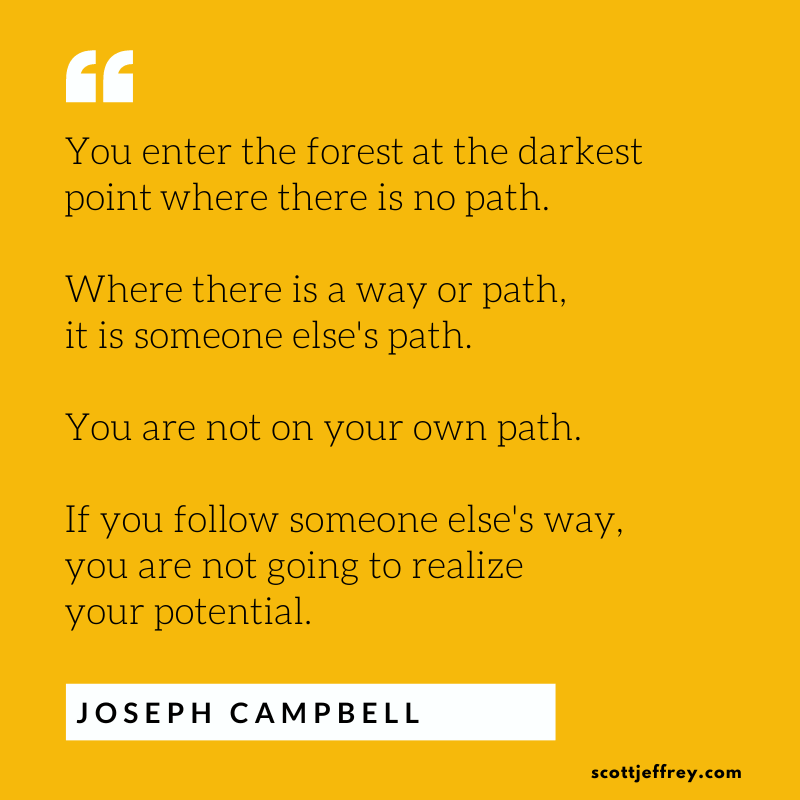
Self-Discovery Stage 3: Returning Home of the Self
In the third stage of self-discovery, an individual returns home to their Self (capital “S”).
The meaning of “self” changes greatly at this stage. The self in “self-discovery” when we set out on our path was our conscious personality. It starts to become a distant memory at this later stage.
This stage is marked by transcending an exclusive identification with the self (small “s”) and realizing one’s true Self (self-realization).
The ego we developed in the prior stages now must take a back seat so that the original Self can return.
In The Ego and the Dynamic Ground , professor of philosophy Michael Washburn called it “regression in the service of transcendence.”
This stage requires us to strip away everything we are not so that our Original Nature can take its rightful place in the Center.
In Taoist philosophy, they make a distinction between the conscious spirit and the Original Spirit.
The conscious spirit (ego or “acquired mind”) is what we develop in stage 1. This self-identity is a set of conditioning from the external world.
In contrast, the Original Spirit is our primordial Self that is unconditioned by the insanity of this world.
At this stage, the focus is on self-inquiry, self-observation, neutrality, stabilizing the mind, and moving toward inner stillness.
In transpersonal psychology, they often call this stage integration . Maslow called it self-transcendence . Jung referred to it as wholeness —the final stage of individuation .
_________________
Now, let’s review a series of self-discovery activities and exercises you might use at each stage of your personal discovery journey.
Self-Discovery Activities for Stage 1
Here are seven self-discovery activities and exercises you can use for Stage 1 of your journey:
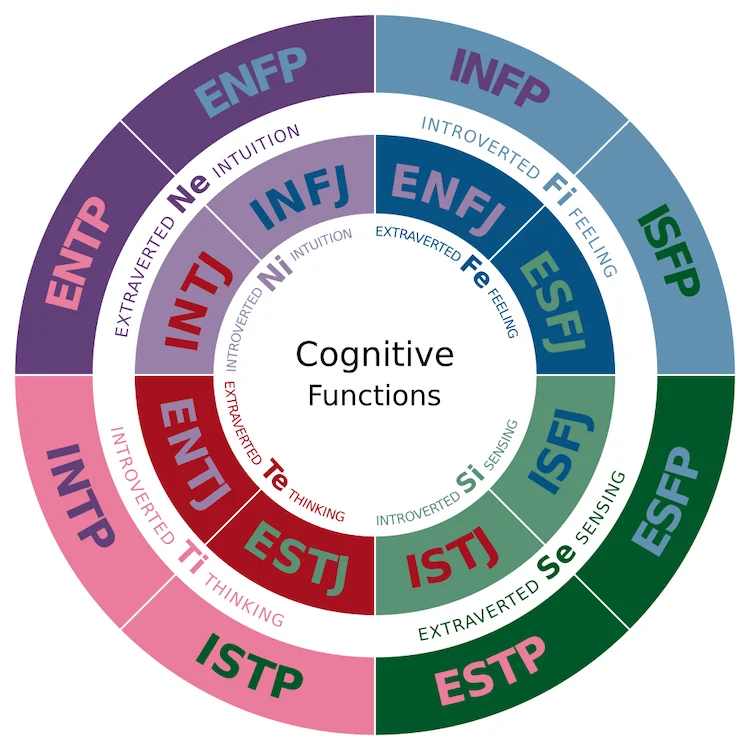
Myers-Brigg Personal Assessment (Common Self-Discovery Activity)
Personality Assessments
Personality assessments are one of the most common self-discovery activities most people use.
Any quality personality assessment will reveal different aspects of your personality. They can be very insightful—especially when you’re in the beginning stages of self-discovery. Three popular ones include:
- The Enneagram
- Human Design Engineering
- Myers-Briggs Type Indicator
(Just do a quick search. There are many paid and free versions online.)
Values Assessment
Getting to know your core values is an essential self-discovery activity. Self-aware individuals tend to know what’s most important to them. Knowing your core values helps you make better decisions.
If you don’t know your values yet, you can go through my popular 7-Step Values Assessment .
Strengths Assessment
Getting clarity on your strengths and weaknesses is another excellent self-discovery activity..
While we learn our natural strengths and weaknesses by observing our life experiences, the VIA Character Institute offers a free survey to help you determine your strengths right away.
See my guide on authentic happiness for a primer on this topic from positive psychology.
Personal Vision Casting
A personal vision can help guide you through your self-discovery journey. It helps clarify what’s most important to you.
A compelling vision can also help you remove distractions and stay focused on your long-term self-development goals.
Get step-by-step instructions on how to craft your vision statement .
Wheel of Life Assessment
As you begin to flush out who you are and what you stand for, you’ll likely determine specific goals you have for self-development. It’s important to understand that we all have multiple lines of intelligence and areas of focus.
The Wheel of Life assessment is a good coaching tool to clarify your self-development goals for different areas of your life.
Active Journaling
Journalling can be a powerful aid in this stage and the next. A journal can be used to capture your dreams, ambitions, life lessons, and insights on the written page.
Self-Development Plan
Some individuals prefer to have more structure to help them proceed with their discovery process and self-development.
Creating even just a basic self-development plan with the data you gather above can help you reduce distractions and stay focused on your long-term objectives.
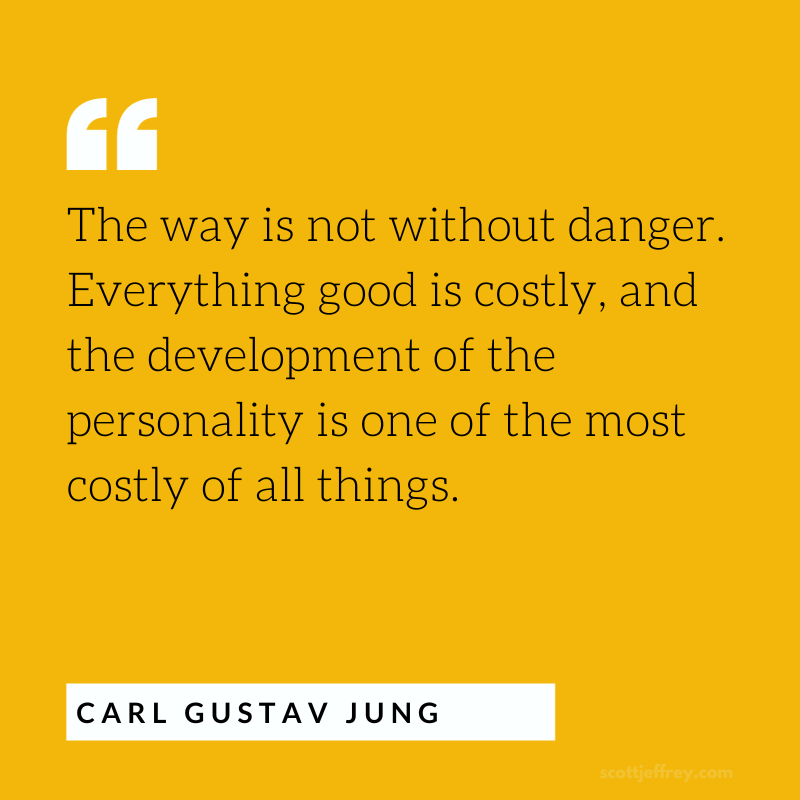
Self-Discovery Activities for Stage 2
What’s strange about Stage 2 is that it can seem like we’re going backward.
While we’re building our personalities and moving toward a vision in stage 1, in this stage, we need to take a step back and explore our past.
Getting to know our past is absolutely essential for deeper levels of self-discovery.
As such, the energetic striving we experienced in Stage 1 now gets replaced by a more self-reflective mind. We now have enough life experience behind us to observe major patterns that we couldn’t see before.
The self-discovery activities in Stage 2 different greatly from Stage 1. Overall, Stage 2 is less about tools and assessments and more about methods and exercises that support one’s inward discovery journey.
Observational Meditation
Many individuals will likely discover meditation in the first stage of their journey. However, the quality and function of meditation take on a different meaning in Stage 2.
Your journey through Stage 2 benefits from a reflective mind and a strong Inner Observer . To gain insight into one’s psyche, it helps to be able to carefully monitor one’s deepest thoughts, feelings, reactions, attitudes, moods, and impulses.
For some, developing this Inner Observer happens naturally. For others, it takes meditative training .
Shadow Work
One of the most remarkable aspects of Stage 2 is that you eventually realize that everything you built up in Stage 1 isn’t entirely accurate.
All prior personality growth and self-development were based on a sense of self (ego construct) that was never closely examined.
To function in the world in early life, we necessarily cut off and dissociate many parts of ourselves that get relegated to our personal unconscious. This creates a split in our psyche that leads to internal tension. This internal tension is the source of our moodiness, emotional instability, neurotic behaviors, and dis-ease .
Think of it like renovating an old house with lead paint. Sure you can paint over the lead with a new “eco-friendly” paint and add new furnishings, but you still have a house with lead paint.
When you reach the Inward Turn, you begin examining what’s been cut off and hidden inside of you.
Every aspect of yourself that was deemed “unacceptable” during childhood was relegated to your personal unconscious. Now, it’s time to bring the unconscious to consciousness. Shadow work becomes an indispensable self-discovery activity at this stage.
See my guide on shadow work here .
Inner Work (Active Imagination & Dream Analysis)
Getting to know your shadow is an integral part of inner work. Inner work is more of a general term for turning inward and examining aspects of one’s unconscious.
Jung used two primary methods for helping his patients harmonize the split within their psyche: dream analysis and active imagination.
Jung saw dreams as a primary means for the unconscious to speak to us—to our conscious minds. So by paying attention to our dreams, we bring to consciousness aspects of ourselves currently hidden from us.
Active imagination is another excellent self-discovery activity. It’s the process of inner dialogue with “parts” within our psyche.
The psyche is filled with a collection of semi-autonomous archetypes that constantly influence our behavior.
In the second stage of our self-discovery process, it becomes necessary to dialogue with or at least become conscious of these various subpersonalities operating within our psyche.
Trauma Release Exercises
In the course of exploring our past, we encounter numerous psychic wounds that need our attention.
Trauma plays a large role in our early development. Addressing this trauma is a necessary aspect of becoming whole.
While mental processes are useful, we also need to address the body directly where this past trauma is stored. (See Dr. Bessel van der Kolk’s The Body Keeps the Score .)
I cover the topic of trauma more deeply in this guide on repressed emotions .
There are a range of methods available to use from David Berceli’s Trauma Release Exercises (TRE) to Alexander Lowen’s Bioenergetic Analysis. All of these self-discovery activities can be highly therapeutic at this stage.
Regardless of the modalities you use for your journey, the key thing is that you release this stored trauma and build a stronger connection to your physical body. This is called body-mind integration. In No Boundary (2001), integral theorist Ken Wilber labeled it the Centaur Level .
Cultivating deeper levels of body awareness is an important, often overlooked, part of one’s journey to self-discovery and healing.
Self-Discovery Activities for Stage 3
In Stage 2, we put our house in order. The more we harmonize the opposites within us, the more internal tension we resolve. We move, slowly and patiently, from fragmentation to greater wholeness.
As this unfolds, we can hold to the Center with greater ease.
From the Center, there’s no need to strive to become anything. Even the growth need of self-actualization begins to take a back seat.
The ego we’ve developed through the first two stages doesn’t go anywhere. But a different quality emerges from the Center. One’s true Self comes forth and gently guides us.
This stage takes us beyond Western psychology and into the realm of mysticism and sagehood .
This third stage is less about self-discovery activities and more about stabilizing one’s mind. Self-inquiry and the closer examination of one’s consciousness become more than just a daily sitting practice, but a continuous way of being.
Becoming versus Being
In the first stage of self-discovery, we’re in the process of becoming . The self-discovery activities above aid us in this developmental process.
Self-development and personal growth are integral to this stage as we do our best to cultivate healthy egos that can thrive in this crazy, chaotic world.
In developing our personalities, we are, as psychologist Abraham Maslow put it, actualizing our potential .
Some of us do this through our careers and vocations. Others do it through cultivating skills and various intelligences out of personal interest.
Eventually, however, there’s a shift in quality in one’s process of self-discovery.
The drive to “become” moves into the background while a quality of beingness wants to emerge. This represents the shift inward that marks stage 2 and reaches fruition in stage 3.
Self-Discovery Through the Three Gunas
In Yogic philosophy, they have what’s called the three gunas or qualities of consciousness:
- Tamas : inertia, inactivity, darkness, and ignorance
- Rajas : activity, passion, desire, energy
- Sattva : purity, knowledge, beingness, truth
Those stuck in tamas (inertia) are unlikely to engage in their self-discovery journey. They sadly remain stuck in their personas. Self-discovery activities are likely uninteresting to them.
Stage 1 occurs when the active quality of rajas is present. Rajic energy is necessary for developing our personalities and fully engaging in life (the process of becoming).
The shift toward sattvic consciousness starts when we embrace our inner world in Stage 2. However, a sattvic state isn’t realized until we arrive home within the Self in Stage 3.
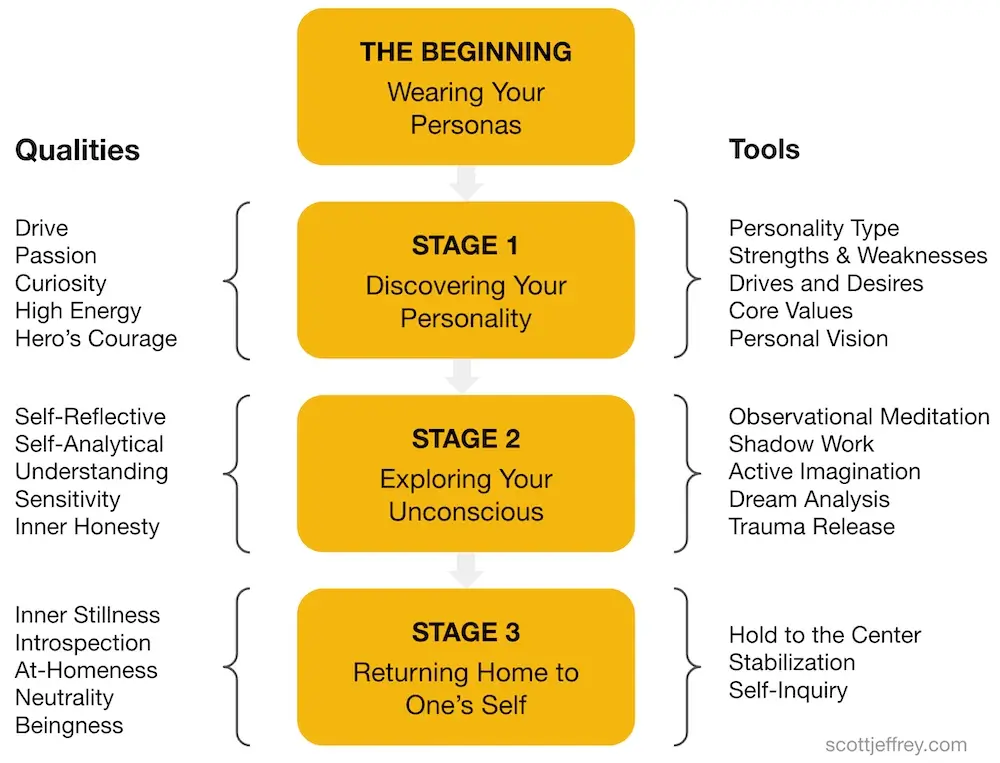
Self-Discovery Activities Roadmap
7 Factors that Hijack Self-Discovery
Keep in mind that self-discovery is a natural process. Sages often refer to it as the “play of consciousness.”
However, many common factors can potentially stall our development. Maslow called this aborted self-actualization . When this occurs, the self-discovery activities we highlighted above either don’t come into play or they hold no meaning.
Let’s take a look at some internal and external factors:
Internal Factors That Can Hinder Self-Discovery
Numerous potential internal hurdles can stall self-discovery. When this occurs, one does not fully engage in self-discovery activities
Here are four potential hurdles:
Early Childhood Trauma
This is probably the most common culprit. A series of psychic scars in early childhood cause various shadow archetypes to take the helm in our conscious mind.
Childhood trauma leads to neurosis like anxiety and depression. Under these conditions, the discovery and awakening process may be thwarted. Instead, life becomes an endless struggle to meet their basic human needs and/or the pursuit of fleeting pleasures.
Trauma often triggers the puer aeternus archetype (eternal child), leading to the Peter Pan syndrome.
However, once brought to consciousness, trauma can be a catalyst for engaging in self-discovery activities.
A Fixed Mindset
Psychologist Carol Dweck’s decades of research presented in her bestseller Mindset (2007) reveals that a fixed mindset, conditioned into us in childhood, can have lasting consequences if not addressed in adulthood.
With a fixed mindset, individuals fear growth and have fundamental blocks to learning in adolescence and adulthood. In contrast, with a growth mindset , one naturally engages in self-discovery activities.
Misaligned Values of Society
The unspoken values of society include image, attractiveness, wealth, material possessions, competition, and “success.” When these are one’s ideal standards, it leads to neurotic behaviors and excessiveness (a feeling of never having enough).
In fact, many people engage in self-discovery activities when they realize how empty these societal values truly are.
As J. Krishnamurti said in Commentaries on Living :
Is society healthy, that an individual should return to it? Has not society itself helped to make the individual unhealthy? Of course, the unhealthy must be made healthy, that goes without saying; but why should the individual adjust himself to an unhealthy society? If he is healthy, he will not be a part of it. Without first questioning the health of society, what is the good of helping misfits to conform to society?
This is why it’s vital to discover your personal values . Your values will naturally help guide you toward self-discovery instead of “following the pack.”
A Strong Drive for Comfort
We all like being comfortable, but for various reasons (two of which are listed above), many individuals avoid risk while clinging to comfort. They have an unhealthy drive for safety and aversion toward growth—the exact opposite of self-actualizing individuals .
An excessive drive for comfort often degrades into addictive tendencies that result in a downward spiral. Endless distractions replace the natural drive for self-discovery activities.
External Factors That Can Hinder Self-Discovery
Here are three common external factors that cause us to withdraw from self-discovery activities:
Financial Restraints
We all have basic human needs and when we have difficulty meeting these needs, it creates a great deal of tension.
For example, how are you supposed to invest energy and attention into learning about your personality, when you’re worried about paying rent next month?
You don’t need to be affluent to pursue self-discovery, but it does help to have your “house” in order first. You just need an internal space for psychological safety where you are calm enough to pursue self-discovery activities.
An Unsafe Environment
Humanistic psychologist Carl Rogers points out in On Becoming a Person (1995) that psychological safety in our environment is an important condition for creativity and the development of positive mental health.
This lack of psychological safety can be due to an abusive relationship, socio-economic conditions, or some other factor. These days, just turn on the news: external psychological safety seems to be in short supply.
A Disempowering Peer Group
Being surrounded by destructive individuals or people with mental illness (including narcissism) can make it challenging to pursue self-development. Your peer group can act like “crabs in a bucket,” pulling you down if you try to get out.
This external factor is more of a concern at the early stages of discovery when you’re first building momentum.
When individuals first engage in self-discovery activities, for example, they often search for other like-minded individuals. Others, at least for some time, go it alone.
Self-Discovery: A Pathless Path
Ultimately, the path you take to self-discovery will be unique to you.
The above stages and self-discovery activities are mere guidelines, designed to capture the essence of the journey home.
Remember, too, that it’s normal to slide off your path at times and to experience major setbacks along the way. Tests, trials, and tribulations are a part of the journey.
As Jung often pointed out, the way is not without its dangers. As soon as you leave the conventional, ordinary world and enter the “special world,” you’re on your own. While this can be terrifying, it can also be liberating.
It’s only when you step back and view this self-discovery process from a 10,000-foot view that you can fully appreciate the play of consciousness expressing itself through a myriad of forms representing all of us. What a peculiar thing.
Travel safely. Or don’t.
Either way, stay alert.
Peak Experiences: A Comprehensive Guide
The Four Stages of Learning Any Skill
A Practical Guide to Joseph Campbell and the Hero’s Journey
Duality and Nonduality Explained: Insights from the Nondualists
About the Author
Scott Jeffrey is the founder of CEOsage, a self-leadership resource publishing in-depth guides read by millions of self-actualizing individuals. He writes about self-development, practical psychology, Eastern philosophy, and integrated practices. For 25 years, Scott was a business coach to high-performing entrepreneurs, CEOs, and best-selling authors. He's the author of four books including Creativity Revealed .
Learn more >
Great Information! Thank YOU! BARB!
You’re most welcome, Barb.
Return to hOMe. Be Blessed.
Guía extensa, pero iluminadora. En mi caso, es un excelente enrutador, ya que me aclara situaciones que me agobian y me hacen detenerme sin rumbo definido. Esta guía me hace reflexionar y decidir qué camino debo seguir. Gracias Scott por tu valioso apoyo.
Sure thing, William.
Returning to Home and Self! The path is not without danger and suffering but it will be liberating. And I know I can do it.
Travel safety or not. Either way stay alert.
Thanks Scott a lot! Your writings and wisdom is making a lots of difference in the world, at least in my world.
Thank you for the feedback, Niimka.
Great to hear that the material is making a difference for you.
I have a a clarification regarding the content of this article , however, I might reference other articles on which my thought process is based. Please bear with me, as I try to make clearer sense of the “Sage Stage”.
In my view and based on experience/inner work it seems relevant to me to see three types of consciousness. Namely, Superconscious, Conscious, Subconscious, Unconscious.
In this article does the Sage stage refer to the “Consciousness arising from a leaning towards a Superconscious influence on an individual or is it coming from an archetypal “Sage” arising from the Subconscious/Unconscious?
I perceive inner work more aligning with Superconscious/Inner Guidance rather than Archetypal/SubConscious/Unconscious.
To seems to me, Spirit can interact with Soul-Ego(Human) only from a place of SuperConscious.
Please let me know how you perceive our internal construction that navigates self-discovery in relation to evolving consciousness? Thank you!
Personally, I don’t use terminology like “superconscious.” But I also don’t perceive that third stage in terms of a “Sage Stage.” I referenced “sagehood” as it links to the Sage archetype guide that’s relevant here. From a purely Jungian perspective, that’s accurate.
However, I’m not Jungian. To me, the Spirit isn’t an archetypal image as it is to Jungians.
“Returning home” doesn’t involve images. Navigating through images is the defining characteristic of Stage 2.
“Please let me know how you perceive our internal construction that navigates self-discovery in relation to evolving consciousness?”
So this is probably what may be different in our understanding. The transpersonal literature speaks about “evolving consciousness,” but wholeheartedly don’t agree with this. Sure, there’s the development of the ego. That’s why there are stages. But the “Return Home” is not evolutionary or developmental; it’s a function of stripping away what the Taoists call “mundane conditioning” to return what was there all along (hence, the “Original Spirit” or “Original Nature”).
Bringing order to the psyche (Stage 2) helps reduce mental illness. With less mental illness, there’s less neurosis. With less neurosis, the mind is more still. When the mind is still, one can be. If one can “just be” long enough, one’s energy stabilizes. As one’s energy stabilizes, the Spirit returns.
In this way, Stage 3 is more “alchemical” — not evolutionary or developmental.
Yes, I can now see the difference in views.
I had a very unique and personal experience in getting to come to know about the work of Sri Aurobindo. Although I am Indian, I did not know anything about him at all and his work on human evolution. It was through a personal sequence of synchronistic events in the last few years that were totally unexplainable that I came to know of him. In exploring his work I found a deep connection with my own personal “evolution of consciousness” making sense. The way he describes the process of moving from ego-centric mind to a higher mind has been very resonant with me at a personal level.
It fits accurately even within what you refer to as “sagehood”.
Because my personal experience is very valuable to me, I might like to perceive it as my consciousness is continuously evolving. Offers me the necessary motivation to stay on track even though inner work is hard.
Thank you for the clarifications.
It seems that the process on inner work being so non-linear in nature adequately covers the areas of de-conditioning and addressing neurosis as long as I stay dedicated to the discipline needed for inner work. It seems like the end is similar but being addressed in different ways.
To clarify, I did not suggest that “inner work” is non-linear. Sure, the psyche can be messy, and establishing order doesn’t necessarily follow a step-by-step process. Stage 2 of the self-discovery process is where inner work takes place. Stage 3 is more about contemplative practices that enable stabilization.
“The way he describes the process of moving from ego-centric mind to a higher mind has been very resonant with me at a personal level.”
Sure. But what I’m saying is that it’s incorrect to call this “evolution.” It’s the wrong word.
In the way I view inner work, I am considering messy and non-linear to be similar. In my mind it is similar to “not a step-by-step process”. I used the word non-linear to imply not in a straight line, sometimes straight, other times with repeats and new situations to navigate and explore…I see this as the “messy psyche” I am trying to “order” at some level.
The Indian word “Sadhana” that seems to align with Spiritual Contemplative practice to me is really what is most useful to me (as I have mentioned before I have a strong inclination towards spiritual contemplation). It could be different from other contemplative practices so sure. What is achievable through Sadhana is difficult for me to put into a few words. It is a state of being to which stabilization is definitely arriving. Also I’m over-simplifying everything here just to be concise.
The use of the word evolution is present in his literature aligning with a progressive movement. I think “awakening” applies here too. Is there a better word to describe the process?
“The Indian word “Sadhana” that seems to align with Spiritual Contemplative practice to me is really what is most useful to me”
Yes, Sadhana is the pathway of Stage 3.
“What is achievable through Sadhana is difficult for me to put into a few words. It is a state of being to which stabilization is definitely arriving.”
In the Indian tradition, especially the nondual schools, the focus is primarily on a transformation of consciousness — transcending the identification with the body-mind organism and moving beyond the “I am” (primary Maya). In the Taoist tradition, especially the Southern Reality School, the emphasis is on the stabilization of the energy within the body first. Then, they move to a transformation of consciousness.
“The use of the word evolution is present in his literature aligning with a progressive movement. I think “awakening” applies here too. Is there a better word to describe the process?”
Transformation and development both work.
Thank you for your time to clarify my questions and comments. It is very much appreciated.
Is the practice that is proposed by Jung for working with the unconscious mind “Active Imagination” suitable for all individuals?
The reason I ask is that some people have a predisposition towards “fantasy thinking” that utilizes imagination actively (not is terms of Jungian Active Imagination).
What I mean by fantasy thinking could be divided into two kinds, what I refer to as “Magical thinking, that goes like : I wish things would magically happen” or “Wishful thinking which is a active conscious thought process involving romanticizing reality, looking at life through rose-colored glasses or in some cases even dark fantasy that involves getting back at someone for wrong doing (even if it be in the realm of thought). The first two is something I seem to indulge in more easily. But I know people around me who indulge in (dark fantasy/more violent type) the later frequently. What I have described in this paragraph is a conscious active mental process.
I would say that based on knowing and studying myself as well as studying and observing others, some types (Enneagram in particular) have a greater predisposition towards fantasy thinking.
In fact I could even say that some “guided visualizations” that take people on mental journeys fall into a form of fantasy thinking process, that are more unproductive than useful. I find such guided visualizations very ungrounding and airy experiences. Please correct me if I wrong.
Makes me wonder if this is why hypnosis that takes a creative-imagination driven format with its practical applications works well only for some people.
Since active imagination is a way to tap into the unconscious would a person prone to fantasy thinking feel more ungrounded by engaging in it, without a clear sense of whether they have shifted into pointless imaginations or real useful work with their unconscious “parts”?
Is there a grounding practice that accompanies active imagination would support an individual to stay on track with “active imagination” vs. getting lost in imaginary conversations with parts (that they might be accustomed to given their fantasy-driven tendencies) that might produce useful, meaningful and desired results that tap into their psyche?
I hope my questions and background I have provided is clear enough.
Thank you for your time and consideration.
“In fact I could even say that some “guided visualizations” that take people on mental journeys fall into a form of fantasy thinking process, that are more unproductive than useful. I find such guided visualizations very ungrounding and airy experiences. Please correct me if I’m wrong.”
Yes, I generally discourage guided visualizations, despite how popular they are. Guided instructions can be useful as a learning aid, but guided visualizations serve little value in my experience.
“Since active imagination is a way to tap into the unconscious would a person prone to fantasy thinking feel more ungrounded by engaging in it, without a clear sense of whether they have shifted into pointless imaginations or real useful work with their unconscious “parts”?”
Not necessarily. Someone prone to fantasy may find active imagination very instructive as it can add a useful structure to their fantasies.
“Is there a grounding practice that accompanies active imagination would support an individual to stay on track with “active imagination” vs. getting lost in imaginary conversations with parts (that they might be accustomed to given their fantasy-driven tendencies) that might produce useful, meaningful and desired results that tap into their psyche?”
Yes. See these two guides: https://scottjeffrey.com/how-to-ground-yourself/ https://scottjeffrey.com/center-yourself/
Hi Scott, I’ve been considering the statement you mention “Not necessarily. Someone prone to fantasy may find active imagination very instructive as it can add a useful structure to their fantasies.” As someone who has not benefited in anyway in indulging in fantasy, I have not been able to use many of the practices that have been outlined by Jung. I don’t mean to dismiss or disqualify the validity and use of the practices…it might be extremely useful for certain individuals. I think I am very driven to focus on reality as it occurs and then try to connect it to fields of study. There is a neat distinction made by John Vervaeke (he may not be the originator), between “imagination” and “imaginal”. A website definition of this distinction goes as follows … Here it is important to differentiate between the imaginary (fantasy) and the imaginal, with the latter being seen as a crucial bridge between subjective and objective experience, as well as between perceptual and conceptual domains.” … It seems to me that Inner Work aligns well with “Imaginal” rather than “Imagination”. Personally, inner work continues to breakdown the hold of fantasy in my life…which continues to make inner work very useful. Thank you for giving me the opportunity to think through this via this discussion.
To clarify, inner work and active imagination are not about engaging in fantasy as such. What you’re doing is actively engaging in dialogue with semi-autonomous subpersonalities within the psyche. There’s no need to get hung up on definitions of “imagination.” You don’t have to “imagine” these inner voices. They are already there. It’s just a matter of whether or not you tune into them.
Also to clarify, inner work is not the same thing as sadhana. With inner work, you engage with the images in the psyche. With sadhana, you don’t. That is, Eastern practices are focused on going beyond the images (because, as you observed, focusing on the images can lead to fantasy — i.e. delusion).
The integral movement (including transpersonal psychology) places inner work practices at a lower stage as it relates more specifically to the personality and contemplative practices (sadhana) at a higher stage of development. Overall, I would agree with this structure.
Thank you for the clarifications Scott.
It definitely sounds more honest to tune into inner voices. I can relate to that. I don’t think I make a clear distinction for myself about the stages of development. I tend to use a broad term as “Inner Work” that is simply ongoing, placing awareness onto various aspects of my life.
I don’t even have any specific affiliation with people who call themselves “integral” or “transpersonal psychologists”. When something resonates and seems to match something in my reality it offers a little more clarity. Thank you for sharing your time and guidance with me.
Sure thing, Roopa. I also don’t have any affiliations with these various groups. I mentioned integral here in this context because before this “fifth wave of psychology” there wasn’t really a language or understanding to differentiate these different schools of thought — both East and West — and the levels of development they represent. And without this differentiation, there tends to be a lot of internal confusion. This type of differentiation itself is a function of developing cognitive consciousness.
Scott, your portrait shows you becoming more distinguished, retaining the handsomeness.
Forgive me if I seem to be repeating what you have said. I think writing it down helps me understand.
“Stage 1: Discovering Your Conscious Self (Personality)”.
Is this how people see you? Is this the unconscious that acts in your conscious? Is this the personality enneagram types and are they archetypes?
So far, I’ve asked about the persona as an unconscious part. Is it possible for our persona to be consciously developed? As a boy I emulated my father, then later years became an image (perhaps the persona mask). Can I say that I made my image and is this my archetype making me believe it’s me? What archetype I don’t know, you might have an idea which it is? Thank-you.
How people see you is a function of numerous factors that don’t necessarily align with Stage 1.
Yes, the Enneagram types are ultimately expressions of archetypes as I explain here: https://scottjeffrey.com/archetypes-list/
“Can I say that I made my image and is this my archetype making me believe it’s me?”
Not really. No. The psyche is a collection of archetypes — not just one. And there are a host of factors involved here.
Also, you don’t really consciously develop your persona. It’s more of a reaction to your environment.
That said, we all do learn by observing the behavior of those around us — especially those we project onto like parents and other authority figures.
My understanding of the persona; is an Image we relate to others. Do you think we would rather be our true personality to others?
I think the persona is not far off compared with our personality. As you can see from this quote”The list shows how likely it is that you are each enneagram type.
Most people will be the type at the top of the list, however, your actual personality type might be somewhat lower in it (usually it’s in the top 3).
This is from an enneagram test, which tells my we are not willing to show our true personality. Don’t you think we would be more contented with ourselves if we were able to incorporate the persona with personality? Thank-you.
The social mask is something that’s subconsciously created as a response to one’s environment. It’s a reaction.
One’s true personality is not known until the individual builds consciousness via processes like shadow work. Until then, they are divorced from many qualities about themselves (positive and negative) and engaged in self-deception. The goal of individuation is to bring the individual to a sense of wholeness.
The persona falls away during this process.
Thank-you Scott for your patient reply. However, from the quote on the enneagram test “Most people will be the type at the top of the list, however, your actual personality type might be somewhat lower in it (usually it’s in the top 3)” and your comment quote “One’s true personality is not known until the individual builds consciousness via processes like shadow work”.
There seems to be a conflict, are you suggesting the enneagram test people are wrong?
Perhaps there is not a conflict, I may be seeing the comments in a black and white perspective. I would like you to detail both quotes for me. Thank-you.
There’s no conflict here. The Enneagram is a typing system. Like any personality typing system, it can only highlight general predispositions of particular “types.” If you read any good book on the Enneagram, for example, you’ll resonate with many of the type descriptions. That’s why many individuals have difficulty zeroing in on their type. Their singular type represents a “center of gravity” — it’s not codifying who they are. Plus, there are nine levels of development for each type — from least healthy (9) to healthiest (1). Most people are in the mid to lower range (unhealthy to average mental health). Finally, as you develop your personality through inner work, you actually move toward a different type in the Enneagram (“path of integration”). Ultimately, the more one moves toward individuation the less any of these types become relevant. That’s part of the reason Jung didn’t approve of Myers-Briggs (MBTI). In his view, it missed the point of what psychological types represent.
Ilike the expression you used “center of gravity”. You have answered where the enneagram fits in to the individuation process. It does seem useful to consciously stay in your enneagram type. Thank-you. Perhaps you might elaborate on the phrase “center of gravity” …
“Center of gravity” is a term used in the developmental literature. There are all kinds of developmental stage models, including the Enneagram’s 9 levels, Loevinger’s ego development, Erikson’s psychosocial development, spiral dynamics integral, Maslow’s needs, etc. It’s a mistake to pigeonhole someone at a certain stage of any model. It’s more accurate to say that a person’s “center of gravity” is at a particular stage as it reflects the reality that we are complex beings with many parts. For example, with spiral dynamics, a person’s center of gravity value structure may be “green” (sensitive self) but that doesn’t mean they don’t they don’t also express orange (achievement) and blue (right-wrong morality) under different conditions.
Session expired
Please log in again. The login page will open in a new tab. After logging in you can close it and return to this page.
Daring Leadership Institute: a groundbreaking partnership that amplifies Brené Brown's empirically based, courage-building curriculum with BetterUp’s human transformation platform.

What is Coaching?
Types of Coaching
Discover your perfect match : Take our 5-minute assessment and let us pair you with one of our top Coaches tailored just for you.
Find your coach
-1.png)
We're on a mission to help everyone live with clarity, purpose, and passion.
Join us and create impactful change.
Read the buzz about BetterUp.
Meet the leadership that's passionate about empowering your workforce.

For Business
For Individuals

Are you reaching your full potential? A guide to personal development

Jump to section
What is personal development?
5 areas of personal development, the benefits of personal development, 6 steps to developing a personal development plan, how personalized development can help.
I’m no stranger to feeling stuck. There are days I wake up and just go through the daily motions. I make coffee then sit down at my computer for a day of work. I’ll usually work out, walk the dogs, make dinner. Then, read, watch a show, go to bed. The next day? Wake up and do it all over again.
Especially at the height of the pandemic, it started to feel like vicious monotony. Our lives seemingly stalled in bumper-to-bumper traffic. It feels like dreams, goals, and ambitions are buried in thick molasses or honey at the back of our brains. And even as we navigate this new normal , that “stuck” feeling might be stuck with us.
The good news? You’re not alone — and personal development is here to help.
I embarked on an intentional personal development journey well before I knew what it meant. I knew I wanted to see personal growth — and had reached a point in my life where I needed real change .
At BetterUp, personal development comes to life in what we call an Inner Work® practice . Inner Work® is deep work , a practice that isn’t always visible to the outside eye. But with the right personal development toolkit, you can build a lifelong practice of Inner Work® .
My own personal growth journey has seen its series of ups and downs, failures and successes. Any personal development journey is a lifelong commitment, not a sprint or achievable task. It will weather bumps and roadblocks but it can also thrive in other areas of your life.
If you’re looking for ways to up your personal development game, we’re here to help.
It’s certainly not as easy as it sounds. Every person is unique. So, it only makes sense that personal development will look different for everyone. But what does it actually mean?
Personal development is looking inward and focusing on ways to better yourself. Personal development increases your self-awareness, your self-esteem, increases your skills, and fulfills your aspirations.
At BetterUp, we’re big believers in the practice of Inner Work®. In many ways, personal development is a form of Inner Work® . It is the act of looking inward to achieve a purpose or result, especially in the pursuit of clarity, purpose, and passion in life.
Personal development is much larger than just career development or self-development. It encompasses all aspects of your life where you’d like to see personal growth — and it doesn’t discriminate on where it shows up for you.
When it comes to personal development, it’s hard to not reference Maslow’s hierarchy of needs. According to Maslow, your basic needs need to be fulfilled in order to reach your fullest potential. In other words. To reach self-actualization means we’re reaching the highest levels of self-awareness , self-confidence , personal growth, and self-realization.
Much like Maslow’s hierarchy of needs, we see five different areas of personal development. Different personal development goals can fall into different categories.
Mental
Exercising your brain and staying mentally fit is critical to personal development. At BetterUp, this comes to life in a few ways: coaching, learning opportunities , and career growth. For example, right now, I’m taking a creative writing course to help keep my mental creative muscles going strong. (And BetterUp foots the bill as part of our learning stipend.)
Mental development can be anything from workshops, training sessions , or even just rest. Rest is just as (if not more) important than mental exercise. And as your mental fitness improves , so does your resiliency, innovation, and self-awareness.
Social
Social connections and relationships are also a must-have for any personal development. After all, self-improvement is not a solitary pursuit. Humans are social creatures — we need that connection to learn and grow. And from social connections, we gain important skills. Like communication skills , problem-solving, relationship-building, and the ability to receive (and give) feedback. We also learn from those around us and their experiences.
Spiritual
Personal growth and development — whether you’re religious or not — can come through in spirituality. It’s important to recognize that religion and spirituality are not synonymous. In fact, far from it.
Spirituality means you’re investing in a deeper understanding of your own self in the world around you. It helps you get to know yourself and uncover your values. And in the context of Inner Work®, the spiritual personal development tool can bring greater awareness to self and change.

Emotional
Emotional personal development often goes hand-in-hand with emotional intelligence . At its simplest, emotional intelligence is the ability to understand feelings. Beyond feelings, it’s understanding how those feelings shape our thoughts and actions.
Any number of experiences lends itself to emotional personal development. And those experiences can help you in your pursuit of self-improvement. Take your own Inner Work® journey so far. What experiences have shaped you into who you are today? When you reflect on your journey, what have you learned?
If you’re looking back at your journey and identifying the growth, it’s likely you’ve fostered a sense of emotional development along the way. This requires emotional intelligence to understand what role your feelings and thoughts played.
Physical
A healthy body nourishes a healthy mind. There’s an intrinsic link between your physical, mental, and emotional well-being.
This aspect of personal development is focused on physical health — like nutrition, sleep, exercise, and movement. When your physical self is nourished, it’s likely your mind is also reaping those benefits. Consider ways you can build this area of personal development and take note of how your body and your mind feel.
There are plenty of benefits to personal development. Personal growth isn’t easy but the benefits will make the journey worthwhile.
My friend at Google has worked with a BetterUp coach for the last year. In her own personal development journey, she's shared why working with a coach has transformed her personal growth journey.
"My experience with BetterUp has transcended the professional workplace. My coach knows me on a personal level, which allows for her to help me set boundaries, manage expectations, and receive feedback. Ultimately, it's helped me reach my biggest goal of having a work-life balance." A Google employee, BetterUp Member
- Increased self-awareness and self-esteem. Personal growth requires looking inward at your own thoughts, feelings, habits, and reactions. It requires attentiveness — and awareness — to who you are as a person in a present state. But it also challenges you to look to the future to where you want to go. By investing in yourself, you’re increasing your self-awareness and by default, self-esteem .
- Increased mental fitness. Becoming mentally fit requires work. And many aspects of personal development aid in building strong mental fitness. With increased mental fitness, you’ll see a ripple effect of positive benefits. We’ve gathered data around the impact of mental fitness . People with strong mental fitness are more productive, are less likely to experience mental illness, and are more creative and innovative.
- Greater resilience. With personal development, you gain greater resilience . This is another positive symptom of strong mental fitness, too. Investing in your personal growth means investing in your ability to bounce back after rough patches.
- More knowledge and learned skills. Oftentimes, personal development comes with more knowledge and learned skills. This can come to life in different ways. For example, you may take courses in digital marketing that help you gain the skills you need to further your career development. Or, you may sign up for art or pottery classes, which help you gain skills in entirely different areas of your life.
- Improved personal and professional relationships. Another personal development benefit is improved personal and professional relationships . This is an area that flourishes when you invest in your personal growth, especially in emotional and social aspects.

11 personal development skills to work on
If you’re not sure where to start, consider working with a coach . Personalized coaching can help serve as your guide while you’re building your roadmap to self-actualization.
Your coach will work one-on-one with you to help identify key skills to work on catered to your own experience. You can start by taking the Whole Person Assessment to help assess where your strengths and areas of opportunity lie.
We’ve identified some common areas of self-improvement and personal development you may consider investing in:
- Communication and interpersonal skills
- Problem-solving
- Cognitive agility and adaptability
- Self-compassion, self-care , and self-reflection
- Conflict and conflict resolution
- Navigating change and uncertainty
- Future-mindedness
- Organizational skills
- Growth mindset
- Teamwork and collaboration
- Self-awareness
Like any other goal, it’s important to put together a plan. By assembling your personal development plan with some structure, you’re more likely to achieve your goals.
1. Identify areas where you’d like to improve
This first step will likely require some Inner Work®. Take a minute to reflect on where you are right now. What are your strengths? In what areas do you want to focus? What growth and development do you want to see in yourself?
If you’ve taken the Whole Person Assessment, this can help as a useful tool. Once you’ve reflected on your personal goals , identify the areas where you’d like to improve .
2. Work with a coach or mentor to assemble a plan
Even if it's your own personal development plan, you don’t have to do it alone. Lean on support systems — like life coaches or mentors — to help frame a plan. With the right structure in place (and feedback along the way), you’ll be better equipped to put the plan into action.
3. Structure your personal development goals
Stick to a routine — and build consistency. Start to examine your day-to-day and try to find ways to either build habits or stack new habits onto existing ones.
In this last year, I wanted to build strength training into my fitness routine. The kicker? I never use weights. I decided to put a yoga mat with weights next to my running shoes. Every time I go for a run, I have to think about those weights sitting next to my shoes. It helps to remind myself to do a quick 5-minute exercise with some dumbbells.

4. Find an accountability buddy
Sometimes, having someone holding you accountable makes all the difference. If you and a friend are both setting intentions and goals, consider ways you can support one another.
Every new hire at BetterUp gets a stack of great books during the onboarding process. My teammate reached out today to see if we could create an accountability plan . We’re each holding each other to 100 pages of reading a week.
5. Be honest and aware of your progress
Your personal development plan requires integrity. Be honest with yourself about your growth and progress. This also requires a level of self-awareness. You can also gather feedback from friends, family, and colleagues to help gather insight on how you’re progressing in your goals, too.
6. Factor personal development into your mental fitness plan
How does personal development factor into your mental fitness plan? Consider ways you can work with your coach on building aspects of personal development into your overall mental fitness.
Personal development is just that: it’s personal.
Every human is different. If our society cracked the nut on personal development, every self-help book would help everyone. Or every learning process would benefit every student.
But we know from our life experiences that there’s no “one-size-fits-all” solution to anything when it comes to human nature.
It’s important to lean on personalized support like coaching to help craft a catered plan that works for you. You won’t have the same needs, strengths, opportunities, and skills as your neighbor. So why would your personal development plan be the same?
Push yourself outside of your comfort zone. By doing so, you'll be on the path to reaching your full potential .
While self-actualization and Inner Work® is a lifelong process, your personal development goals shouldn't be daunting. Start small — like building a new skill or even investing in work-life balance . By doing so, you'll set yourself up for success in all areas of your life.
If you're ready to make a change to improve the quality of your life, consider how personal and professional development coaching can help. With help from BetterUp, you can awaken your full potential .
Understand Yourself Better:
Big 5 Personality Test
Madeline Miles
Madeline is a writer, communicator, and storyteller who is passionate about using words to help drive positive change. She holds a bachelor's in English Creative Writing and Communication Studies and lives in Denver, Colorado. In her spare time, she's usually somewhere outside (preferably in the mountains) — and enjoys poetry and fiction.
Why you need a self-care plan (and 5 ways to get started)
Why self-management is key to success and how to improve yours, own your personal development: self-improvement goals that motivate, be your own hero: 6 tips to increase willpower, what is emotional intelligence and why is it important, 4 ways to improve emotional intelligence within your team, wondering what you're good at here are 10 ways to figure it out, what self-love truly means and ways to cultivate it, what sports psychology can teach us about mental fitness, what do you do if you hate your job try these 9 tactics, how self-efficacy can boost your personal success, shift your core beliefs to unlock your full potential, how to develop a personal development plan (pdp) to reach your goals, reaching your full potential isn't out of reach: 10 tips to get moving, 20 books for personal growth in 2024, reinventing yourself: 10 ways to realize your full potential, using mindset coaching for lasting personal growth, stay connected with betterup, get our newsletter, event invites, plus product insights and research..
3100 E 5th Street, Suite 350 Austin, TX 78702
- Platform overview
- Integrations
- Powered by AI
- BetterUp Lead™
- BetterUp Manage™
- BetterUp Care®
- Sales Performance
- Diversity & Inclusion
- Case studies
- ROI of BetterUp
- What is coaching?
- About Coaching
- Find your Coach
- Career Coaching
- Communication Coaching
- Personal Coaching
- News and Press
- Leadership Team
- Become a BetterUp Coach
- BetterUp Briefing
- Center for Purpose & Performance
- Leadership Training
- Business Coaching
- Contact Support
- Contact Sales
- Privacy Policy
- Acceptable Use Policy
- Trust & Security
- Cookie Preferences
How to Start Your Journey of Personal Development
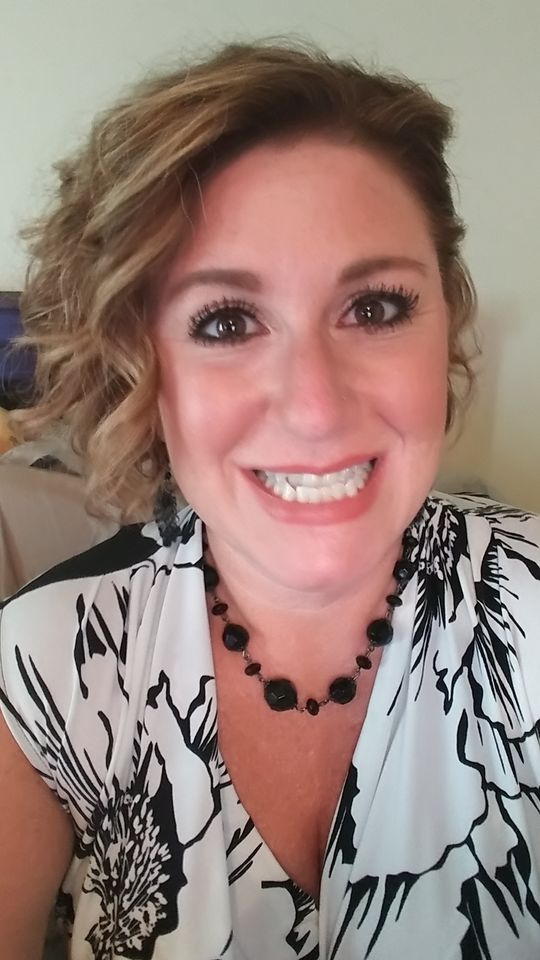
Michelle Breitstein
No matter where you are in life, you’ll find that you have almost limitless potential. People can achieve pretty much anything they put their mind to, and you’re certainly no exception. The real trick is figuring out how to change your mindset and learn to maximize that potential. That’s what self-improvement is really all about. It’s about growing becoming the person you always had the potential to be. To achieve the life you’ve always wanted, you have to be willing to change, adapt, and never stop growing. Personal improvement is a lifelong journey, but like any journey, it starts with a few key first steps. Not sure where to start? Here are some tips to set you on the path to your own personal development.
Start with a Blank Slate
Every building needs a foundation, and every personal development journey needs to start with a blank slate. What does this mean? It means taking an honest and open look at yourself, recognizing your flaws and failures, and releasing them. Everything that you’ve done so far has been in the past. For you to improve yourself and take those steps forward, you have to look to the future. As you work on your personal development, your mindset and the way you look at the world are going to change. You need to wipe your slate clean and think of yourself as a blank canvas so you can truly move forward with your life.
Change Your Mindset
There’s a theory that says every person in the world can be put into two categories: those with a fixed mindset, and those with a growth mindset. If you have a fixed mindset, that means your image of yourself and your skills is static. People with this kind of mindset feels like their skills and abilities are innate and they should just focus on what they’re already good at. This can be very comforting! However, it’s not really conducive to personal development. What you want is a growth mindset. People with this mindset are eager to grow and expand their knowledge while developing new and better skillsets. You’re capable of so much more than you might think, and accepting a growth mindset is the best place to start.
Step Outside Your Comfort Zone
Once you’ve accepted your growth mindset, it’s time to say goodbye to your comfort zone. It’s important to keep in mind that just wanting to change isn’t actually enough by itself. You have to be willing to go out and make that change happen. Don’t just sit around waiting for life to come to you. Everything you’ve ever wanted is out there, so you need to step up and grab it. Sometimes, that means stepping out of your comfort zone and trying new things. New things lead to new people and new opportunities, and you might just discover something about yourself at the same time. Try to think outside the box. Hell, just throw the box away – you don’t need it anymore.
Set Realistic Goals
Once you follow the first few steps, you’ll start to notice changes right away. You’ll feel better, more confident, almost invincible. Ready to go out there and change your life. That’s great! But now it’s time to inject just a little reality into the situation. You can absolutely achieve anything you set your mind to, but that doesn’t mean you can achieve it all at once. Focusing on huge and nebulous goals is a great way to set yourself up for failure and disappointment. Instead, start with what you know you can achieve from where you are. Take a few baby steps before you reach for the stars. Then, once you’ve picked up some momentum, start thinking bigger. Remember that Rome wasn’t built in a day, so it will take a little time for you to achieve the biggest goals on your list. Start with some smaller, more achievable ones first.
Keep Yourself Motivated
Anyone who’s ever taken a road trip knows that no journey is without obstacles. There will be times when you feel lost, or frustrated, or just plain unmotivated. That’s perfectly normal, and by no means is it a reason to give up. Finding ways to stay motivated is one of the most important parts of personal development. Firstly, try keeping your goals in mind when you’re feeling unmotivated. Remember what this is all for! You can also lean on the people in your life a little when you need motivation. Your friends, family, partner – they all want to help you, and you can always use them for motivation if you need it. If you need a major boost of motivation, you can always try going to see some conference speakers . It might seem a little cheesy, but these people are professionals and they know exactly how to stay motivated, probably better than anyone else.
Consistency is Key
The journey of personal development is a marathon, not a sprint. You’re never going to reach a point where you’re “done.” There will always be some new skill to develop, or a new piece of knowledge to learn or some new personal achievement you’d like to reach. This is a lifelong process, and having a true growth mindset means knowing that your personal journey only ends when your life is over. With that being said, it’s important to not burn yourself out too early. You can’t just rush through everything in a few days and rest on your laurels. You need to be willing to make small steps every single day and stick to that path. Everything is achieved one step at a time, and consistency is the only way to make sure you keep making progress.
There’s a lot more to personal development than just those six steps. It’ll be up to you to find your own path. However, these tips provide a great foundation for you to build your own success on. Just take it one day at a time, one step at a time, and you’ll be surprised at how far you can go.

77 Positive and Inspiring Journey Quotes
Embark on a journey of a lifetime with these inspiring journey quotes. Life’s a thrilling ride, filled with ups and downs.
It’s about braving the storms and cherishing time spent with loved ones.
So whether your path is spiritual, an exciting travel adventure, or just starting something new in life, let these quotes fuel your spirit for exploration and discovery.
Journey quotes to begin your path towards greatness
1. “Never give up on your dreams, no matter how painful and difficult your journey is.” – Lisa
2. “The journey is never ending. There’s always gonna be growth, improvement, adversity; you just gotta take it all in and do what’s right, continue to grow, continue to live in the moment.” – Antonio Brown
3. “The journey of a thousand miles begins with one step.” – Lao Tzu
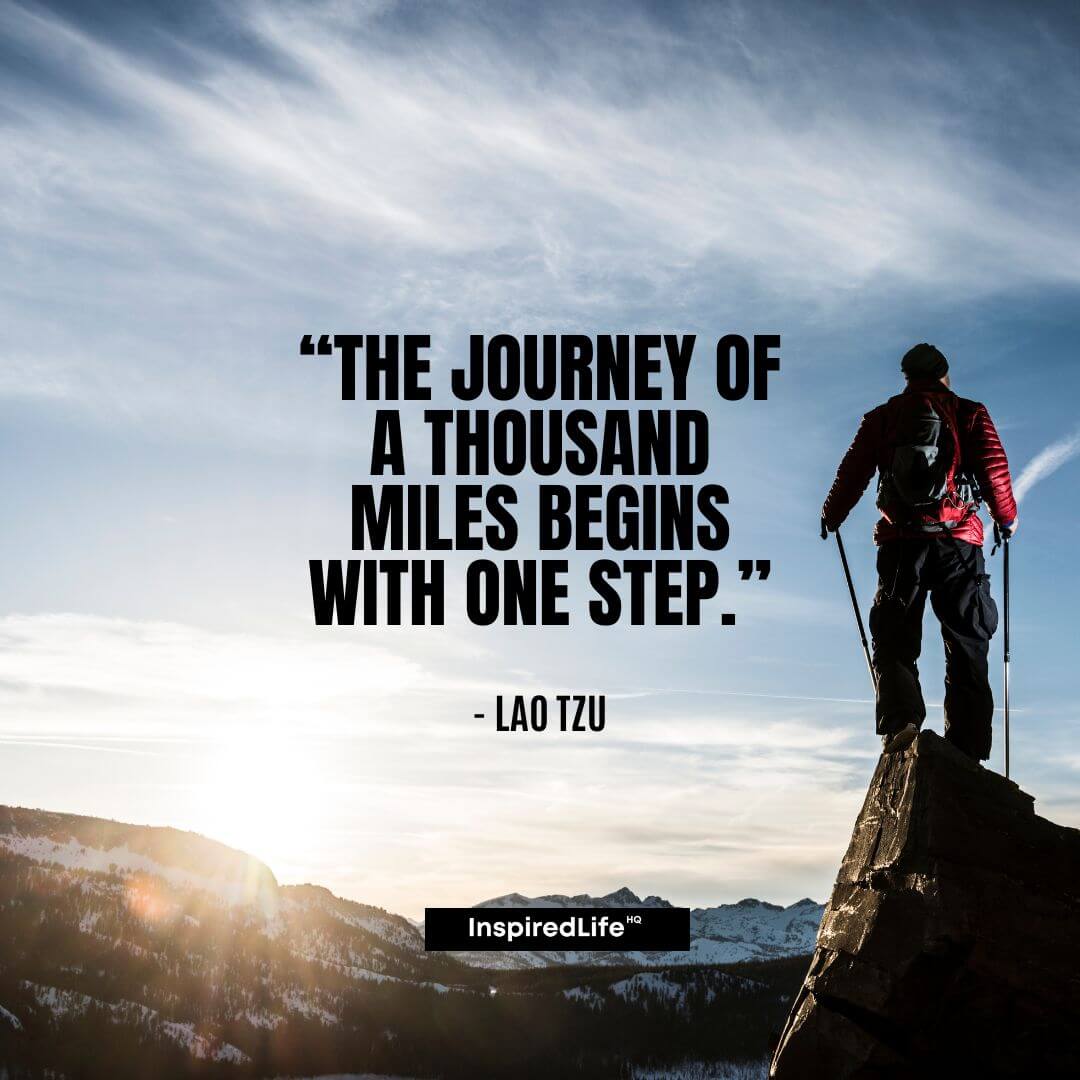
4. “Sometimes its more about the journey than the destination.” – Jamal Crawford
5. “Success is a journey, not a destination. The doing is often more important than the outcome.” – Arthur Ashe
6. “Focus on the journey, not the destination. Joy is found not in finishing an activity but in doing it.” – Greg Anderson
New journey quotes to inspire your success
7. “Not all those who wander are lost.” – J.R.R. Tolkien
8. “Sometimes it’s the journey that teaches you a lot about your destination.” – Drake
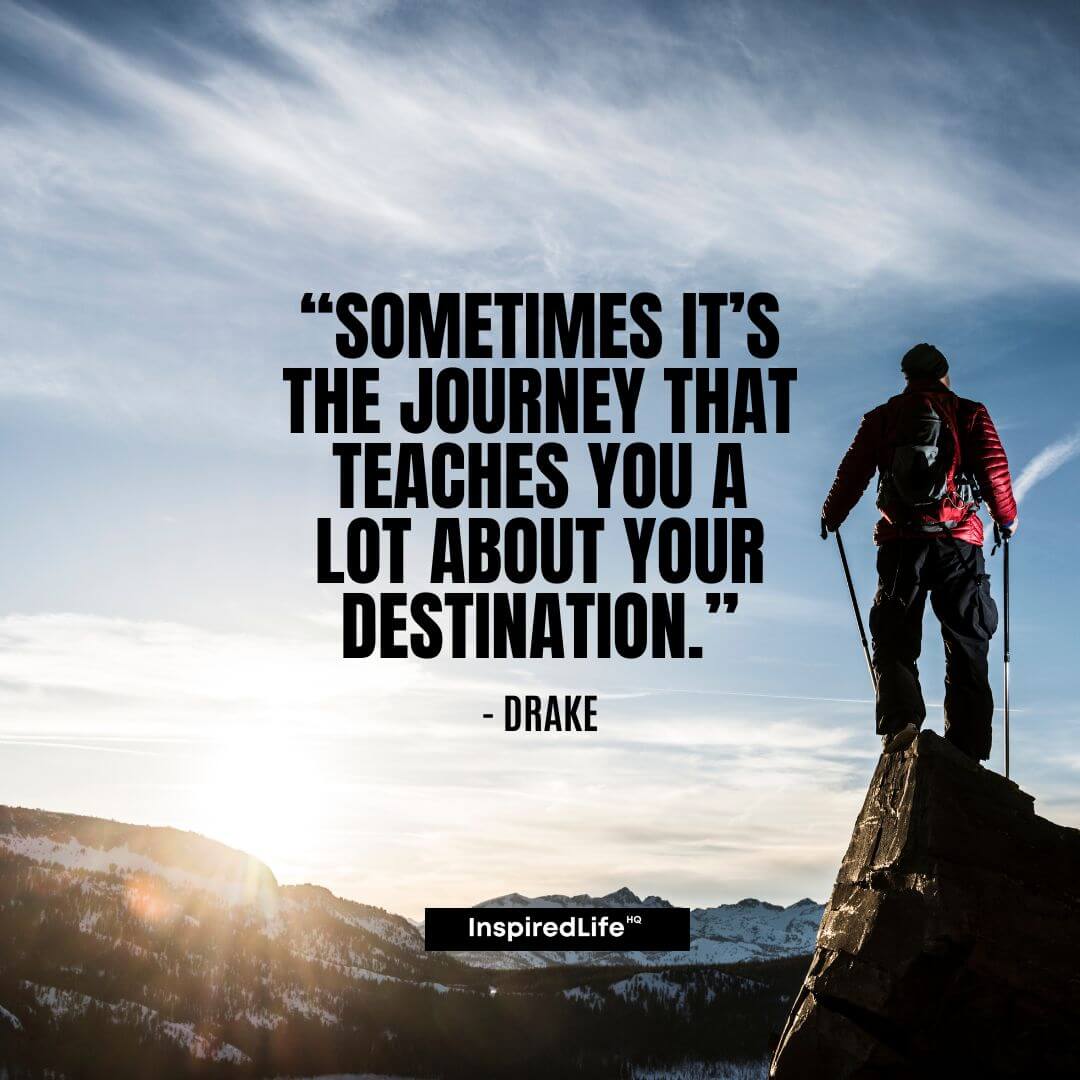
9. “Sometimes we make the process more complicated than we need to. We will never make a journey of a thousand miles by fretting about how long it will take or how hard it will be. We make the journey by taking each day step by step and then repeating it again and again until we reach our destination.” – Joseph B. Wirthlin
10. “Enjoy the journey and try to get better every day. And don’t lose the passion and the love for what you do.” – Nadia Comaneci
11. “Struggle teaches you a lot of things, and I am happy that I witnessed a roller coaster ride. The journey has improved me as a person and made me more matrure.” – Manoj Bajpayee
12. “Life is short and we have never too much time for gladdening the hearts of those who are traveling the dark journey with us. Oh be swift to love, make haste to be kind.” – Henri Frederic Amiel
Life is a journey quotes
13. “Life is a journey that must be traveled no matter how bad the roads and accommodations.” – Oliver Goldsmith
14. “Two roads diverged in a wood, and I took the one less traveled by, and that has made all the difference.” – Robert Frost
15. “Learn to trust the journey, even when you do not understand it.” – Lolly Daskal
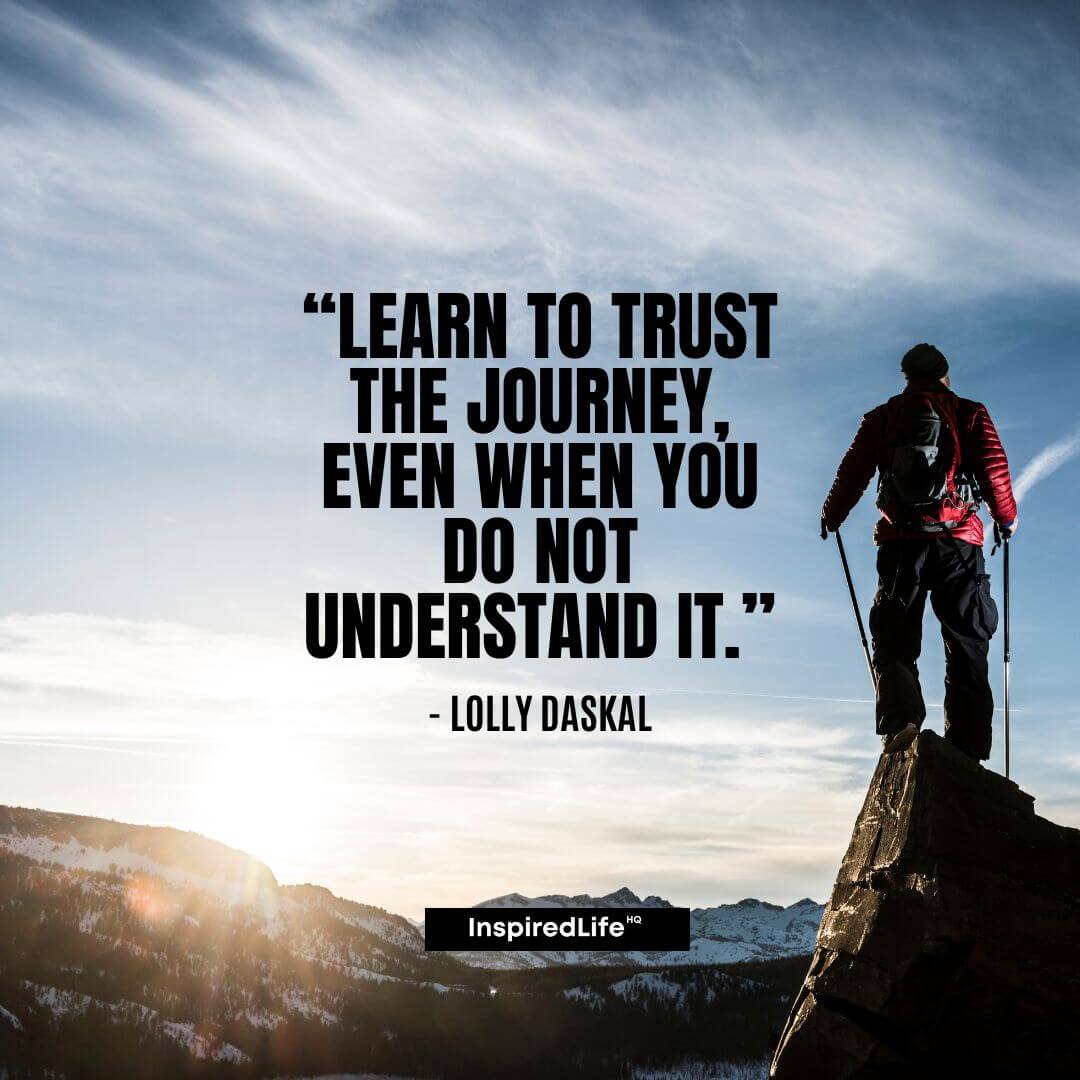
16. “Life is a journey that have a lot of different paths, but any path you choose, use it as your destiny.” – Unknown
17. “The beautiful journey of today can only begin when we learn to let go of yesterday.” – Steve Maraboli
Discover unique products that inspire at the InspiredLife Shop Wear Your Motivation. Inspire Your Space.
18. “Life is a journey, not a destination.” – Ralph Waldo Emerson
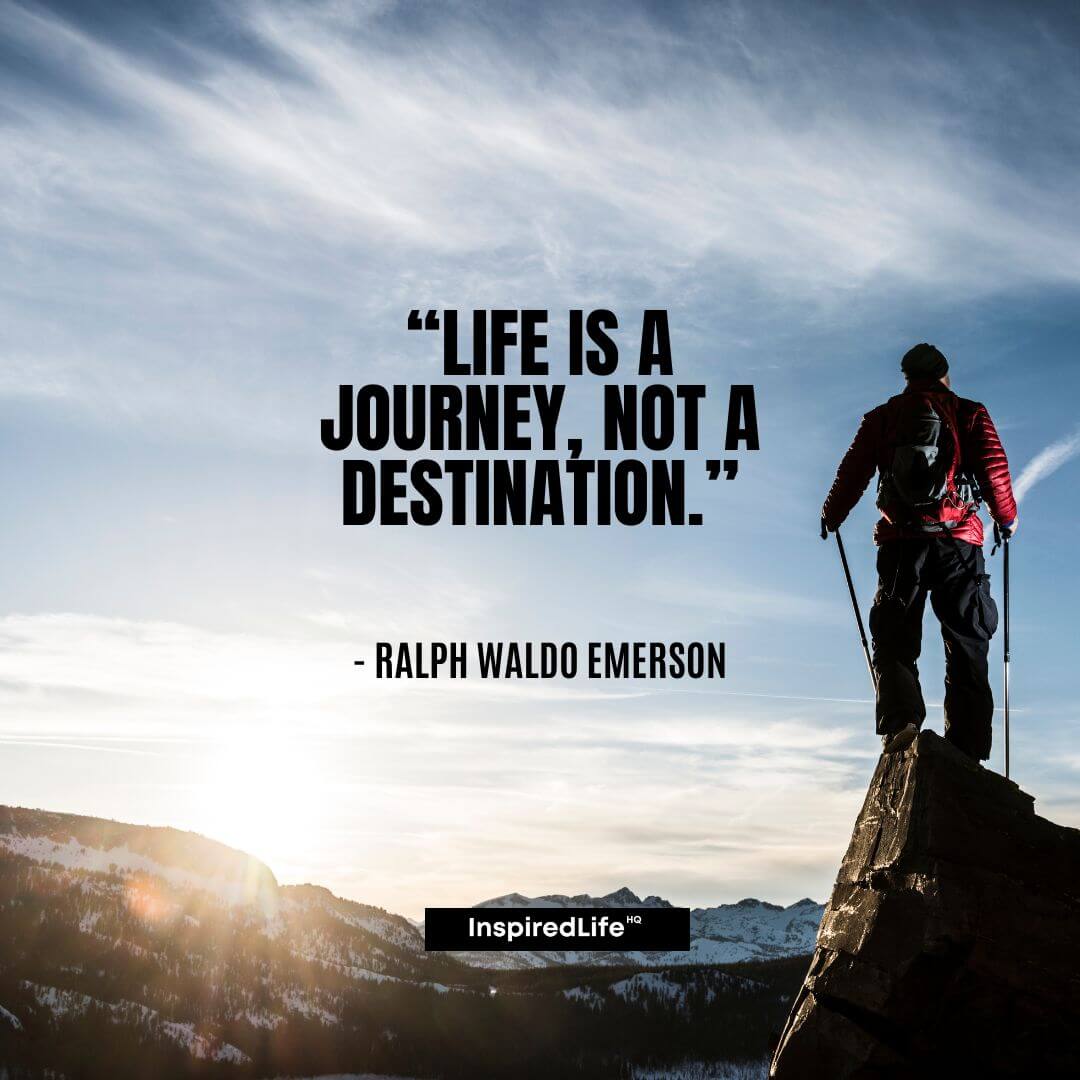
19. “Everyday you got a chance to make your journey more beautiful than yesterday.” – Nitin Namdeo
20. “Every day is a journey and the journey itself is home.” – Matsuo Basho
21. “Everybody has their own story; everything has their own journey.” – Thalia
Enjoy the journey quotes
22. “Enjoy the journey as much as the destination.” – Marshall Sylver
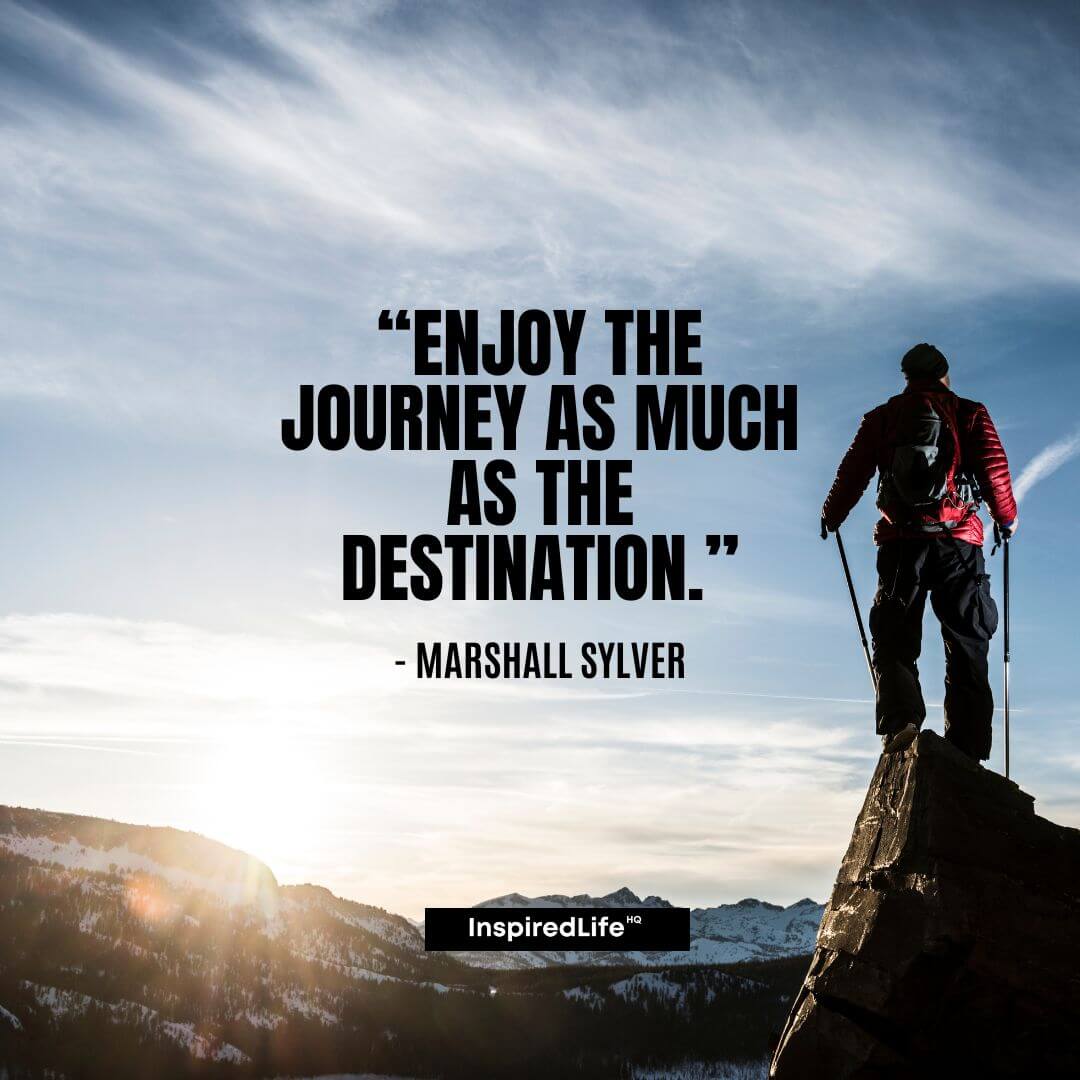
23. “Enjoy the journey of life and not just the endgame.” – Benedict Cumberbatch
24. “Enjoy the journey and try to get better everyday. And don’t lose the passion and the love for what you do.” – Nadia Comaneci
25. “Enjoy the journey, the destination will come.” – Verghese
26. “Don’t wait for everything to be perfect before you decide to enjoy your life.” – Joyce Meyer
27. “Dream big, stay positive, work hard, and enjoy the journey.” – Urijah Faber
28. “The key to realizing a dream is to focus not on success but significance, and then even the small steps and little victories along your path will take on greater meaning.” – Oprah Winfrey
29. “Aim for the sky, but move slowly, enjoying every step along the way. It is all those little steps that make the journey complete.” – Chanda Kochar
30. “Enjoy the journey, enjoy every moment, and quit worrying about winning and losing.” – Matt Biondi
31. “Stop worrying about the potholes in the road and enjoy the journey.” – Babs Hoffman
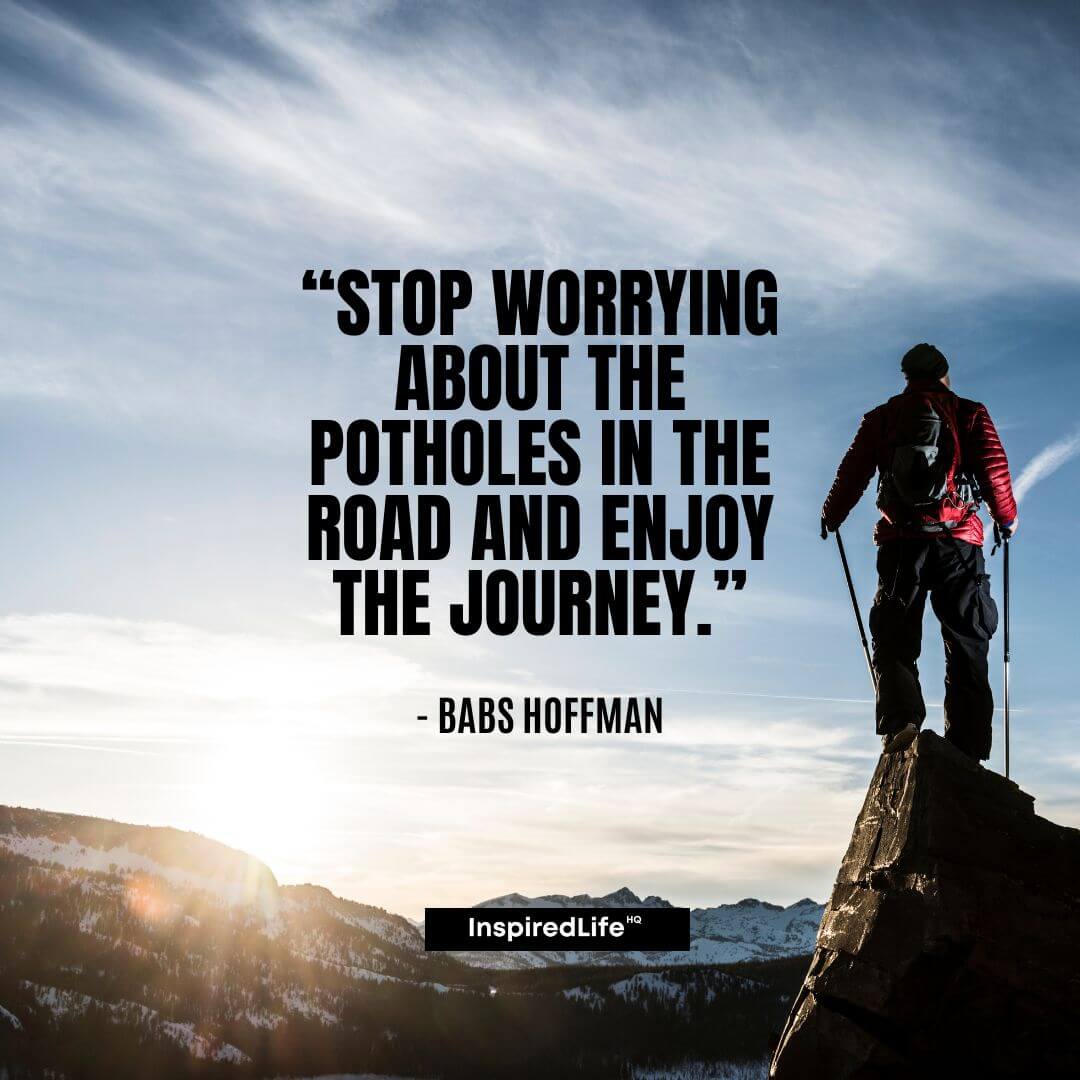
32. “I haven’t been everywhere but its on my list.” – Susan Sontag
33. “You must remain focused on your journey to greatness.” – Les Brown
Inspirational journey quotes
34. “You can never regret anything you do in life. You kind of have to learn the lesson from whatever the experience is and take it with you on your journey forward.” – Aubrey O’Day
35. “Life is a journey. When we stop, things don’t go right.” – Pope Francis
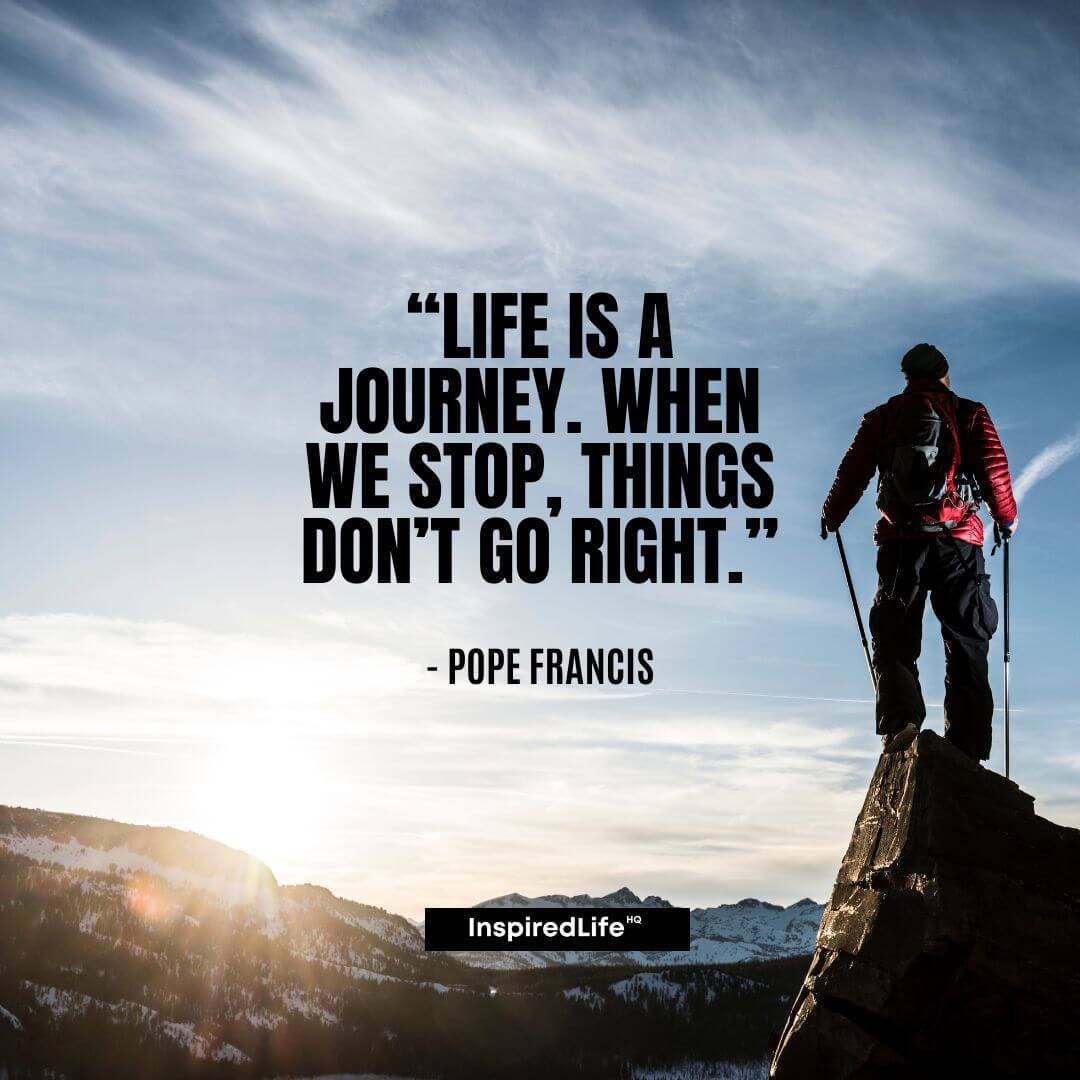
36. “There’s no map for you to follow and take your journey. You are Lewis and Clark. You are the mapmaker.” – Phillipa Soo
37. “I’m different than most people. When I cross the finish line of a big race, I see that people are ecstatic, but I’m thinking about what I’m going to do tomorrow. It’s as if my journey is everlasting, and there is no finish line.” – David Goggins
38. “We don’t receive wisdom; we must discover it for ourselves after a journey that no one can take for us or spare us.” – Marcel Proust
39. “Though the road’s been rocky it sure feels good to me.” – Bob Marley
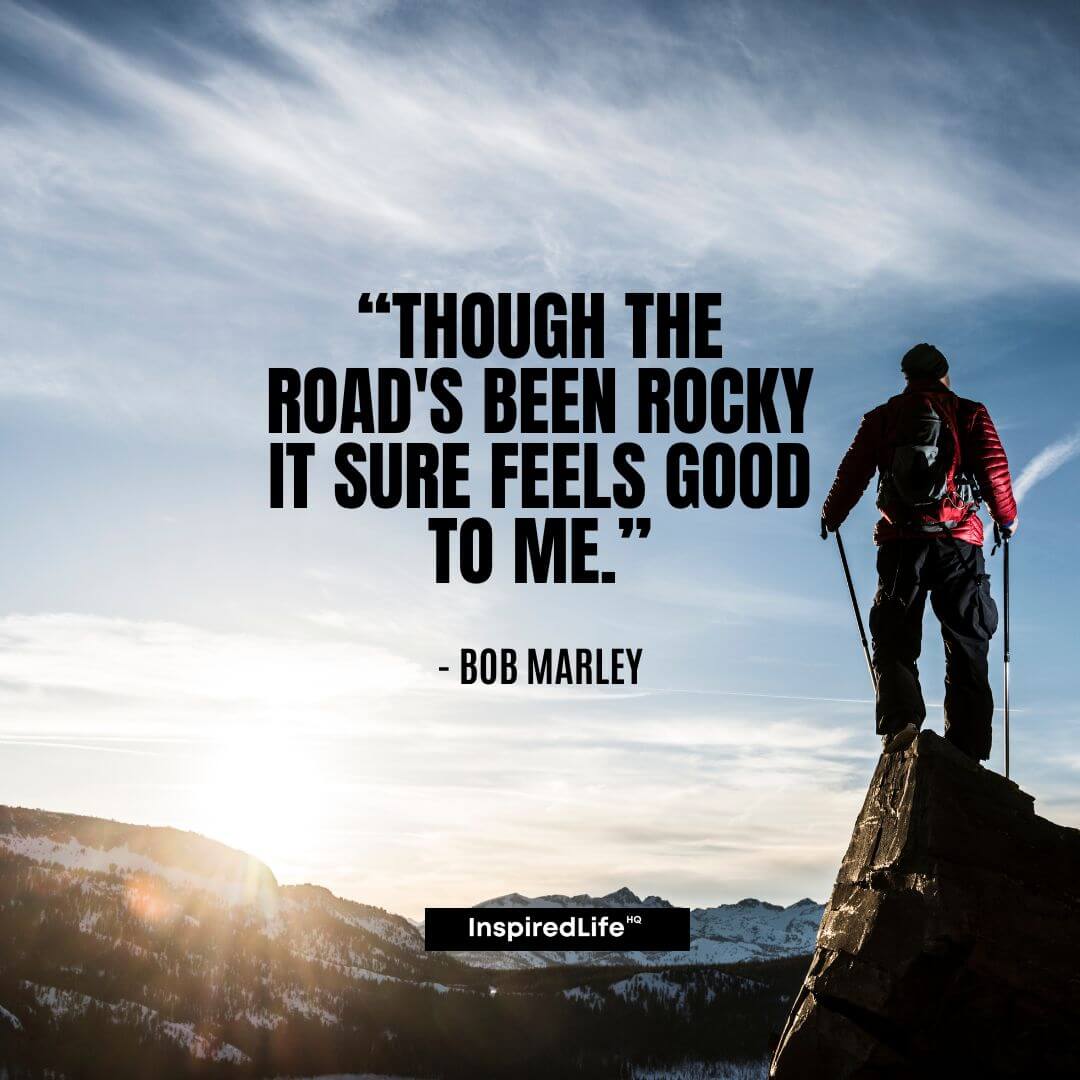
40. “We are at our very best, and we are happiest, when we are fully engaged in work we enjoy on the journey toward the goal we’ve established for ourselves. It gives meaning to our time off and comfort to our sleep. It makes everything else in life so wonderful, so worthwhile.” – Earl Nightingale
41. “Have the courage to follow your heart and intuition. They somehow already know what you truly want to become.” – Steve Jobs
42. “If my ship sails from sight, it doesn’t mean my journey ends, it simply means the river bends.” – Enoch Powell
Motivational journey quotes
43. “Make voyages. Attempt them. There’s nothing else.” – Tennessee Williams
44. “Gotta take that adventure in order to understand your journey.” – Jennifer Pierre
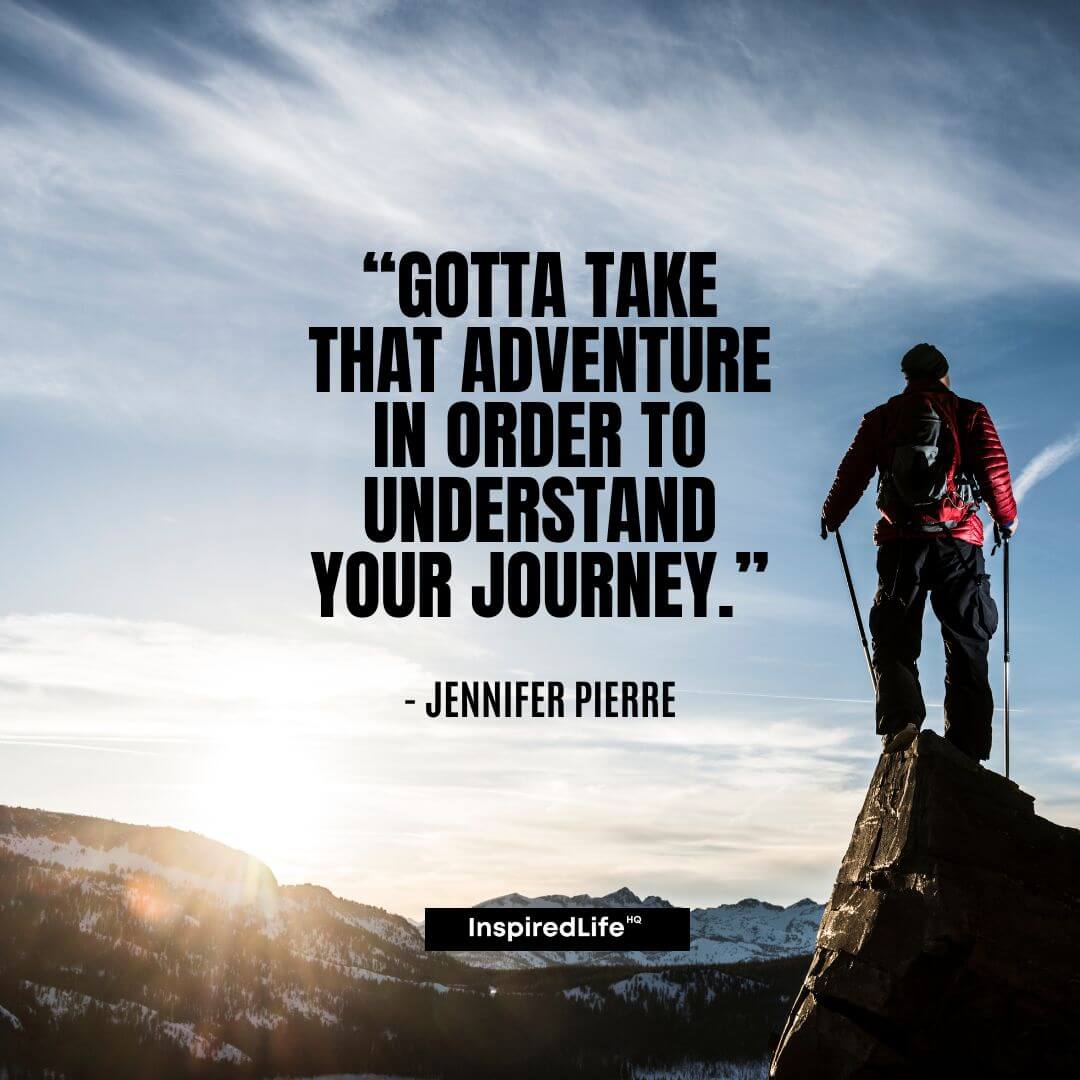
45. “Believe you can and you’re halfway there.” – Theodore Roosevelt
46. “The beauty of my journey is that it’s always been pretty unpredictable, so stay tuned.” – Andreja Pejic
47. “The journey not the arrival matters.” – T.S. Eliot
48. “The future depends on what you do today.” – Mahatma Gandhi
49. “The goal is to die with memories, not dreams.” – Unknown
50. “Never throughout history has a man who lived a life of ease left a name worth remembering.” – Theodore Roosevelt
51. “The harder you work from something, the greater you’ll feel when you achieve it.” – Sudhashree Acharya
52. “Once you have traveled, the voyage never ends, but is played out over and over again in the quietest chambers. The mind can never break off from the journey.” – Pat Conroy
53. “The only impossible journey is the one you never begin.” – ILHQ
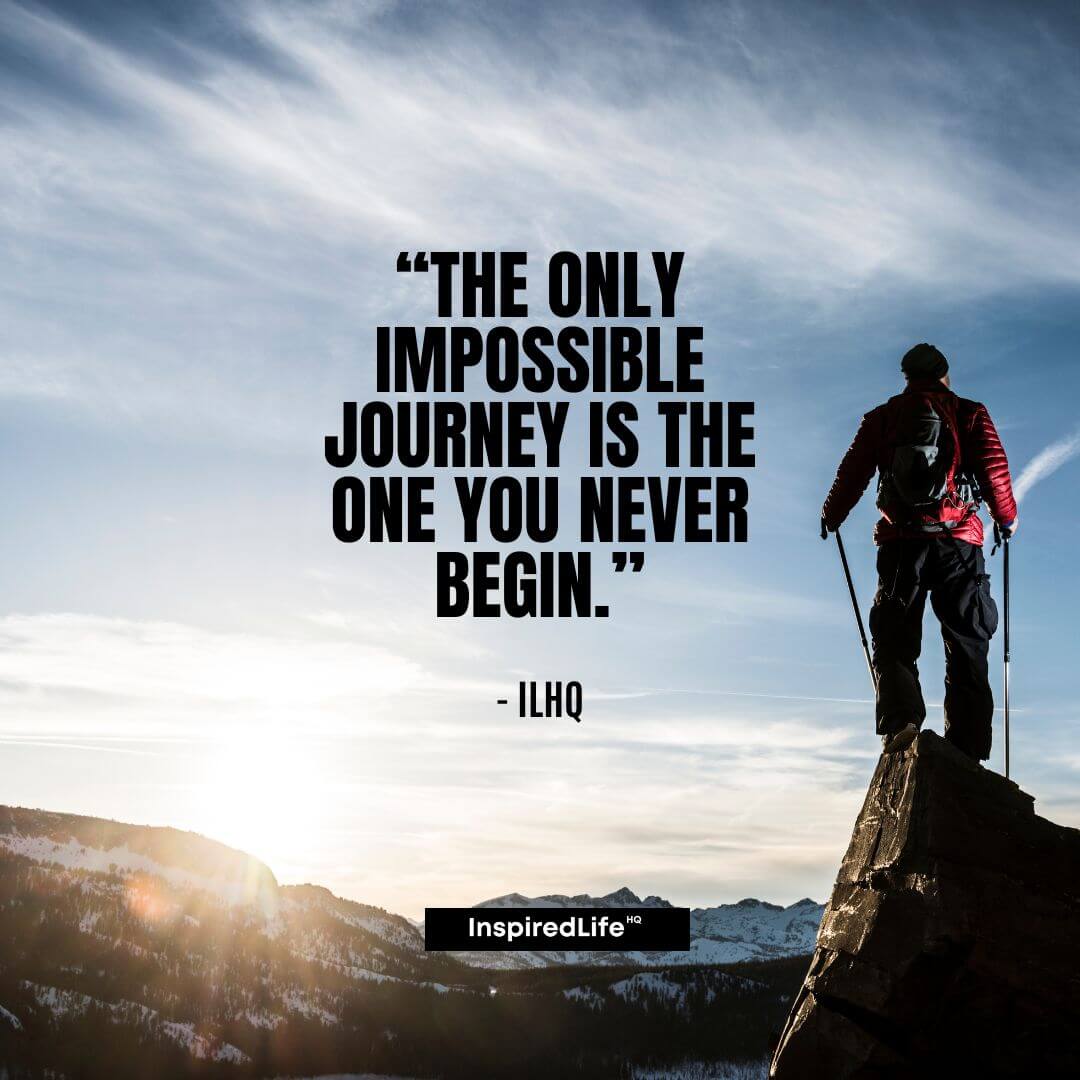
54. “When setting out on a journey do not seek advice from someone who never left home.” – Rumi
Positive journey quotes
55. “You may only live once, but if you do it right, once is enough.” – Mae West
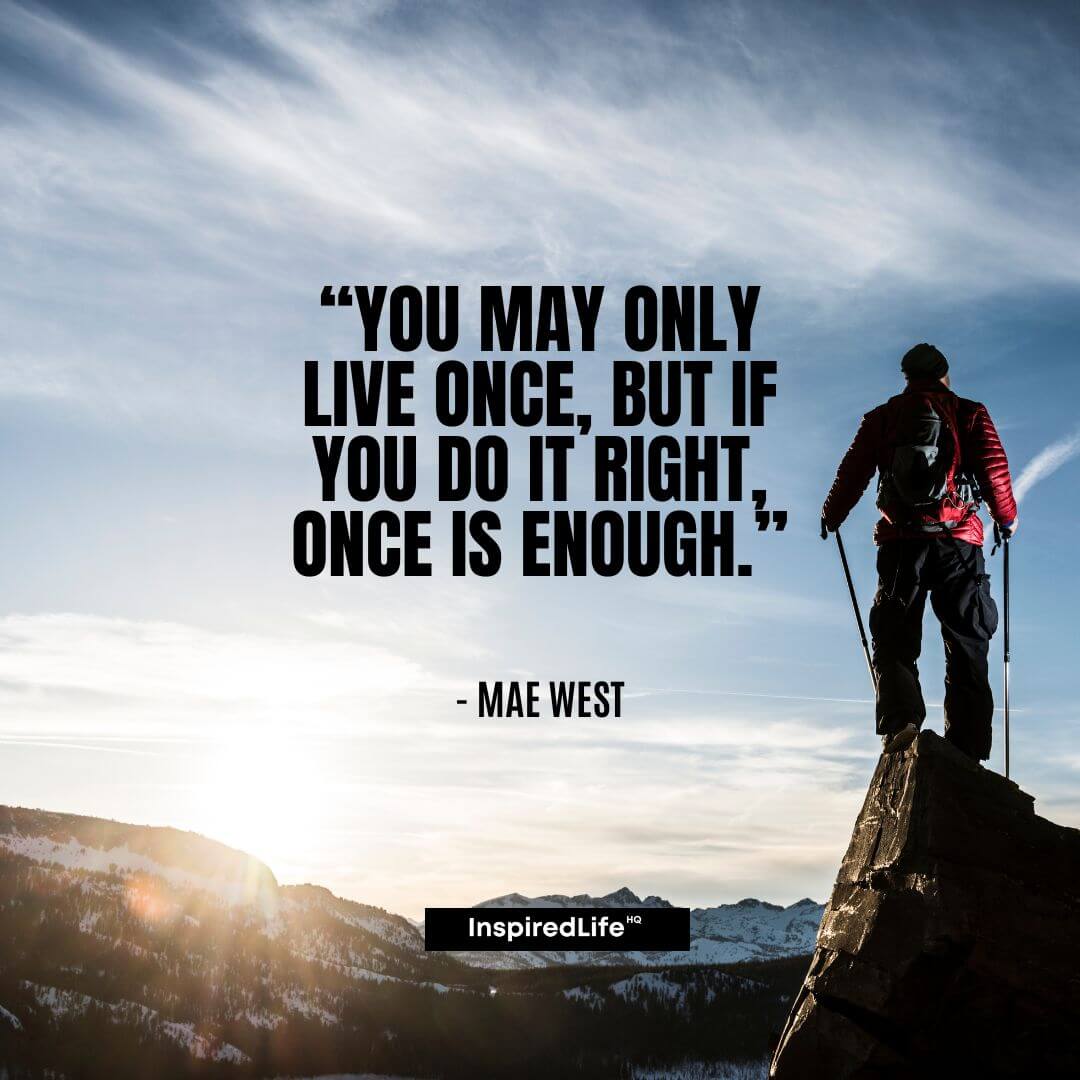
56. “Every day you got a chance to make your journey more beautiful than yesterday.” – Nitin Namdeo
57. “Stay positive. Better days are on their way.” – Unknown
58. “Your destiny is to fulfill those things upon which you focus most intently. So choose to keep your focus on that which is truly magnificent, beautiful, uplifting and joyful. Your life is always moving toward something.” – Ralph Marston
59. “You make a life out of what you have, not what you’re missing.” – Kate Morton
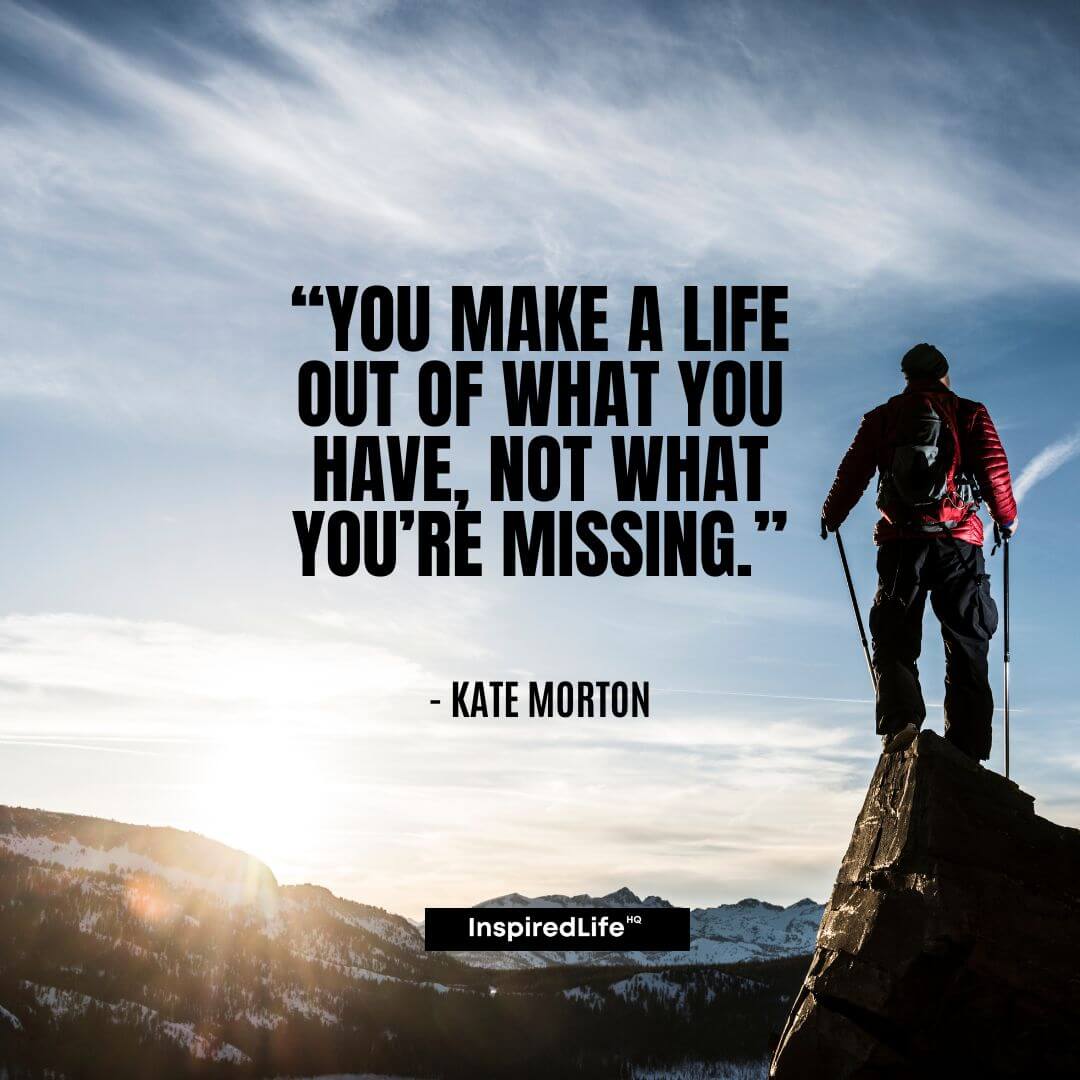
60. “Every sunset is an opportunity to reset. Every sunrise begins with new eyes.” – Richie Norton
61. “Life is very interesting. In the end, some of your greatest pains, become your greatest strengths.” – Drew Barrymore
62. “Your journey has molded you for your greater good, and it was exactly what it needed to be. Don’t think you’ve lost time. There is no short-cutting life. It took each and every situation you have encountered to bring you to the now. And now is right on time.” – Asha Tyson
63. “And suddenty you know…It’s time to start something new and trust the magic of beginnings.” – Meister Eckhart
64. “Find out who you are and do it on purpose.” – Dolly Parton
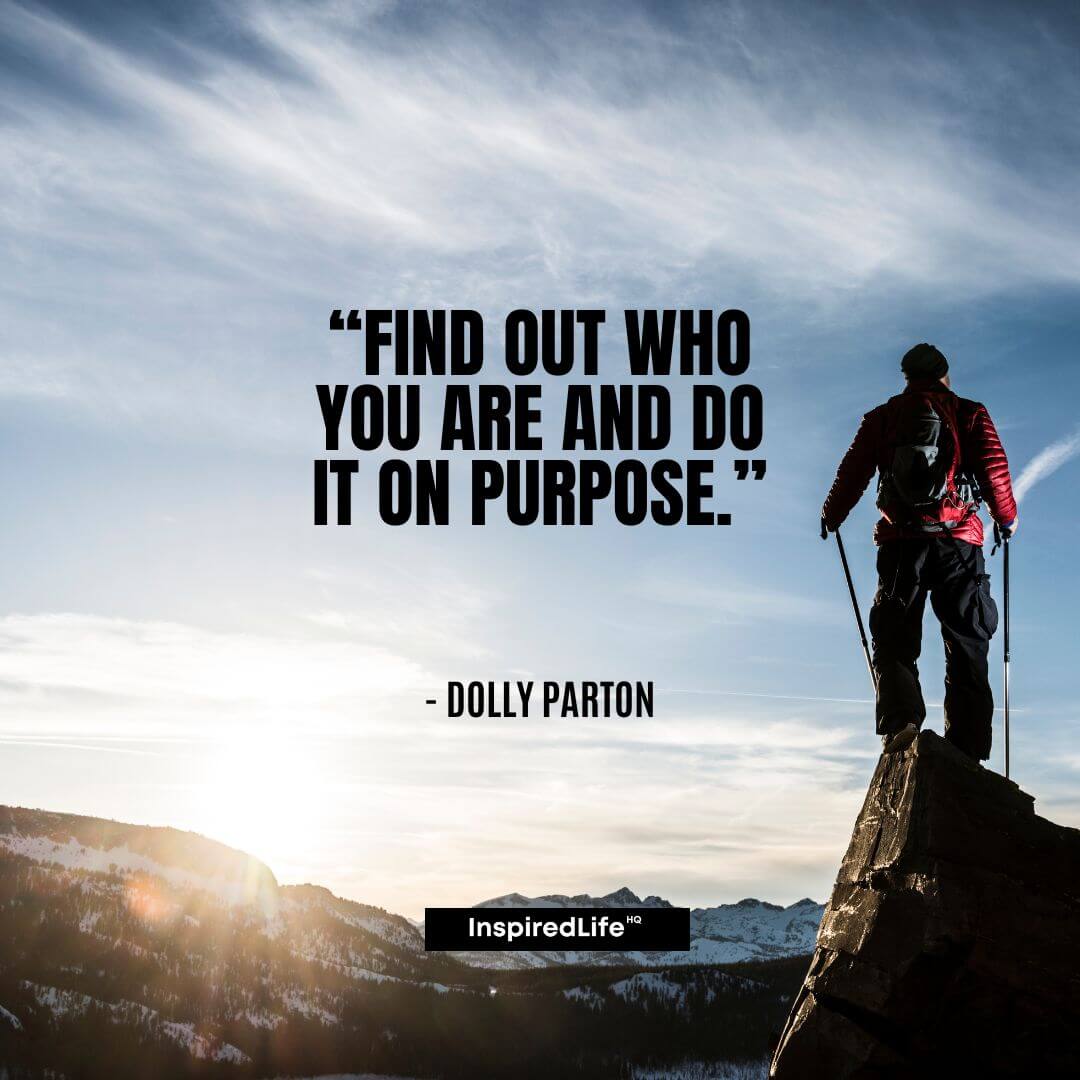
65. “Your success will be determined by your own confidence and fortitude.” – Michelle Obama
66. “Be yourself, everyone else is already taken.” – Oscar Wilde
67. “If you change the way you look at things, the things you look at change.” – Wayne Dyer
Journey of life quotes
68. “The only impossible journey is the one you never begin.” – Tony Robbins
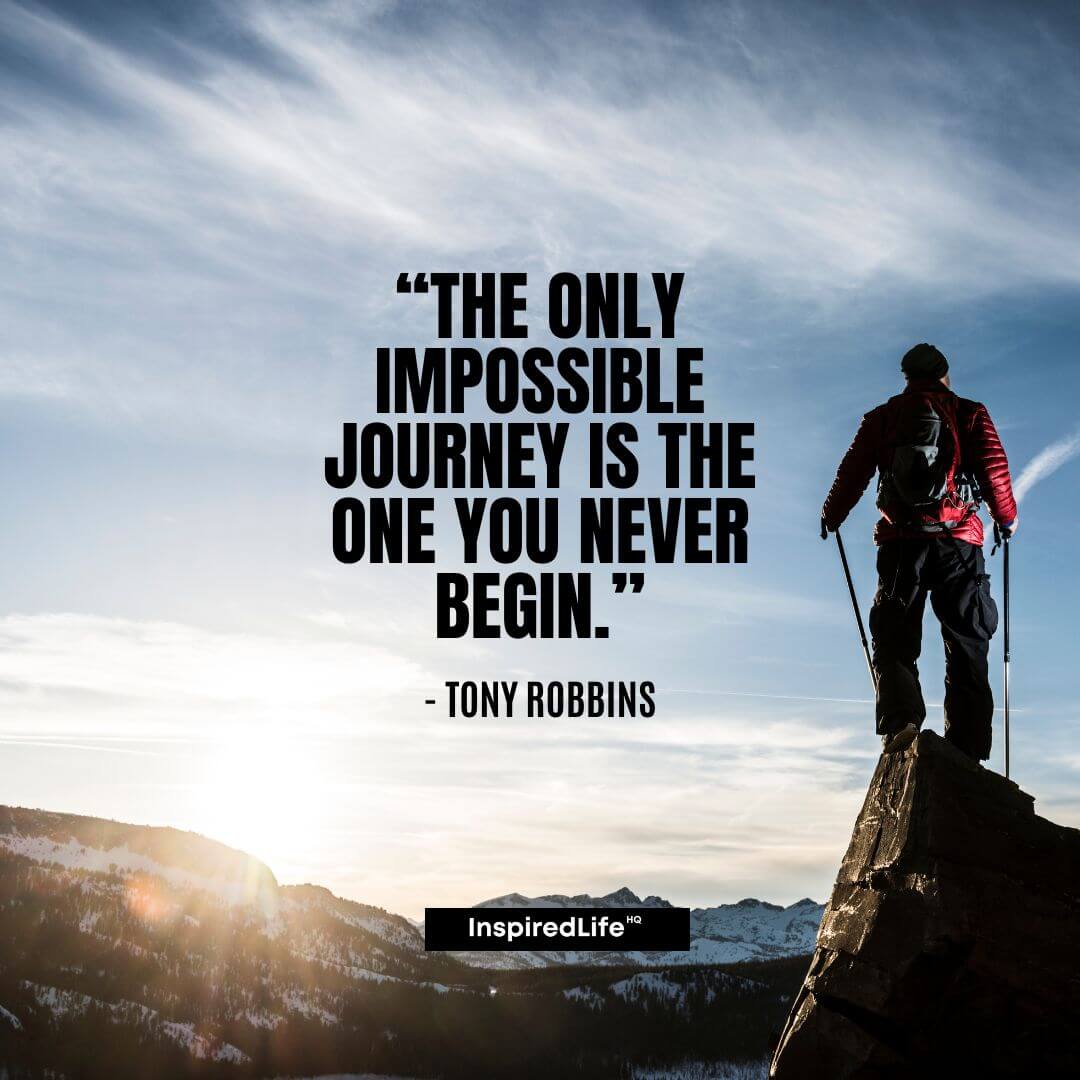
69. “When you have a dream, you’ve got to grab it and never let go.” – Carol Burnett
70. “Life is 10% of what happens to you and 90% how you react to it.” – Charles R. Swindoll
71. “You take your life in your own hands, and what happens? A terrible thing, no one to blame.” – Erica Jong
72. “If all difficulties were known at the outset of a long journey, most of us would never start out at all.” – Dan Rather
73. “It’s your reaction to adversity, not adversity itself that determines how your life’s story will develop.” – Dieter F. Uchtdorf
74. “Your Monday morning thoughts set the tone for your whole week. See yourself getting stronger, and living a fulfilling, happier & healthier life.” – Germany Kent
75. “Ability is what you’re capable of doing. Motivation determines what you do. Attitude determines how well you do it.” – Lou Holtz
76. “Our lives are the journey we take to find our true selves!” – Alyssa Gonzalez
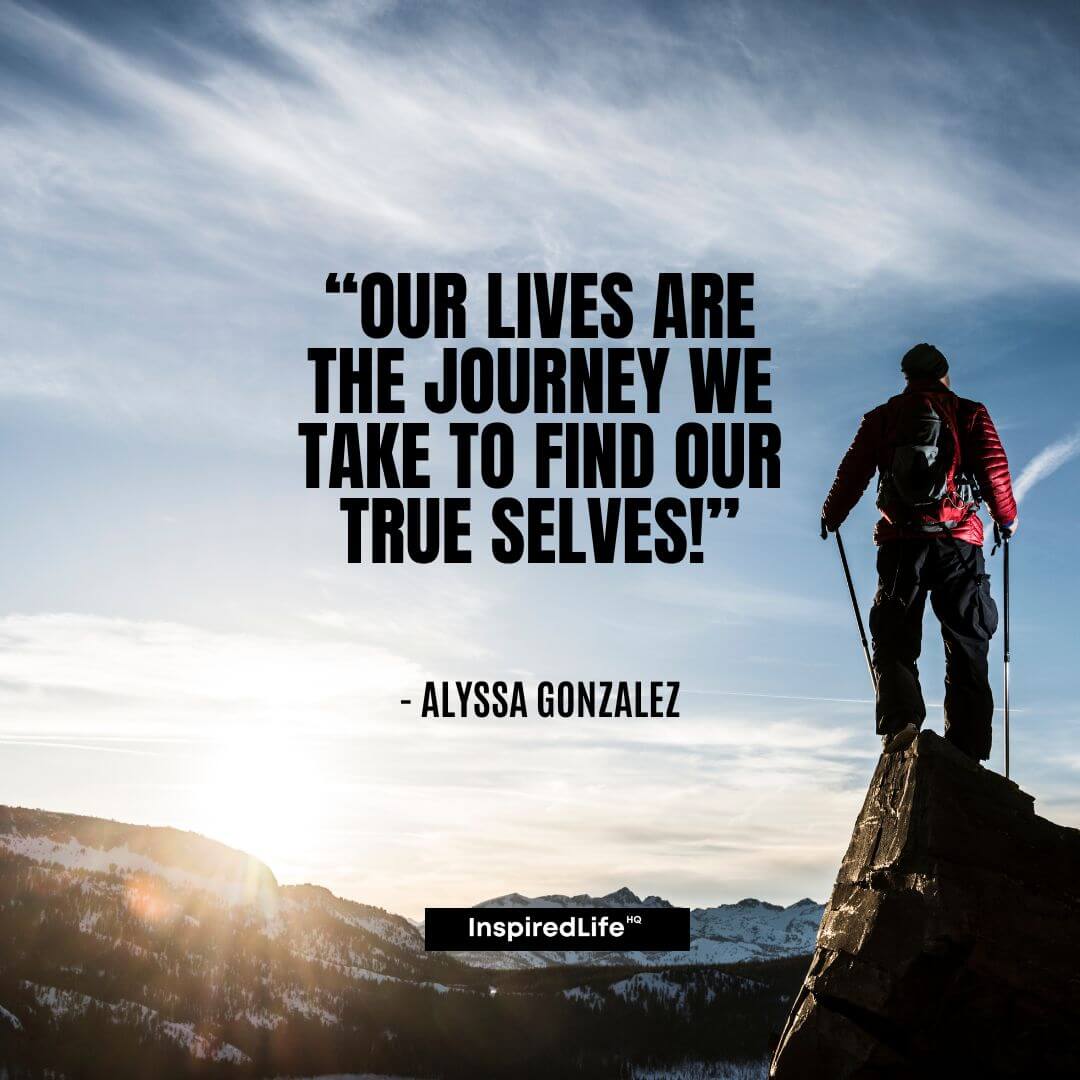
77. “Your braver than you believe, stronger that you seem, and smarter than you think.” – A.A. Milne
Which of these journey quotes were your favorites?
We all have the potential within us to be great.
But greatness isn’t about luck. It’s a choice.
We must choose to succeed and take steps towards it.
Remember, the path to success is a journey, not a quick leap.
Let these quotes inspire you to stay focused on your goals and dreams, no matter what obstacles get in your way along the path.

Helping people and eating tacos are my jam! This blog exists to help provide tips and resources that can help you achieve your goals and live a better life. Whether you’re looking for tips on personal growth, fitness, advice on starting a side hustle, or resources for working remotely, I’ve got you covered.
10 Chapters on Powerful Aspects of Personal Growth: A Journey Worth Taking


Table of Contents
Understanding personal growth.
Personal growth is the ongoing process of understanding and developing oneself in order to achieve one’s fullest potential. It involves self-improvement in various aspects of life, such as mental, emotional, social, and physical well-being. By focusing on personal growth, individuals can improve their quality of life, build healthier relationships, and achieve their goals.
Why Personal Growth Matters
Personal growth is crucial because it enables individuals to:
- Enhance Self-awareness : Understanding one’s strengths, weaknesses, and motivations.
- Improve Relationships : Better communication and empathy towards others.
- Increase Productivity : Setting and achieving personal and professional goals.
- Boost Confidence : Developing a positive self-image and self-belief.
“What we think, we become.” — Buddha
Key Areas of Personal Growth
Personal growth can be pursued in several areas, including:
Mental Growth
Expanding knowledge and cognitive skills can significantly contribute to personal growth. This might involve:
- Reading : Engaging with books and articles on various topics.
- Learning : Taking courses or attending workshops.
- Critical Thinking : Practicing problem-solving and analytical skills.
Emotional Growth
Managing emotions and developing empathy are critical for emotional growth. Strategies include:
- Emotional Regulation : Practicing techniques to manage stress and emotions.
- Empathy : Understanding and sharing the feelings of others.
- Mindfulness : Staying present and aware of one’s emotional state.
“The greatest discovery of all time is that a person can change his future by merely changing his attitude .” — Oprah Winfrey
Social Growth
Improving communication skills and building relationships are essential components of social growth:
- Effective Communication : Developing strong verbal and non-verbal communication skills.
- Networking : Building a network of supportive relationships.
- Conflict Resolution : Learning to handle disagreements constructively.
Physical Growth
Maintaining health and fitness is a vital part of personal growth:
- Exercise : Regular physical activity to improve health.
- Nutrition : Eating a balanced diet .
- Rest : Ensuring adequate sleep and relaxation.
Personal Growth Statistics
Understanding the impact of personal growth on various life aspects can be highlighted with some statistics:
Quotes on Personal Growth
Here are some inspiring quotes from well-known personalities on the importance of personal growth:
“We must become the change we wish to see in the world.” — Mahatma Gandhi
“Life isn’t about finding yourself. Life is about creating yourself.” — George Bernard Shaw
“The only journey is the journey within.” — Rainer Maria Rilke
By focusing on personal growth in these key areas, individuals can lead more fulfilling and successful lives. Embracing the journey of self-improvement not only enhances personal well-being but also positively impacts relationships, career, and overall life satisfaction.

Setting Realistic Goals
Setting realistic goals is a cornerstone of personal growth. Goals provide direction and purpose, helping individuals stay motivated and focused. They act as a roadmap, guiding us towards our desired outcomes and ensuring we make steady progress. However, for goals to be effective, they need to be realistic and well-defined.
SMART Goals
A popular method for setting effective goals is the SMART criteria, which stands for:
- Specific : Clearly defined and focused.
- Measurable : Quantifiable to track progress.
- Achievable : Realistic and attainable.
- Relevant : Aligned with personal values and long-term objectives.
- Time-bound : Having a deadline to create urgency.
Example of SMART Goals
Benefits of goal setting.
Setting goals has numerous benefits, both in personal and professional life:
- Clarity and Direction : Clear goals provide a roadmap for success.
- Motivation and Focus : Goals keep individuals motivated and on track.
- Accountability : Setting goals helps in measuring progress and staying accountable.
- Sense of Achievement : Achieving goals boosts confidence and self-esteem .
“Setting goals is the first step in turning the invisible into the visible.” — Tony Robbins
Strategies for Setting Realistic Goals
- Break Down Large Goals : Divide larger goals into smaller, manageable tasks. This makes them less overwhelming and easier to achieve.
- Prioritize Goals : Focus on goals that are most important and relevant to your life’s objectives.
- Write Down Your Goals : Documenting goals increases commitment and provides a visual reminder of what you’re working towards.
- Review and Adjust : Regularly assess your progress and make necessary adjustments to stay on track.
- Stay Flexible : Be prepared to modify your goals as circumstances change.
Common Pitfalls in Goal Setting
Avoid these common mistakes to ensure your goals are effective:
- Vague Goals : Goals that are not specific enough lead to confusion and lack of direction.
- Unrealistic Goals : Setting goals that are too ambitious can lead to frustration and demotivation.
- Lack of Time Frame : Without deadlines, goals lack urgency and are less likely to be achieved.
- Ignoring Progress : Failing to track progress can result in losing sight of achievements and necessary adjustments.
Goal Setting Statistics
Understanding the importance and effectiveness of goal setting can be highlighted with some statistics:
Quotes on Goal Setting
Here are some inspiring quotes from well-known personalities on the importance of setting goals:
“You are never too old to set another goal or to dream a new dream.” — C.S. Lewis
“A goal properly set is halfway reached.” — Zig Ziglar
“Discipline is the bridge between goals and accomplishment.” — Jim Rohn
By setting realistic and well-defined goals using the SMART criteria, individuals can significantly enhance their personal growth journey. Goals provide a clear direction, keep us motivated, and ensure that we stay accountable. Moreover, understanding and avoiding common pitfalls can lead to more effective goal-setting and greater achievement.

Developing a Growth Mindset
A growth mindset , a concept popularized by psychologist Carol Dweck, is the belief that abilities and intelligence can be developed through dedication and hard work. This mindset contrasts with a fixed mindset, where individuals believe their talents and abilities are static and unchangeable. Developing a growth mindset is crucial for personal growth as it fosters resilience , learning, and improvement.
Characteristics of a Growth Mindset
A growth mindset involves several key characteristics:
- Embracing Challenges : Viewing challenges as opportunities to grow.
- Persistence : Continuing effort despite obstacles.
- Learning from Criticism : Using feedback to improve.
- Finding Inspiration in Others : Seeing others’ success as a source of inspiration rather than comparison.
Benefits of a Growth Mindset
Adopting a growth mindset has numerous benefits:
- Increased Resilience : Better handling of setbacks and failures.
- Enhanced Learning : Greater openness to new experiences and knowledge.
- Improved Performance : Consistently striving for improvement and excellence.
- Better Relationships : More effective communication and collaboration.
“The view you adopt for yourself profoundly affects the way you lead your life.” — Carol Dweck
Fixed Mindset vs. Growth Mindset
Strategies to develop a growth mindset.
- Embrace Challenges : Instead of avoiding difficult tasks, see them as opportunities to improve your skills and knowledge.
- Learn from Criticism : Use feedback as a valuable tool for growth rather than a personal attack.
- Celebrate Effort, Not Just Results : Focus on the process and the effort you put in, not just the outcomes.
- Cultivate Curiosity : Stay curious and eager to learn new things, regardless of your current level of expertise.
- Reflect on Failures : Analyze your failures to understand what went wrong and how you can do better next time.
Inspirational Quotes on Growth Mindset
Here are some quotes from notable figures that emphasize the importance of a growth mindset:
“It’s not that I’m so smart, it’s just that I stay with problems longer.” — Albert Einstein
“Success is not the result of spontaneous combustion. You must set yourself on fire.” — Arnold H. Glasow
“Do not judge me by my successes, judge me by how many times I fell down and got back up again.” — Nelson Mandela
Growth Mindset in Practice
Implementing a growth mindset can significantly impact various aspects of life, from personal relationships to professional development. Here are some practical examples:
- In Education : Students with a growth mindset are more likely to embrace learning opportunities, persist through difficulties, and achieve higher academic success.
- In the Workplace : Employees who believe in their ability to grow are more likely to seek out challenges, welcome feedback, and advance in their careers.
- In Personal Development : Individuals with a growth mindset are more resilient, adaptable, and open to self-improvement, leading to more fulfilling lives.
Growth Mindset Statistics
Understanding the impact of a growth mindset can be highlighted with some statistics:
Practical Tips for Developing a Growth Mindset
- Mindfulness and Reflection : Regularly reflect on your experiences and mindset. Mindfulness practices can help you become more aware of your thought patterns.
- Seek Challenges : Intentionally choose tasks that stretch your abilities and force you to grow.
- Build a Supportive Environment : Surround yourself with people who encourage and support your growth efforts.
- Learn Continuously : Commit to lifelong learning . Attend workshops, read books, and take courses that push your boundaries.
- Acknowledge and Reward Effort : Recognize and celebrate the hard work you put into tasks, regardless of the immediate outcome.
“Effort is one of those things that gives meaning to life. Effort means you care about something, that something is important to you and you are willing to work for it.” — Carol Dweck
By adopting and nurturing a growth mindset, individuals can unlock their potential, overcome challenges, and lead more successful and fulfilling lives. This mindset is not only beneficial for personal growth but also enhances professional achievements and overall life satisfaction.

Building Resilience
Resilience is the ability to bounce back from adversity and maintain a positive outlook. It’s an essential skill for navigating life’s challenges and is critical for personal growth and well-being. Developing resilience can help individuals cope with stress, overcome obstacles, and emerge stronger from difficult situations.
Strategies to Build Resilience
Here are several effective strategies for building resilience:
- Positive Thinking : Focusing on positive aspects and maintaining a hopeful outlook.
- Stress Management : Utilizing techniques like mindfulness and relaxation to manage stress.
- Healthy Relationships : Building a support network of family and friends.
- Self-Care : Prioritizing physical and mental well-being through healthy habits.
- Problem-Solving Skills : Developing the ability to tackle problems effectively.
Benefits of Resilience
Building resilience offers numerous benefits:
- Better Coping Mechanisms : Improved ability to handle stress and adversity.
- Increased Happiness : Greater overall life satisfaction.
- Enhanced Problem-Solving : More effective and creative solutions to problems.
- Stronger Mental Health : Reduced risk of anxiety and depression.
“Life doesn’t get easier or more forgiving, we get stronger and more resilient.” — Steve Maraboli
Resilience in Practice
Resilience can be applied in various aspects of life, including personal relationships, workplace challenges, and overall mental health. Here’s how:
Personal Relationships
- Communication : Open and honest communication helps resolve conflicts and strengthen bonds.
- Support System : Relying on friends and family for emotional support during tough times.
Workplace Challenges
- Adaptability : Being flexible and open to change helps manage work-related stress.
- Problem-Solving : Taking a proactive approach to solve work challenges effectively.
Mental Health
- Mindfulness : Practicing mindfulness can reduce stress and enhance emotional regulation.
- Self-Reflection : Regularly reflecting on experiences to learn and grow from them.
Statistics on Resilience
Understanding the impact of resilience can be highlighted with some statistics:
Techniques to Build Resilience
Positive thinking.
Maintaining a positive outlook can significantly enhance resilience. Techniques include:
- Gratitude Journals : Keeping a journal to note things you’re grateful for each day.
- Affirmations : Using positive affirmations to reinforce a hopeful outlook.
“Once you replace negative thoughts with positive ones, you’ll start having positive results.” — Willie Nelson
Stress Management
Effective stress management techniques are crucial for resilience. Methods include:
- Mindfulness Meditation : Practicing mindfulness to stay present and reduce stress.
- Physical Exercise : Engaging in regular physical activity to improve mood and energy levels.
Building Healthy Relationships
Strong relationships provide emotional support and enhance resilience. Strategies include:
- Effective Communication : Being open and honest in interactions with others.
- Empathy : Practicing empathy to understand and support others better.
Real-Life Examples of Resilience
- Nelson Mandela : Despite spending 27 years in prison, Mandela emerged with a spirit of forgiveness and led South Africa towards reconciliation and unity.
- J.K. Rowling : Before achieving success with the Harry Potter series, Rowling faced numerous rejections and personal hardships, yet she persevered and became one of the most successful authors in history.
“The greatest glory in living lies not in never falling, but in rising every time we fall.” — Nelson Mandela
Practical Tips for Building Resilience
- Maintain Perspective : Try to see challenges in a broader context and keep a long-term perspective.
- Stay Connected : Build and maintain strong, supportive relationships.
- Accept Change : Embrace change as a part of life and adapt to it positively.
- Develop a Routine : Establishing a routine can provide stability and reduce stress.
By incorporating these strategies and techniques, individuals can build resilience, enabling them to face life’s challenges with strength and optimism. Resilience not only enhances personal growth but also contributes to overall well-being and success.

Enhancing Self-awareness
Self-awareness is the ability to recognize and understand one’s own emotions, thoughts, and behaviors. It’s a foundational element of personal growth that involves a deep and honest assessment of oneself. Enhancing self-awareness can lead to improved decision-making, better relationships, and greater overall well-being.
Techniques to Enhance Self-awareness
- Reflection : Regularly taking time to reflect on experiences and emotions.
- Mindfulness Meditation : Practicing mindfulness to stay present and aware.
- Journaling : Writing thoughts and feelings to explore inner experiences.
- Feedback : Seeking constructive feedback from others to gain new perspectives.
Benefits of Self-awareness
Enhancing self-awareness offers numerous benefits:
- Improved Emotional Regulation : Better control over emotional responses.
- Stronger Relationships : Enhanced empathy and communication with others.
- Personal Growth : Greater understanding of oneself leads to more effective personal development.
- Informed Decision-Making : Making choices aligned with values and goals.
“Your visions will become clear only when you can look into your own heart. Who looks outside, dreams ; who looks inside, awakes.” — Carl Jung
Self-awareness Techniques and Strategies
Reflection involves thoughtful consideration of one’s actions, emotions, and thoughts. This can be done through:
- Daily Reflection : Spending a few minutes each day reflecting on what went well and what didn’t.
- Weekly Reviews : Summarizing key events, feelings, and lessons learned each week.
Mindfulness Meditation
Mindfulness meditation helps individuals stay present and aware of their thoughts and feelings without judgment. Techniques include:
- Breathing Exercises : Focusing on the breath to anchor oneself in the present moment.
- Body Scans : Paying attention to physical sensations in different parts of the body.
Journaling is a powerful tool for enhancing self-awareness. It involves writing down thoughts, feelings, and experiences to explore them more deeply. Tips for effective journaling:
- Consistency : Writing regularly to build a habit.
- Honesty : Being truthful and open in your writing.
- Prompt-based Journaling : Using prompts to guide your writing, such as “What am I grateful for today?” or “What challenges did I face?”
“I write because I don’t know what I think until I read what I say.” — Flannery O’Connor
Seeking Feedback
Constructive feedback from others can provide valuable insights into how we are perceived and how we can improve. Methods include:
- 360-Degree Feedback : Gathering feedback from peers, supervisors, and subordinates.
- Open Conversations : Having honest discussions with trusted friends or mentors.
Statistics on Self-awareness
Understanding the impact of self-awareness can be highlighted with some statistics:
Practical Examples of Self-awareness
- Bill Gates : Gates attributes much of his success to his ability to reflect on his experiences and learn from them. He regularly takes “think weeks” to reflect and plan.
- Oprah Winfrey : Winfrey practices journaling and meditation to maintain her self-awareness and emotional health.
Quotes on Self-awareness
“To know yourself, you must sacrifice the illusion that you already do.” — Vironika Tugaleva
“The unexamined life is not worth living.” — Socrates
Practical Tips for Enhancing Self-awareness
- Mindfulness Practices : Incorporate mindfulness exercises into your daily routine.
- Regular Reflection : Set aside time each day or week to reflect on your experiences.
- Journaling : Maintain a journal to explore your thoughts and feelings in depth.
- Seek Feedback : Regularly ask for feedback from those you trust to gain different perspectives.
- Monitor Emotions : Pay attention to your emotional reactions and try to understand their triggers.
Self-awareness Assessment Tools
Self-reflection questions.
Asking yourself reflective questions can help enhance self-awareness:
- What are my core values?
- How do I react under stress?
- What are my strengths and weaknesses?
- What motivates me?
Personality Assessments
Using personality assessments can provide structured insights into your traits and behaviors. Popular tools include:
- Myers-Briggs Type Indicator (MBTI) : Offers insights into personality types.
- The Big Five Personality Test : Measures five major dimensions of personality.
“Self-awareness is not just about looking inward. It’s also about understanding how others perceive us.” — Tasha Eurich
By implementing these techniques and strategies, individuals can significantly enhance their self-awareness. This foundational element of personal growth leads to better emotional regulation, stronger relationships, and more informed decision-making, ultimately contributing to a more fulfilling and successful life.

Embracing Change
Change is an inevitable part of life, and embracing it is crucial for personal growth. Whether it’s a shift in career, moving to a new city, or changes in personal relationships, the ability to adapt to new circumstances is a vital skill. Embracing change can lead to new opportunities, personal development, and a more resilient mindset.
Strategies to Embrace Change
- Open-mindedness : Being open to new ideas and experiences.
- Flexibility : Adapting to new situations with ease.
- Positive Attitude : Viewing change as an opportunity rather than a threat.
- Continuous Learning : Seeking out new knowledge and skills.
- Building Resilience : Developing the ability to bounce back from setbacks.
Benefits of Embracing Change
- Personal Development : Growth through new experiences and challenges.
- Increased Resilience : Better ability to adapt to and recover from changes.
- Opportunities : Opening doors to new possibilities and opportunities.
- Enhanced Creativity : Encouraging innovative thinking and problem-solving.
“The only way to make sense out of change is to plunge into it, move with it, and join the dance.” — Alan Watts
How to Embrace Change
Open-mindedness.
Being open to change starts with having an open mind. This involves:
- Curiosity : Asking questions and seeking to understand new situations.
- Acceptance : Recognizing that change is a natural part of life.
- Exploration : Trying new things and stepping out of your comfort zone .
Flexibility
Flexibility is about adapting to change with ease. Strategies include:
- Staying Adaptable : Being willing to adjust your plans as needed.
- Problem-solving : Finding solutions to challenges that arise from change.
- Maintaining Balance : Keeping a balanced perspective and avoiding overreaction.
Positive Attitude
A positive attitude can make a significant difference in how you handle change:
- Optimism : Focusing on the potential positive outcomes of change.
- Gratitude : Being thankful for new opportunities and experiences.
- Resilience : Viewing setbacks as temporary and surmountable.
“Change is the law of life. And those who look only to the past or present are certain to miss the future.” — John F. Kennedy
Continuous Learning
Continuous learning helps you stay relevant and adaptable in a changing world:
- Education : Pursuing formal and informal learning opportunities.
- Skill Development : Enhancing current skills and acquiring new ones.
- Growth Mindset : Believing in your ability to learn and improve.
Practical Examples of Embracing Change
- Steve Jobs : After being ousted from Apple, Jobs founded NeXT and Pixar, eventually returning to lead Apple to unprecedented success.
- Malala Yousafzai : Despite facing extreme adversity, Malala embraced change and became a global advocate for education and women’s rights.
Statistics on Embracing Change
Understanding the importance of embracing change can be highlighted with some statistics:
Techniques to Embrace Change
- Practice Curiosity : Engage in activities that stimulate your curiosity.
- Accept Uncertainty : Understand that uncertainty is a part of life and embrace it.
- Seek New Experiences : Regularly try new activities or hobbies.
- Adapt Quickly : Train yourself to make quick adjustments to your plans when necessary.
- Stay Organized : Keep a flexible but organized approach to manage changes smoothly.
- Balance Routine and Spontaneity : Maintain some routines while being open to spontaneous changes.
- Reframe Challenges : View challenges as opportunities to grow and learn.
- Maintain Optimism : Focus on positive aspects and outcomes.
- Cultivate Gratitude : Regularly practice gratitude to maintain a positive outlook.
“The measure of intelligence is the ability to change.” — Albert Einstein
Practical Tips for Embracing Change
- Stay Informed : Keep yourself updated about changes in your industry or area of interest.
- Develop a Support System : Surround yourself with supportive people who encourage you.
- Reflect on Past Experiences : Learn from past changes and how you handled them.
- Set Flexible Goals : Set goals that are adaptable to changing circumstances.
- Take Care of Yourself : Ensure you maintain good physical and mental health to better handle change.
By adopting these strategies and techniques, individuals can learn to embrace change positively and effectively. Embracing change not only enhances personal growth but also leads to new opportunities, increased resilience, and a more fulfilling life.

Improving Emotional Intelligence
Emotional intelligence (EQ) is the ability to understand, use, and manage your own emotions in positive ways to relieve stress, communicate effectively, empathize with others, overcome challenges, and defuse conflict. It’s a crucial skill for personal and professional success and contributes significantly to personal growth.
Components of Emotional Intelligence
Emotional intelligence consists of several key components:
- Self-awareness : Recognizing and understanding your own emotions.
- Self-regulation : Managing your emotions in a healthy way.
- Motivation : Being driven to achieve personal goals.
- Social Skills : Building and maintaining healthy relationships.
Benefits of High Emotional Intelligence
High emotional intelligence offers numerous benefits:
- Better Relationships : More effective communication and conflict resolution.
- Improved Mental Health : Reduced stress and better emotional regulation.
- Enhanced Leadership : Greater ability to inspire and lead others.
- Increased Success : Better performance in both personal and professional settings.
“It’s very important to understand that emotional intelligence is not the opposite of intelligence, it is not the triumph of heart over head – it is the unique intersection of both.” — David Caruso
Developing Emotional Intelligence
Self-awareness.
Self-awareness is the foundation of emotional intelligence. It involves:
- Mindfulness : Practicing mindfulness to become more aware of your emotions.
- Reflection : Regularly reflecting on your emotional responses.
- Feedback : Seeking feedback from others about how your emotions affect them.
Self-regulation
Self-regulation is about managing your emotions effectively. Techniques include:
- Impulse Control : Learning to control impulsive feelings and behaviors.
- Stress Management : Using techniques like deep breathing and meditation to manage stress.
- Adaptability : Being able to adjust your emotions and behaviors in changing situations.
Motivation in the context of EQ means being driven to achieve goals for personal reasons rather than external rewards. Strategies include:
- Goal Setting : Setting and striving for personal and professional goals.
- Optimism : Maintaining a positive outlook and perseverance.
Empathy involves understanding and sharing the feelings of others. It can be developed by:
- Active Listening : Truly listening to what others are saying without interrupting.
- Perspective-taking : Trying to see things from others’ points of view.
- Compassion : Responding to others’ emotions with care and understanding.
Social Skills
Social skills are about managing relationships to move people in desired directions. These can be enhanced by:
- Communication : Developing clear and effective communication skills.
- Conflict Resolution : Learning to resolve conflicts in a constructive manner.
- Teamwork : Collaborating well with others and building strong team dynamics.
Emotional Intelligence Statistics
Understanding the impact of emotional intelligence can be highlighted with some statistics:
Practical Examples of Emotional Intelligence
- Nelson Mandela : Mandela’s ability to empathize with his oppressors and his emotional regulation played a significant role in his leadership and the peaceful transition of power in South Africa.
- Oprah Winfrey : Winfrey’s success can be attributed to her high emotional intelligence, particularly her empathy and ability to connect with people on a deep emotional level.
Quotes on Emotional Intelligence
“When dealing with people, remember you are not dealing with creatures of logic, but with creatures of emotion.” — Dale Carnegie
“Emotional intelligence is a way of recognizing, understanding, and choosing how we think, feel, and act. It shapes our interactions with others and our understanding of ourselves.” — Daniel Goleman
Techniques to Improve Emotional Intelligence
- Mindfulness Practices : Engage in regular mindfulness or meditation exercises.
- Emotional Journals : Keep a journal of your emotional experiences and reflect on them.
- Pause and Reflect : Take a moment to pause and think before reacting to a situation.
- Healthy Coping Mechanisms : Develop healthy ways to cope with stress and negative emotions.
- Find Your Why : Understand the deeper reasons behind your goals and actions.
- Stay Positive : Focus on maintaining a positive outlook even in the face of challenges.
- Practice Active Listening : Pay full attention to others when they are speaking.
- Volunteer Work : Engage in activities that help you connect with and understand diverse groups of people.
- Develop Communication Skills : Take courses or read books on effective communication.
- Practice Conflict Resolution : Learn and practice techniques for resolving conflicts amicably.
Practical Tips for Enhancing Emotional Intelligence
- Stay Curious : Always be willing to learn more about yourself and others.
- Regular Self-reflection : Take time to reflect on your emotions and actions.
- Build Strong Relationships : Focus on building and maintaining strong, healthy relationships.
- Seek Feedback : Regularly seek feedback from others to gain new perspectives on your emotional responses and behaviors.
- Practice Empathy : Make a conscious effort to understand and empathize with others.
By focusing on these strategies and techniques, individuals can significantly improve their emotional intelligence. This, in turn, leads to better relationships, improved mental health, and greater success in both personal and professional realms.
Cultivating Self-discipline
Self-discipline is the ability to control impulses, stay focused on goals, and maintain consistency in actions despite distractions and temptations. It’s a crucial trait for achieving long-term success in both personal and professional endeavors. Cultivating self-discipline helps individuals develop the resilience needed to overcome challenges and achieve their aspirations.
Techniques to Cultivate Self-discipline
- Goal Setting : Setting clear, achievable goals.
- Routine : Establishing a consistent daily routine.
- Mindfulness : Staying present and focused on the task at hand.
- Accountability : Holding oneself accountable for actions and decisions.
- Healthy Habits : Developing habits that support your goals.
Benefits of Self-discipline
Self-discipline offers numerous benefits, including:
- Achieving Goals : More effective pursuit of personal and professional objectives.
- Improved Focus : Greater concentration and productivity.
- Enhanced Self-control : Better management of impulses and behaviors.
- Increased Confidence : Building trust in one’s own abilities and decisions.
Strategies for Developing Self-discipline
Goal setting.
Setting clear, achievable goals is the foundation of self-discipline. Effective goal-setting techniques include:
- SMART Goals : Specific, Measurable, Achievable, Relevant, Time-bound goals.
- Breaking Down Goals : Dividing larger goals into smaller, manageable tasks.
- Visualizing Success : Imagining the successful completion of your goals to stay motivated.
A consistent routine helps reinforce self-discipline by creating structure in your daily life:
- Daily Schedule : Establishing a daily schedule to follow.
- Prioritizing Tasks : Focusing on the most important tasks first.
- Consistency : Sticking to your routine even on difficult days.
Mindfulness
Staying present and focused helps maintain self-discipline:
- Meditation : Practicing mindfulness meditation to enhance focus.
- Deep Breathing : Using deep breathing techniques to reduce stress and maintain concentration.
- Mindful Activities : Engaging in activities that require focus and presence, such as yoga or tai chi.
Accountability
Holding yourself accountable increases self-discipline:
- Tracking Progress : Keeping track of your progress toward goals.
- Setting Deadlines : Establishing deadlines for tasks and goals.
- Sharing Goals : Sharing your goals with friends or mentors to stay accountable.
Practical Examples of Self-discipline
- Thomas Edison : Edison’s self-discipline was evident in his relentless work ethic, famously stating, “I have not failed. I’ve just found 10,000 ways that won’t work.”
- Serena Williams : Williams’ disciplined training regimen and focus have led her to become one of the greatest tennis players of all time.
Statistics on Self-discipline
Understanding the impact of self-discipline can be highlighted with some statistics:
Quotes on Self-discipline
“The first and best victory is to conquer self.” — Plato
“We do today what they won’t, so tomorrow we can accomplish what they can’t.” — Dwayne “The Rock” Johnson
Techniques for Maintaining Self-discipline
Establishing a routine can help reinforce self-discipline by creating structure in your daily life. Techniques include:
- Daily Schedule : Creating and following a daily schedule.
- Consistency : Maintaining your routine even on difficult days.
Staying present and focused can significantly enhance self-discipline:
- Mindfulness Meditation : Practicing mindfulness meditation to improve focus and emotional regulation.
- Mindful Breathing : Using breathing exercises to stay calm and centered.
- Present Moment Awareness : Engaging fully in current tasks to reduce distractions.
Holding yourself accountable is crucial for maintaining self-discipline:
- Progress Tracking : Regularly tracking your progress toward your goals.
- Deadlines : Setting clear deadlines for tasks and milestones.
- Accountability Partners : Sharing your goals with someone who can help keep you accountable.
Practical Tips for Cultivating Self-discipline
- Start Small : Begin with small, manageable tasks to build your self-discipline gradually.
- Reward Yourself : Recognize and reward your efforts and achievements.
- Stay Positive : Maintain a positive attitude and focus on your progress, not just the setbacks.
- Learn from Failures : Use failures as learning experiences to improve your self-discipline.
- Stay Committed : Remind yourself of the long-term benefits of staying disciplined.
Self-discipline and Success
Research shows that self-discipline is a significant predictor of success. Individuals who exhibit high levels of self-discipline are more likely to achieve their goals, maintain healthy lifestyles, and experience overall life satisfaction. Developing and maintaining self-discipline requires consistent effort and a commitment to personal growth, but the rewards are well worth it.
By focusing on these strategies and techniques, individuals can cultivate self-discipline, leading to greater success and fulfillment in their personal and professional lives. Self-discipline not only helps in achieving goals but also enhances overall well-being and life satisfaction.
Learning from Failures
Failure is a natural part of the growth process and offers valuable lessons that contribute to personal and professional development. Embracing failure as a learning opportunity rather than a setback can significantly enhance resilience, creativity, and overall success.
Strategies to Learn from Failures
- Reflection : Analyzing what went wrong and why.
- Resilience : Bouncing back and applying lessons learned.
- Growth Mindset : Viewing failures as opportunities to grow.
- Seeking Feedback : Gaining insights from others to improve.
- Reframing Failure : Changing your perspective on failure to see it as a learning experience.
Benefits of Learning from Failures
Learning from failures offers numerous benefits:
- Increased Resilience : Better handling of future setbacks.
- Continuous Improvement : Constantly improving and evolving.
- Greater Insight : Deeper understanding of strengths and weaknesses.
- Enhanced Problem-Solving : More effective and creative solutions to challenges.
“Failure is simply the opportunity to begin again, this time more intelligently.” — Henry Ford
How to Analyze Failures
Reflecting on failures involves thoughtful consideration of what went wrong and why. This can be done through:
- Journaling : Writing down your thoughts and experiences related to the failure.
- Review Meetings : Conducting regular review meetings with yourself or your team to discuss failures and lessons learned.
- Root Cause Analysis : Identifying the root causes of the failure to prevent recurrence.
Resilience is about bouncing back from failure stronger than before. Strategies include:
- Positive Thinking : Focusing on what you can learn from the failure rather than the failure itself.
- Support Systems : Leaning on friends, family, or mentors for support and guidance.
- Self-care : Taking care of your physical and mental health to build resilience.
Growth Mindset
A growth mindset views failure as an opportunity to grow. Techniques include:
- Embracing Challenges : Taking on challenges that have a risk of failure as learning opportunities.
- Learning Goals : Setting goals focused on learning and development rather than just outcomes.
- Persistence : Continuing to pursue goals despite setbacks.
“Success is not final, failure is not fatal: It is the courage to continue that counts.” — Winston Churchill
Examples of Learning from Failures
- Thomas Edison : Edison’s numerous failed attempts to invent the light bulb are a testament to his belief that each failure brought him closer to success.
- J.K. Rowling : Before achieving success with the Harry Potter series, Rowling faced multiple rejections and personal hardships, yet she persevered and learned from her failures.
Statistics on Learning from Failures
Understanding the impact of learning from failures can be highlighted with some statistics:
Techniques to Learn from Failures
Analyzing failures through reflection can lead to valuable insights:
- Journaling : Document your experiences and what you’ve learned.
- Feedback Sessions : Discussing failures with peers or mentors for different perspectives.
- SWOT Analysis : Evaluating the Strengths, Weaknesses, Opportunities, and Threats related to the failure.
Building resilience helps in recovering from failures:
- Mindfulness : Practicing mindfulness to stay present and reduce stress.
- Physical Health : Maintaining a healthy lifestyle to support mental resilience.
- Social Support : Building a network of supportive relationships.
Practical Tips for Learning from Failures
- Embrace Failure : Accept failure as a part of the process and use it to learn and grow.
- Analyze and Reflect : Take time to analyze and reflect on what went wrong.
- Seek Feedback : Ask for feedback from others to gain new insights.
- Reframe Your Mindset : View failure as a learning opportunity rather than a setback.
- Stay Persistent : Keep pursuing your goals despite failures and setbacks.
Learning from Failures in Practice
Reflection questions.
Reflecting on failures involves asking yourself key questions:
- What went wrong?
- Why did it go wrong?
- What could I have done differently?
- What have I learned from this experience?
- How can I apply these lessons in the future?
Practical Exercises
Engage in exercises that promote learning from failures:
- Post-Mortem Analysis : Conduct a post-mortem analysis after a project or task to identify what worked and what didn’t.
- Failure Resume : Create a resume of your failures and reflect on what you learned from each experience.
- Role-playing : Role-play different scenarios to practice handling failure and learning from it.
“Our greatest glory is not in never falling, but in rising every time we fall.” — Confucius
By implementing these strategies and techniques, individuals can turn failures into valuable learning experiences. Embracing failure not only enhances personal growth but also leads to greater resilience, improved problem-solving skills, and increased success in both personal and professional endeavors.

Seeking Continuous Improvement
Continuous improvement is the ongoing effort to enhance skills, knowledge, and personal qualities. It is a key component of personal and professional development and contributes significantly to long-term success and satisfaction. By constantly striving for improvement, individuals can adapt to changes, overcome challenges, and achieve their goals more effectively.
Strategies for Continuous Improvement
- Lifelong Learning : Committing to ongoing education and skill development.
- Self-assessment : Regularly evaluating progress and areas for improvement.
- Setting New Goals : Continuously setting and achieving new objectives.
- Staying Curious : Maintaining an inquisitive and open-minded attitude.
- Feedback and Adaptation : Using feedback to make necessary adjustments and improvements.
Benefits of Continuous Improvement
Continuous improvement offers numerous benefits:
- Personal Growth : Constant development and self-betterment.
- Increased Success : Achieving higher levels of performance and achievement.
- Adaptability : Staying relevant and adaptable in a changing world.
- Fulfillment : Greater satisfaction and sense of accomplishment in life.
“Continuous improvement is better than delayed perfection.” — Mark Twain
Techniques for Continuous Improvement
Lifelong learning.
Commitment to lifelong learning involves:
- Formal Education : Enrolling in courses or obtaining advanced degrees.
- Informal Learning : Reading books, attending workshops, or watching educational videos.
- Skill Development : Learning new skills relevant to your personal or professional goals.
Self-assessment
Regular self-assessment helps identify areas for improvement:
- SWOT Analysis : Assessing Strengths, Weaknesses, Opportunities, and Threats.
- Performance Reviews : Conducting regular reviews of your performance in various areas.
- Personal Reflection : Reflecting on your experiences and identifying lessons learned.
Setting New Goals
Setting new goals ensures continuous progress:
- SMART Goals : Setting Specific, Measurable, Achievable, Relevant, and Time-bound goals.
- Short-term and Long-term Goals : Balancing immediate objectives with long-term aspirations.
- Review and Adjust : Regularly reviewing and adjusting goals based on progress and changes.
“Without continual growth and progress, such words as improvement, achievement, and success have no meaning.” — Benjamin Franklin
Practical Examples of Continuous Improvement
- Elon Musk : Musk’s commitment to continuous improvement is evident in his relentless pursuit of innovation at companies like Tesla and SpaceX.
- Oprah Winfrey : Winfrey continuously seeks new knowledge and experiences, contributing to her success and influence.
Statistics on Continuous Improvement
Understanding the impact of continuous improvement can be highlighted with some statistics:
Techniques for Implementing Continuous Improvement
- Enroll in Courses : Take online or in-person courses to stay current in your field.
- Read Regularly : Commit to reading books, articles, and research papers.
- Join Professional Groups : Participate in professional organizations and networks.
- Reflective Journaling : Keep a journal to reflect on your daily experiences and lessons learned.
- Feedback Loop : Create a system for receiving and acting on feedback.
- Performance Metrics : Use specific metrics to measure your progress over time.
- SMART Goals : Use the SMART framework to set clear and achievable goals.
- Vision Board : Create a vision board to visualize and track your goals.
- Goal Tracking Tools : Use digital tools and apps to track your progress and adjust goals as needed.
Practical Tips for Continuous Improvement
- Stay Curious : Always seek to learn new things and explore new ideas.
- Regular Reviews : Set regular intervals to review your progress and make adjustments.
- Seek Feedback : Actively seek feedback from peers, mentors, and supervisors.
- Embrace Change : Be open to change and view it as an opportunity for growth.
- Celebrate Milestones : Recognize and celebrate your achievements, no matter how small.
Continuous Improvement in Practice
Self-assessment tools.
Using tools and methods to regularly evaluate your progress can help in continuous improvement:
- SWOT Analysis : Identify your Strengths, Weaknesses, Opportunities, and Threats.
- 360-Degree Feedback : Gather feedback from a broad range of sources to get a comprehensive view of your performance.
- Personal Development Plans : Create and regularly update a personal development plan that outlines your goals and the steps needed to achieve them.
Learning Platforms
Leveraging various learning platforms can enhance your continuous improvement efforts:
- Online Courses : Platforms like Coursera, Udemy, and LinkedIn Learning offer a wide range of courses.
- Books and Journals : Regularly reading industry-related books and journals.
- Workshops and Seminars : Participating in workshops and seminars to gain new insights and skills.
By adopting these strategies and techniques, individuals can foster a mindset of continuous improvement. This not only enhances personal growth but also leads to greater success, adaptability, and fulfillment in all areas of life.
KEY CONCEPT
What is personal growth.
Personal growth is the process of self-improvement, which involves developing skills, knowledge, values, and reaching your potential.
Why is personal growth important?
Personal growth is key to enhancing self-awareness, skills, resilience, self-esteem, happiness, relationships, and promoting a healthier lifestyle.
How can I start my personal growth journey?
Start by setting clear, achievable goals, then take steps each day to reach these goals. Remember to reflect and learn from both successes and setbacks.
Does personal growth involve challenges and failures?
Yes, challenges and failures are integral parts of personal growth. They provide valuable lessons and help build resilience and determination.
Can personal growth lead to success?
Absolutely! Personal growth can open doors to new opportunities, boost self-confidence, and contribute significantly to achieving success.
Is personal growth a lifelong process?
Yes, personal growth is a lifelong journey. It’s about continuous learning, adapting, and striving to become a better version of yourself.
How can I enhance my personal growth?
Strategies like self-reflection, reading, learning new skills, embracing challenges, and seeking feedback can significantly enhance personal growth.
Does personal growth impact others?
Definitely! Personal growth can inspire others, improve your relationships, and can even spark societal change.
What role does mindset play in personal growth?
Mindset is crucial. A growth mindset embraces challenges, sees effort as a path to mastery, and views setbacks as opportunities for learning.
Can anyone achieve personal growth?
Yes, personal growth is achievable for everyone. It’s about your journey, moving at your pace, and becoming the best version of yourself.

5 Powerful Ways Assertiveness Can Positively Transform Your Life
Unlock the power of assertiveness! Discover its benefits, learn from real-world examples, and explore 5 success stories

IT Service Management: 5 Transformative Benefits Unleashing Success in the Digital Age
Unlock the transformative power of ITSM. Explore its evolution, key components, benefits, implementation challenges, and the future.

Exploring the Depths of “All the Light We Cannot See” by Anthony Doerr
“Dive into the heart of ‘All the Light We Cannot See’ and discover 5 key insights from Anthony Doerr’s masterpiece. A journey of resilience and hope.”

7 Chapters on Republicanism: A Comprehensive Guide to Its Global Impact
Uncover the essence of republicanism and its profound influence on global democracy. From historical foundations to contemporary challenges, get all the insights here.

Polygamy: Discover the Good, the Bad, and the Complex in 8 Interesting Chapters
Dive deep into the world of polygamy, exploring its history, legality, and place in modern society.

Positive Mindset: 9 Chapters to Cultivate it for Success
Unleash your potential by adopting a positive mindset. Discover how positivity can transform your life and lead you towards success

Artificial Intelligence Solutions: From healthcare to Finance, Explore How AI can Revolutionize your Business
Explore top artificial intelligence solutions revolutionizing industries. Learn how AI can transform your business.

7 Key Insights on EBITDA: Boost Your Financial Acumen
Master the essentials of EBITDA with our comprehensive guide. Explore its calculation, significance, and limitations to sharpen your financial skills.
Facing Challenges? Wondering How to Move Forward?

We noticed you're visiting from Netherlands. We've updated our prices to Euro for your shopping convenience. Use United States (US) dollar instead. Dismiss

Growth Tactics
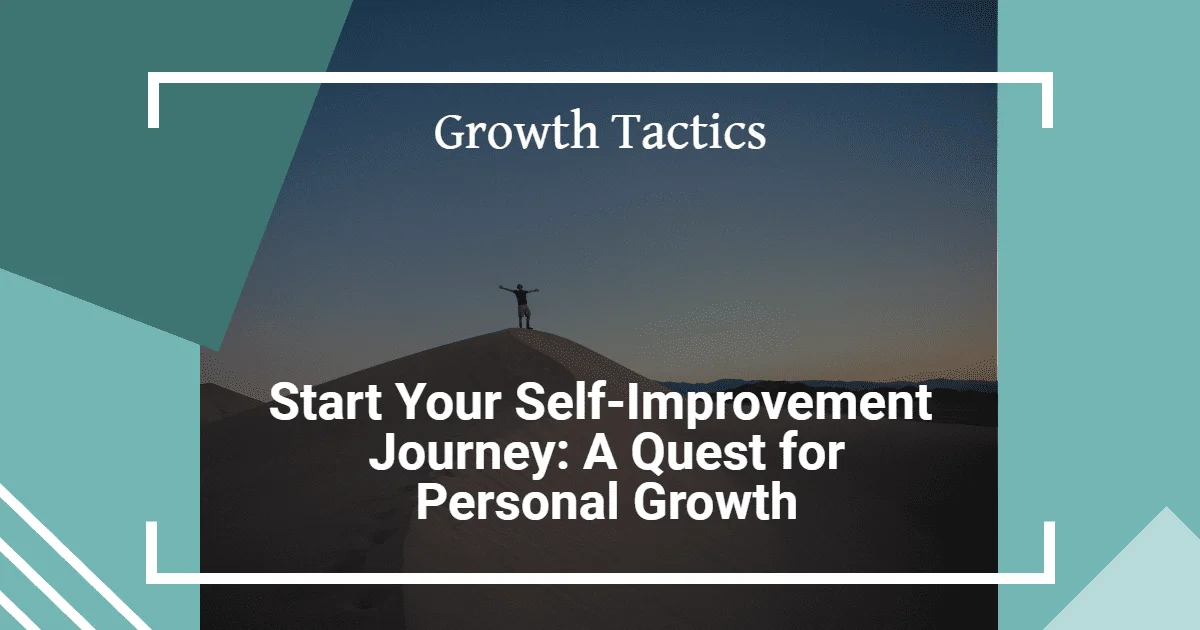
Start Your Self-Improvement Journey: A Quest for Personal Growth
Jump To Section
Are you ready to embark on an exciting journey to become the best version of yourself? Well, you’re in the right place! In this article, we’ll explore the ins and outs of self-improvement and how it can positively impact various aspects of your life. So grab a cup of your favorite beverage, settle in, and let’s dive deep into the world of self-improvement together!
Why Self-Improvement Matters and Why You Should Read This Article
You might be wondering, “Why should I invest my time and effort in my own self-improvement?” The answer is simple: self-improvement is the key to unlocking your full potential and leading a more fulfilling life. By continuously working on yourself, you can cultivate personal growth , improve your mental health, and achieve your goals in all areas of your life. Whether it’s your career, relationships, or overall well-being, self-improvement has the power to transform every aspect of your daily existence.
Now, let’s jump into the exciting and insightful content of this article. We’ve organized it into several sections that will guide you through your self-improvement journey, step-by-step.
Section 1: The Habits That Empower Self-Improvement
Welcome to the first section of our self-improvement journey! Here, we’ll explore the habits that have the power to empower your personal growth and propel you forward on your quest to become the best version of yourself. Let’s dive in and discover the key habits that can make a positive difference in your life!
Habit Stacking: Building Momentum for Success
One of the most effective ways to cultivate positive habits is through habit stacking. This technique involves linking a new habit you want to develop with an existing habit you already do consistently. By doing this, you create a chain of actions that build momentum and make it easier to adopt new behaviors.
For example, if you want to start a daily meditation practice, you can stack it onto your existing habit of brushing your teeth. Every morning, after you brush your teeth, you can spend a few minutes meditating. By associating the new habit with an established one, you enhance your ability to stick to it and make it a part of your daily routine.
Setting SMART Goals: Charting Your Path to Success
Goal setting is a crucial aspect of self-improvement. However, it’s not just about coming up with vague aspirations. To make your goals more actionable and achievable, it’s important to follow the SMART framework:
- Specific : Clearly define what you want to accomplish. Instead of saying, “I want to be healthier,” specify, “I want to exercise for 30 minutes five times a week and incorporate more fruits and vegetables into my diet.”
- Measurable : Ensure that your goals are measurable so that you can track your progress. For example, instead of saying, “I want to read more books,” specify, “I want to read 10 books by the end of the year.”
- Achievable : Set goals that are realistic and attainable. Consider your current circumstances and resources. It’s great to dream big, but make sure your goals are within reach.
- Relevant : Align your goals with your overall self-improvement journey and the areas of your life that you want to improve. Choose goals that are meaningful and relevant to your aspirations.
- Time-bound : Set a deadline for your goals to create a sense of urgency and motivate yourself. For instance, instead of saying, “I want to learn a new language,” specify, “I want to learn Spanish within the next six months.”
By setting SMART goals, you give yourself a clear roadmap to follow and increase the likelihood of achieving success in your self-improvement endeavors.
Surrounding Yourself with Supportive Influences
They say that you are the average of the five people you spend the most time with. That’s why it’s crucial to surround yourself with supportive influences who uplift and inspire you on your self-improvement journey. Seek out mentors, friends, or family members who have experience in the areas you want to improve.
These supportive individuals can provide valuable guidance, cheer you on during challenging times, and hold you accountable. Surrounding yourself with like-minded people who share your aspirations can significantly boost your motivation and progress.
Embracing Continuous Learning and Growth
Self-improvement is not a one-time event but a lifelong journey. To keep evolving, it’s important to cultivate a thirst for knowledge and explore new topics. Read books, attend workshops, listen to podcasts, and engage in conversations with others who have different perspectives.
By consistently seeking new experiences and updating your choices, you’ll broaden your horizons and gain valuable insights that can shape your personal growth. Remember, self-improvement is a continuous process that requires dedication and an openness to learning.
Stepping Out of Your Comfort Zone
If you want to grow, you need to step out of your comfort zone. It’s natural to feel apprehensive about trying new things or taking risks, but that’s where the magic happens. Pushing yourself beyond the boundaries of familiarity opens doors to new opportunities and experiences.
Whether it’s starting a new hobby, taking on a challenging project at work, or engaging in social activities that make you a bit nervous, embracing discomfort is essential for personal growth. It’s through these experiences that you’ll discover untapped potential and build resilience.
The Power of Daily Habits
Finally, never underestimate the power of small, daily habits . Consistency is key in self-improvement, and daily routines play a critical role in shaping your progress. Implementing simple habits like journaling, practicing mindfulness, or setting aside dedicated time for self-reflection can have a profound impact on your overall well-being and personal growth.
Take the time to identify the daily habits that align with your goals and incorporate them into your routine. Remember, it’s the cumulative effect of consistent actions that leads to significant transformation.
Keep in mind that you’re not alone on this self-improvement journey, and we’re here to support you every step of the way. In the next section, we’ll explore specific topics for personal growth and provide actionable insights to help you make progress. So, stay tuned and get ready to dive even deeper into the fascinating world of self-improvement!
Section 2: Exploring Topics for Personal Growth
Welcome to the second section of our self-improvement journey! In this section, we’ll explore specific topics that can accelerate your personal growth and bring positive changes to your life. Let’s dive in and discover some exciting areas to focus on!
Cultivating Emotional Intelligence: Nurturing Your EQ
Emotional intelligence, or EQ, is the ability to understand and manage your emotions effectively. It plays a crucial role in personal growth and healthy relationships. By nurturing your EQ, you can enhance self-awareness, improve communication , and develop empathy.
Start by recognizing and acknowledging your own emotions. Practice mindfulness techniques to become more present and in tune with your feelings. As you become more aware of your emotions, you can learn to regulate them and respond to situations in a more balanced way.
Additionally, developing empathy allows you to understand and connect with others on a deeper level. Listen actively, try to see things from their perspective, and validate their emotions. By cultivating emotional intelligence, you’ll have a strong foundation for personal growth and fulfilling relationships.
Building Resilience: Bouncing Back from Challenges
Life is full of ups and downs, and building resilience is essential to navigate through difficult times. Resilience is the ability to bounce back from setbacks and adapt to change. It empowers you to overcome challenges and continue moving forward.
One way to build resilience is by reframing negative experiences. Instead of viewing obstacles as roadblocks, see them as opportunities for growth and learning. Embrace a growth mindset and believe in your ability to overcome adversity.
Another important aspect of building resilience is taking care of your well-being. Engage in activities that promote mental and physical health, such as exercise, meditation, and self-care. Surround yourself with a support system of friends and family who uplift and encourage you during tough times.
Developing Effective Communication Skills: Expressing Yourself
Effective communication is a cornerstone of personal growth and strong relationships. It’s about expressing yourself clearly and listening actively to others. By honing your communication skills, you can build meaningful connections and resolve conflicts more effectively.
Start by being an attentive listener. Give others your full presence and avoid interrupting. Show empathy and seek to understand their perspective before responding. Use active listening techniques like summarizing and reflecting back their thoughts to ensure accurate understanding.
Improving your verbal and non-verbal communication is equally important. Practice articulating your thoughts clearly and concisely. Pay attention to your body language and facial expressions to convey sincerity and openness.
Cultivating a Growth Mindset: Embracing Change and Learning
A growth mindset is the belief that your abilities and intelligence can be developed through hard work, dedication, and learning from mistakes. Embracing a growth mindset is essential for personal growth as it allows you to view challenges as opportunities for learning and improvement.
To cultivate a growth mindset, start by reframing failures and setbacks. Instead of seeing them as indicators of your limitations, view them as valuable lessons that propel you forward. Embrace a mindset of continuous learning and seek opportunities to develop new skills .
Another helpful practice is to surround yourself with inspiring and positive influences. Engage with individuals who embody a growth mindset and learn from their experiences. Read books or listen to podcasts that motivate and encourage you to keep pushing your boundaries.
Prioritizing Self-Care: Nurturing Your Well-Being
Self-care is not selfish; it’s an essential aspect of personal growth and well-being. Prioritizing self-care allows you to recharge, reduce stress, and maintain a healthy work-life balance .
Incorporate self-care activities into your routine, such as practicing mindfulness, engaging in hobbies, or taking time for relaxation. Pay attention to your physical health by nourishing your body with nutritious food, getting enough sleep, and being physically active.
It’s also essential to set boundaries and learn to say no when necessary. Understand your limits and respect your own needs. Remember, taking care of yourself enables you to show up as the best version of yourself in all areas of life.
Exploring New Perspectives: Broadening Your Horizons
To foster personal growth, it’s important to explore new perspectives and broaden your horizons. Revisit your belief systems and challenge your assumptions. Engage in conversations with people from different backgrounds or with differing opinions.
Read books, watch documentaries, or immerse yourself in different cultures to expand your understanding of the world. Embrace diversity and value the richness that different perspectives bring to your personal growth journey.
By exploring new perspectives, you’ll develop a more nuanced understanding of the world and acquire valuable insights that can shape your personal values and choices.
You’re now armed with a range of topics to explore for personal growth. Pick one or a few that resonate with you, and begin your journey of self-improvement. Remember, personal growth is a continuous process, and every step you take brings you closer to becoming the best version of yourself!
Section 3: The Importance of Self-Awareness
Have you ever stopped to ponder how well you really know yourself? Self-awareness is the foundation of personal growth, and it’s all about understanding your thoughts, emotions, and actions. By developing self-awareness, you gain valuable insights that can guide your journey towards becoming the best version of yourself.
Recognizing Your Strengths and Areas for Improvement
Self-awareness allows you to recognize your strengths and embrace them fully. Understanding what you excel at empowers you to leverage those strengths to achieve success and fulfillment in various areas of your life. It’s like finding your superpowers and using them to your advantage!
On the flip side, self-awareness also helps you identify areas where you can improve. By acknowledging your weaknesses, you open the door to self-growth. Remember, nobody is perfect, and recognizing your shortcomings is the first step towards personal development .
Enhancing Interpersonal Relationships
When you have a deep understanding of yourself, it becomes easier to navigate and nurture healthy relationships with others. Self-awareness enables you to communicate effectively, empathize with others, and manage conflicts more skillfully.
By knowing your emotions and triggers , you can express yourself authentically without letting your emotions spiral out of control. You become more mindful of your actions, choosing words and behaviors that align with your values and intentions. This fosters trust and strengthens your connections with others.
Making Mindful Choices
Self-awareness empowers you to make conscious and intentional choices in life. When you understand your values, beliefs, and goals, you can align your actions with them. This clarity helps you prioritize and make decisions that will bring you closer to your desired outcomes.
Instead of acting on autopilot, self-awareness allows you to step back and evaluate your options. You can consider the consequences of your choices and how they align with your long-term aspirations. This mindful approach leads to more purposeful and fulfilling experiences.
Managing Stress and Emotions
Life can be stressful, and emotions can sometimes overwhelm us. That’s where self-awareness comes to the rescue! By developing a strong sense of self-awareness, you can better manage stress and regulate your emotions.
You become attuned to your emotional state, recognizing when you’re feeling overwhelmed, anxious, or angry. With this awareness, you can implement strategies to calm yourself down, such as deep breathing, meditation, or taking a break. By taking control of your emotions, you can prevent them from clouding your judgment or hindering your personal growth.
Cultivating Self-Awareness
Now that you understand the importance of self-awareness let’s explore a few practical ways to cultivate it in your life:
Journaling: Take time each day to reflect on your thoughts, feelings, and experiences. Writing them down can help you gain clarity and insights about yourself.
Mindfulness Practice: Engage in mindfulness activities like meditation or mindful breathing. These practices cultivate present-moment awareness and help you observe your thoughts and emotions without judgment.
Seek Feedback: Ask for feedback from trusted friends, family, or mentors. Their perspectives can provide you with valuable insights and help you see blind spots that you may have missed.
Self-Reflection: Carve out regular time for self-reflection. It could be a walk in nature or dedicated quiet time to contemplate and introspect. Use this space to explore your thoughts, emotions, and experiences.
Remember, self-awareness is a continuous journey. Be patient with yourself, embrace self-discovery, and celebrate the progress you make along the way.
You now have a clearer understanding of the importance of self-awareness and some practical steps to cultivate it in your life. Start diving deeper into self-awareness today, and watch as it becomes a catalyst for your personal growth and fulfillment!
Section 4: Setting New Personal Goals and Tracking Your Progress
Ready to kickstart your personal growth journey? Setting new goals is an excellent way to challenge yourself and reach new heights. So, let’s dive in and start this exciting chapter of your life!
Define Your Goals with Clarity and Purpose
To set effective goals, it’s essential to be clear about what you want to achieve. Take some time to think about your aspirations and what truly matters to you. What areas of your life do you want to improve? It could be your career, relationships, health, or personal development.
Once you have identified the areas you want to focus on, begin formulating your goals. Remember to make them specific, measurable, achievable, relevant, and time-bound (SMART). For example, instead of saying, “I want to exercise more,” a SMART goal would be, “I will exercise for 30 minutes, five days a week, for the next three months to improve my overall fitness and stamina.”
Break it Down: Creating Actionable Steps
Now that you have your goals in mind, it’s time to break them down into actionable steps. This makes them more manageable and achievable. Start by identifying the key actions or milestones you need to reach along the way. These mini-goals will keep you motivated and provide a sense of accomplishment as you progress.
For instance, if your goal is to learn a new language, your actionable steps could include:
- Research and select a language learning program or app.
- Dedicate 30 minutes each day to practicing speaking, listening, and writing.
- Find a language partner or join a conversation group for additional practice and immersion.
By breaking down your goals into smaller steps, you’ll have a clear roadmap to follow and be more likely to succeed.
Track Your Progress: Stay Accountable and Motivated
Tracking your progress is vital to keep you accountable and motivated along the way. It allows you to celebrate your successes, identify areas for improvement, and make necessary adjustments. So, how can you effectively track your progress?
One way is to keep a journal or use a goal-tracking app. Regularly record your actions, milestones, and any challenges you encounter. Reflect on what went well and what you can do differently in the future. Seeing your progress on paper or in an app can be incredibly motivating and provide the momentum you need to keep going.
Additionally, consider finding an accountability partner. Share your goals and progress with someone you trust, like a friend or family member. Regular check-ins with your accountability partner can keep you focused and provide support when you face obstacles.
Embrace Adaptability: Flexibility in Goal-Setting
Remember, life is full of surprises and changes. It’s essential to embrace adaptability when it comes to goal-setting. As you progress on your personal growth journey, you may discover new interests, values, or priorities. Be open to adjusting your goals if they no longer resonate with you or if new opportunities arise.
Adapting your goals doesn’t mean you’ve failed—it means you’re growing and evolving. Embracing flexibility allows you to stay aligned with your authentic self and continue moving forward.
Celebrate Milestones and Learn from Challenges
Throughout your journey, don’t forget to celebrate milestones! Whether it’s achieving a mini-goal or making progress towards your larger goal, take the time to acknowledge and reward yourself. Celebrating reinforces positive behavior and motivates you to keep going.
Also, remember that challenges are inevitable, and that’s okay. View them as valuable learning opportunities rather than roadblocks. Reflect on the lessons you’ve learned, analyze your strategies, and make adjustments as needed. Overcoming challenges can make you more resilient and lead to even greater personal growth.
Section 5: The Key Takeaways
Before we wrap up this exciting exploration of self-improvement, let’s recap the most important things to remember:
- Self-improvement is a lifelong journey that requires dedication.
- Surround yourself with supportive individuals who can mentor and empower you.
- Embrace new experiences and take risks to expand your horizons.
- Stay motivated by reading books, practicing mindfulness, and using affirmations.
- Self-awareness is crucial for personal growth and well-being.
- Continuously update your choices to align them with your goals.
- Set measurable objectives and track your progress.
- The self-improvement journey is unique to you, so customize it to suit your needs.
And remember, every single day is an opportunity to make progress toward becoming the best version of yourself.
We hope this article has inspired and motivated you to start or continue your self-improvement journey. Remember, it’s time to take action and embark on this fulfilling quest to make yourself better. So go ahead, grab that metaphorical sword of self-improvement, and let’s conquer the challenges that lie ahead. You’ve got this!

Leave a Comment Cancel reply
Save my name, email, and website in this browser for the next time I comment.

7 Steps to Create a Roadmap for Your Life
How to effectively navigate any major life change..
Posted March 30, 2022 | Reviewed by Ekua Hagan
- Understanding Attention
- Take our ADHD Test
- Find a therapist to help with ADHD
- The archetype for life is the journey. The roadmap helps chart the trip through change and transition.
- A roadmap helps a person visualize their life—where they have been and where they want to go.
- Learning how to navigate change and transition will help one gain control of life's circumstances.
Since the archetype for life is the journey, a roadmap will help you plan your life moving forward much as you would prepare for a trip. Charting your trip tells you where you’ve been so far, where you intend to go, what obstacles you may face, and the places you keep returning to over and over again.
Our journeys are both inner and outer. The events of the outer journey, the cumulative transitions of a lifetime, will be somewhat similar for all of us who share the human experience. Our personal inner journey is a much more private affair. The roadmap is a reliable context within which to place your very own experiences and transitions.
The nature of life is change and all of us will make many changes and go through numerous transitions as we live life. Nothing stays the same and neither do we. So much colors who we are and who we are to become. Knowingly or not, we move into new and different phases that connect us socially and emotionally to others who are going through the same phase.
But beyond the normal changes we will encounter, there will be those changes and transitions we did not expect, did not prepare for, did not want to happen. How do we cope with encounters and transitions that are difficult, challenging, and often overwhelming?
One way is to learn to be prepared for whatever comes your way. How do you do that? Well, experience will be a great teacher. Once something has happened to you, it will no longer be an unknown. You will have learned something from it. But, it’s a lot easier if you have the tools to handle change and transition so you’re not surprised, so you’ll know what to do.
Here are seven essential steps to help you navigate through any change/transition you may encounter during the course of your life.
Have a realistic expectation. Before you embark on your next big change/transition, map your trip as best you can, knowing that things don’t always work out as you plan or hope they will. Know that things can go smoothly, or there may be delays, detours, and roadblocks. Be realistic about the timetable. Again, things may happen quickly or there may be delays, sudden stops, and sometimes re-routing before you reach your destination.
Review what you’ve learned about change . Each of your trips to a new place in your life has hopefully taught you something. It’s these cumulative events and your responses to them that help you navigate whatever happens to you moving forward. What you’ve learned and how to respond will help you make the best possible choices and decisions.
The exception to that, of course, is an event that places you in imminent danger, such as a life-threatening illness, unexpected personal crisis, or natural disaster, where you have no choice but to take immediate action. In that case, once the necessary actions have been taken and the dust finally settles, you can then go back and review, in order to figure out what the change/transition meant and what to do next.
Create a Life Timetable. This timetable should reflect major life transitions. What events did you initiate on your own? In other words, what inner events caused you to make a change? What happenings were foisted upon you by life circumstances? In other words, what events happened to you from the outside; those events you had little control over? What were your “triumphs?" What were your losses? Pay attention to the main emotions for each of these changes/transitions. How did you react to whatever happened to you?
Do you view each major event in your life in a positive light—you got something out of it? Or, do you fear change because you believe the things that have happened to you have impacted you negatively?
Define your Life Themes. This goes well beyond charting the chronological order of events, the basic facts of your life. Themes are generally easily recognizable—they are recurring and repetitive. Positively, life themes help you define who you are and alert you to your purpose and passion. Developing insight into how you process life and what is most important to you can help you gain more personal control so that you can skillfully steer the course in the direction you want to go.

Get in touch with your Life Lessons. We all have them. Each of us has our own unique things to experience and lessons to be learned. Not one size fits all. Our lessons come from every single facet of our lives—our background, family, culture, religion, social group, education . Those influencers help us define who we are from birth. Some of us are fortunate enough to have been given life skills early on so that finding our way through life is made easier, while others struggle to find their way. But there is always the opportunity at any point in life to learn and receive guidance from those around you.
Where you choose to take yourself in life and who you choose to associate with will inevitably influence you greatly. Paying close attention to how you respond to life will help you become acutely aware of the life lessons that await you.
Go beyond limiting beliefs. Do you really know what you believe? We often assume we know what we believe to be true—but that’s often not the case. What we think is true is frequently colored by others’ opinions and influenced by those we admire and trust. As much as they may care about us, they may not always know what’s in our best interest. And too, often the actions we take and the choices and decisions we make are based on ideas and beliefs that no longer serve us, if they ever did. So going beyond limiting beliefs may pave the way for changing how you make transitions moving forward. Push through to beliefs that bolster your confidence and support your endeavors.
Accept the unknown. There’s so much we don’t know as we go through life. With as much planning as we’ll do to ensure our desired outcome, there will always be those times when all the planning in the world will not get us the result we want. Who knows why? But it happens. Consider the unknown your friend in life. When you accept what you can’t control, what you can’t do anything about, it becomes far easier to accept what does come and make it work for you.
As Rilke said so well, “Be patient toward all that is unsolved in your heart and try to love the questions themselves, like locked rooms and like books that are now written in a very foreign tongue. Do not seek the answers, which cannot be given you because you would not be able to live them. And the point is, to live everything. Live the questions now. Perhaps you will then gradually, without noticing it, live along some distant day into the answer.”

Abigail Brenner, M.D . , is a psychiatrist in private practice. She is the author of Transitions: How Women Embrace Change and Celebrate Life and other books.
- Find a Therapist
- Find a Treatment Center
- Find a Psychiatrist
- Find a Support Group
- Find Online Therapy
- United States
- Brooklyn, NY
- Chicago, IL
- Houston, TX
- Los Angeles, CA
- New York, NY
- Portland, OR
- San Diego, CA
- San Francisco, CA
- Seattle, WA
- Washington, DC
- Asperger's
- Bipolar Disorder
- Chronic Pain
- Eating Disorders
- Passive Aggression
- Personality
- Goal Setting
- Positive Psychology
- Stopping Smoking
- Low Sexual Desire
- Relationships
- Child Development
- Self Tests NEW
- Therapy Center
- Diagnosis Dictionary
- Types of Therapy

It’s increasingly common for someone to be diagnosed with a condition such as ADHD or autism as an adult. A diagnosis often brings relief, but it can also come with as many questions as answers.
- Emotional Intelligence
- Gaslighting
- Affective Forecasting
- Neuroscience
Thank you for visiting nature.com. You are using a browser version with limited support for CSS. To obtain the best experience, we recommend you use a more up to date browser (or turn off compatibility mode in Internet Explorer). In the meantime, to ensure continued support, we are displaying the site without styles and JavaScript.
- View all journals
- Explore content
- About the journal
- Publish with us
- Sign up for alerts
- Published: 12 September 2024
A personal journey of adapting laboratory techniques for disability inclusion in research
- Marwa M. I. Rizk ORCID: orcid.org/0000-0001-5164-5165 1 , 2
Nature Reviews Methods Primers volume 4 , Article number: 62 ( 2024 ) Cite this article
4 Altmetric
Metrics details
Thriving in academia with a disability sparks creativity and innovation. My experience in chemistry and pharmacy laboratories highlights the need for universities to establish inclusive environments with clear, effective accommodations. I advocate for inclusivity, urging academia to support all researchers to excel and making science accessible to everyone.
This is a preview of subscription content, access via your institution
Access options
Access Nature and 54 other Nature Portfolio journals
Get Nature+, our best-value online-access subscription
24,99 € / 30 days
cancel any time
Subscribe to this journal
Receive 1 digital issues and online access to articles
111,21 € per year
only 111,21 € per issue
Buy this article
- Purchase on SpringerLink
- Instant access to full article PDF
Prices may be subject to local taxes which are calculated during checkout
Egambaram, O. et al. The future of laboratory chemistry learning and teaching must be accessible. J. Chem. Educ. 99 , 3814–3821 (2022).
Article Google Scholar
Download references
Author information
Authors and affiliations.
School of Chemistry, University of Birmingham, Birmingham, UK
Marwa M. I. Rizk
Department of Pharmaceutics, Faculty of Pharmacy, Alexandria University, Alexandria, Egypt
You can also search for this author in PubMed Google Scholar
Corresponding author
Correspondence to Marwa M. I. Rizk .
Ethics declarations
Competing interests.
The author declares no competing interests.
Additional information
Related links.
Disabilities in the chemical sciences: https://www.rsc.org/policy-evidence-campaigns/inclusion-diversity/surveys-reports-campaigns/disability-in-the-chemical-sciences
Rights and permissions
Reprints and permissions
About this article
Cite this article.
Rizk, M.M.I. A personal journey of adapting laboratory techniques for disability inclusion in research. Nat Rev Methods Primers 4 , 62 (2024). https://doi.org/10.1038/s43586-024-00349-9
Download citation
Published : 12 September 2024
DOI : https://doi.org/10.1038/s43586-024-00349-9
Share this article
Anyone you share the following link with will be able to read this content:
Sorry, a shareable link is not currently available for this article.
Provided by the Springer Nature SharedIt content-sharing initiative
Quick links
- Explore articles by subject
- Guide to authors
- Editorial policies
Sign up for the Nature Briefing newsletter — what matters in science, free to your inbox daily.

IMAGES
VIDEO
COMMENTS
2-Step self-discovery process. There are 2 general steps to the self-discovery process: Take action: Try something new and explore interests and ideas. Self-reflection: Reflect on your actions, behavior, feelings, and emotions to learn about your needs, preferences, and styles. Here's an extensive list of questions to ask yourself.
Here are some of our favorite books and apps to support greater self-insight and discovery. 1. The Power of Now: A Guide to Spiritual Enlightenment - Eckhart Tolle. A critical first step toward greater self-insight involves ceasing to confuse your true self with the endless stream of thoughts flowing through your mind.
LaToya Rachelle, author and creator of LaToyaRachelle.com, is dedicated to empowering women on their journey to self-discovery and personal growth. Through her writings, she shares insights on self-care, happiness, manifestation, success habits, and more, and provides invaluable tools to help you unleash your fullest potential. Join LaToya as ...
Consistency compounds. Commit to doing one activity, every day, even for just five minutes, that will bring you closer to your goals and the person you want to be. Having goals and something to ...
The first aspect of personal growth is focused on re-framing our struggles. What I mean by this is, the next time we face a problem, the best way to overcome it is to see it differently. For ...
Recognizing these patterns is a significant step in our self-discovery journey. It allows us to understand why we behave in certain ways and provides insights into areas of our life that need healing and transformation. 2. Practicing mindfulness and self-awareness. Exploring mindfulness techniques for staying present.
The Lifelong Journey. Personal development is not a destination but a continuous path through self-awareness of what needs to change. It requires commitment, effort, and patience, along with a ...
Experiment. Look at your skills. Find your value. Ask questions. Learn. Journal. Reach out. Takeaway. The process of self-discovery can be different for everyone and may include trying new things ...
Introduction: Embarking on Your Self-Discovery Journey. The quest for self-discovery is a deeply personal journey, unique to every individual. It's about peeling back the layers of your life to reveal your authentic self, understanding the essence of your true self, and embracing the path of personal growth.This journey is not just about finding yourself but creating yourself, about making ...
1. Be honest with yourself by identifying your 10 most important values and measuring how much you currently honor them on a scale of 1 to 10. Focus on improving and having an action plan that ...
Stage 1: Discovering Your Conscious Self (Personality) Stage 2: Exploring Your Personal Unconscious (Shadow) Stage 3: Returning Home (The Self) First, we'll examine each of these stages in more detail. Then, we'll explore the self-discovery activities commonly used at each stage.
There are plenty of benefits to personal development. Personal growth isn't easy but the benefits will make the journey worthwhile. My friend at Google has worked with a BetterUp coach for the last year. In her own personal development journey, she's shared why working with a coach has transformed her personal growth journey.
The journey of personal development is a marathon, not a sprint. You're never going to reach a point where you're "done." ... You need to be willing to make small steps every single day and stick to that path. Everything is achieved one step at a time, and consistency is the only way to make sure you keep making progress.
29. "Aim for the sky, but move slowly, enjoying every step along the way. It is all those little steps that make the journey complete." - Chanda Kochar. 30. "Enjoy the journey, enjoy every moment, and quit worrying about winning and losing." - Matt Biondi. 31. "Stop worrying about the potholes in the road and enjoy the journey."
Motivation and Focus: Goals keep individuals motivated and on track. Accountability: Setting goals helps in measuring progress and staying accountable. Sense of Achievement: Achieving goals boosts confidence and self-esteem. "Setting goals is the first step in turning the invisible into the visible.". — Tony Robbins.
Emotional intelligence, or EQ, is the ability to understand and manage your emotions effectively. It plays a crucial role in personal growth and healthy relationships. By nurturing your EQ, you can enhance self-awareness, improve communication, and develop empathy. Start by recognizing and acknowledging your own emotions.
In the journey of personal growth, every day counts. The habits we adopt, the decisions we make, and the actions we take shape who we become. By incorporating positive daily habits, we can pave the way towards a more enriching and fulfilled life. Here, we've curated 52 daily habits that can catalyze your journey towards personal growth.
Have a realistic expectation. Before you embark on your next big change/transition, map your trip as best you can, knowing that things don't always work out as you plan or hope they will. Know ...
About Press Copyright Contact us Creators Advertise Developers Terms Privacy Policy & Safety How YouTube works Test new features NFL Sunday Ticket Press Copyright ...
10 Steps for Making a Personal Transformation. Making personal transformation can be difficult, but here are some steps that might help you out: 1. Figure out what personal journey you want to take on. Figure out what personal journey you want to take on. Maybe it's a personal transformation that will improve your life in one way, or help make ...
11M views, 235K likes, 6K loves, 1.4K comments, 13K shares, Facebook Watch Videos from Singapore Airlines: From majestic clifftops to magical forests, let your imagination take flight with every journey.
They remind you to live in the moment, handle challenges calmly, and find joy in small victories. Through their companionship, you develop resilience, empathy, and emotional balance, fueling personal growth daily. Your Dog Knows About Success Shutterstock. Your dog knows the secret to success: consistency, patience, and joy in the journey.
Thriving in academia with a disability sparks creativity and innovation. My experience in chemistry and pharmacy laboratories highlights the need for universities to establish inclusive ...